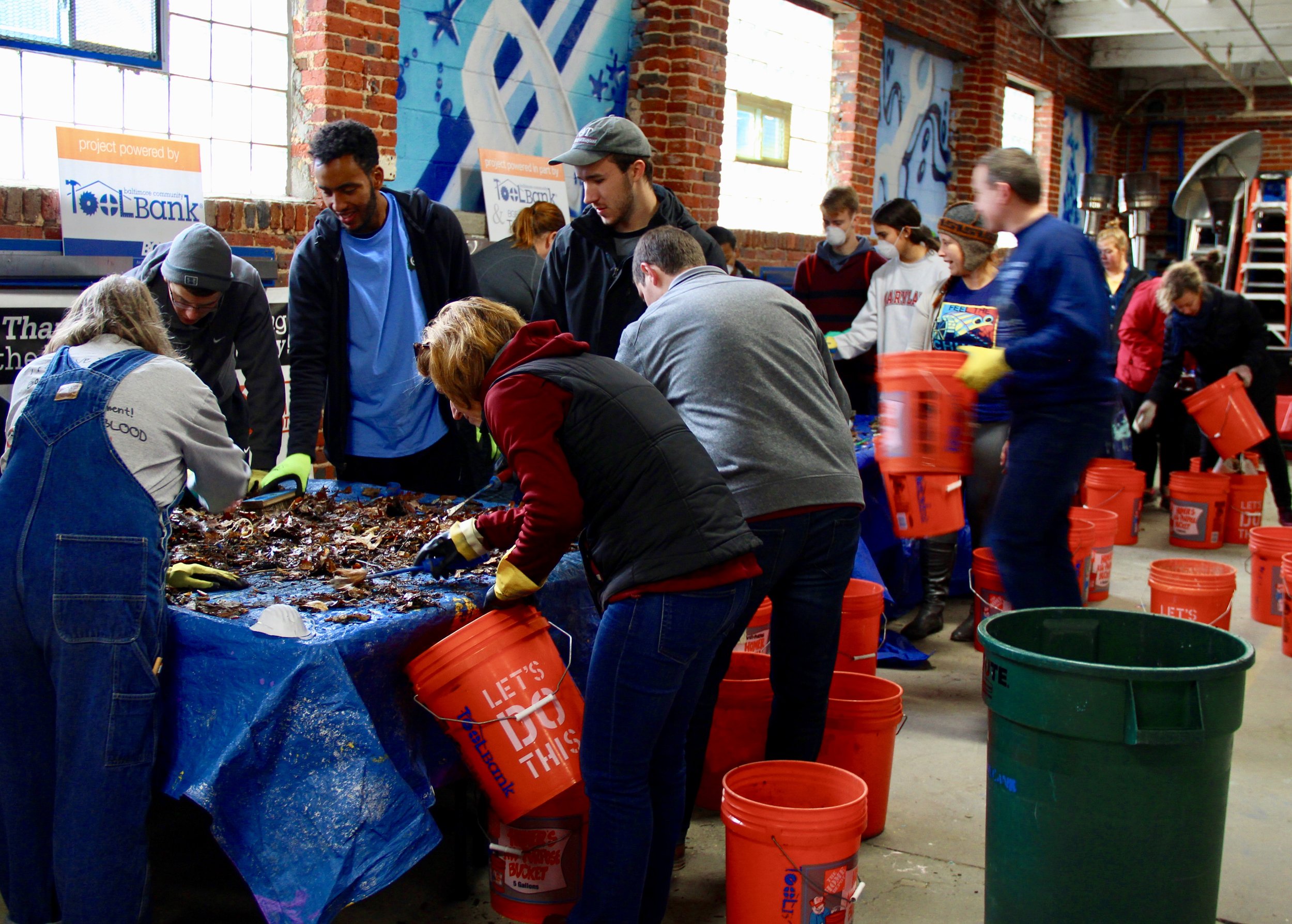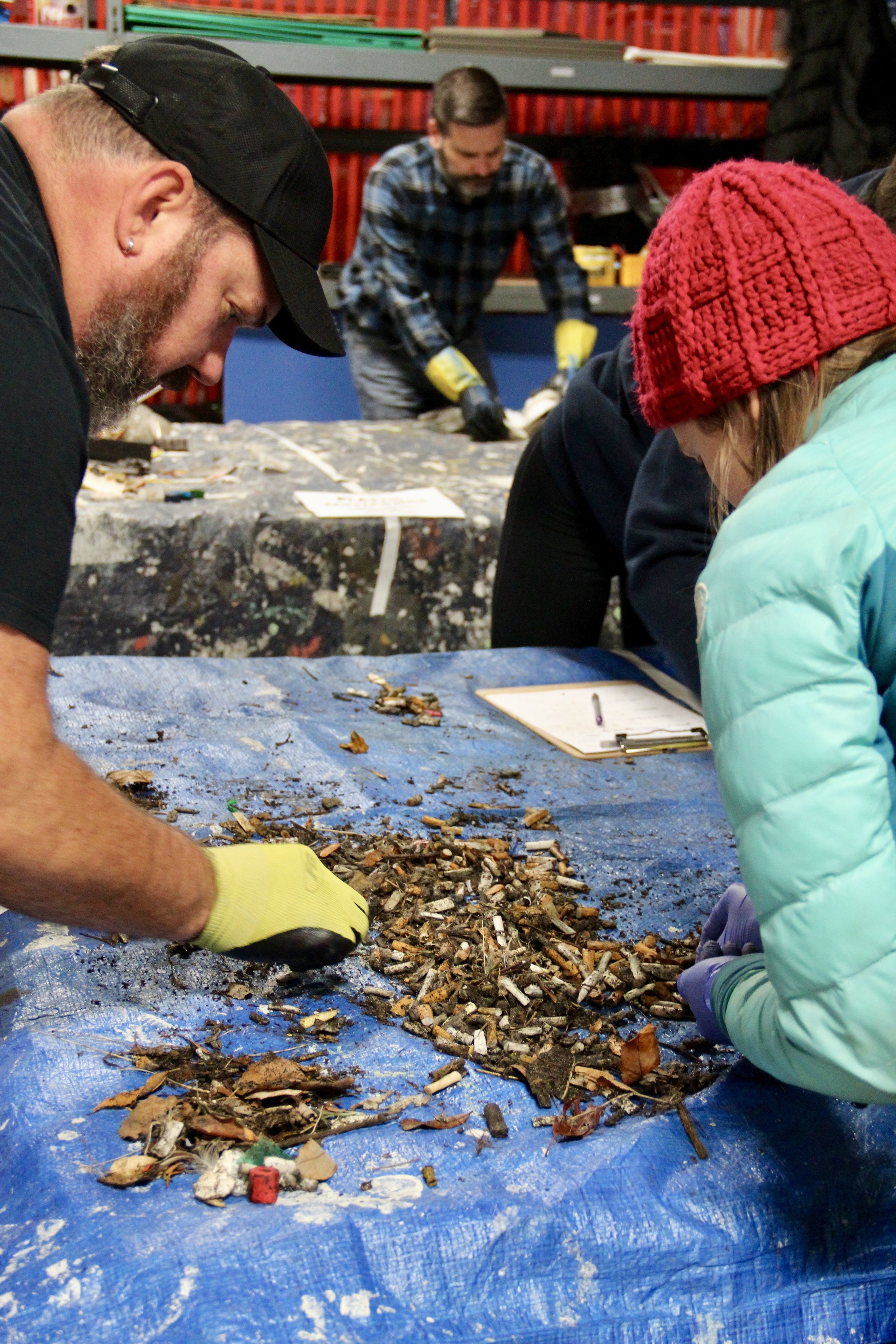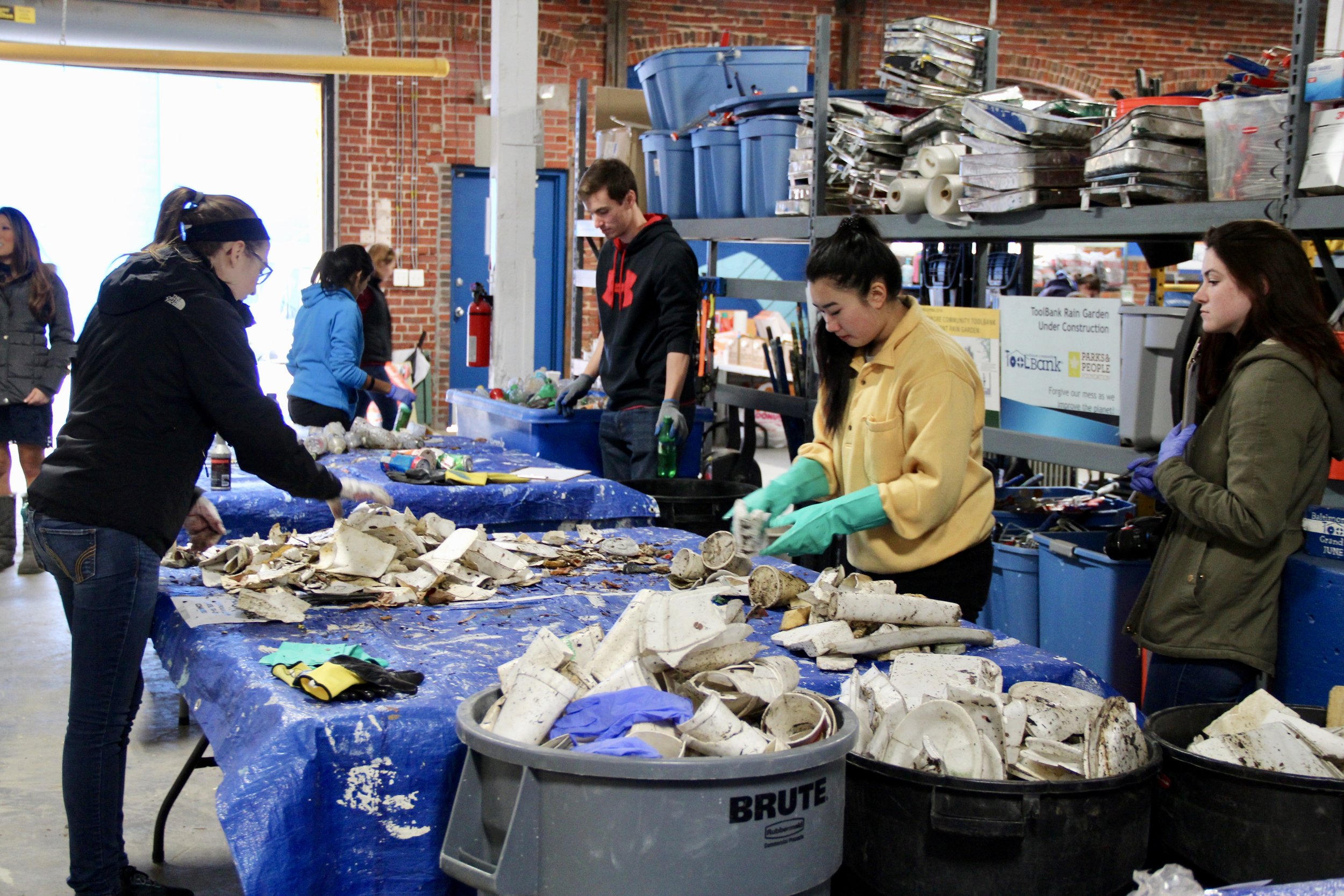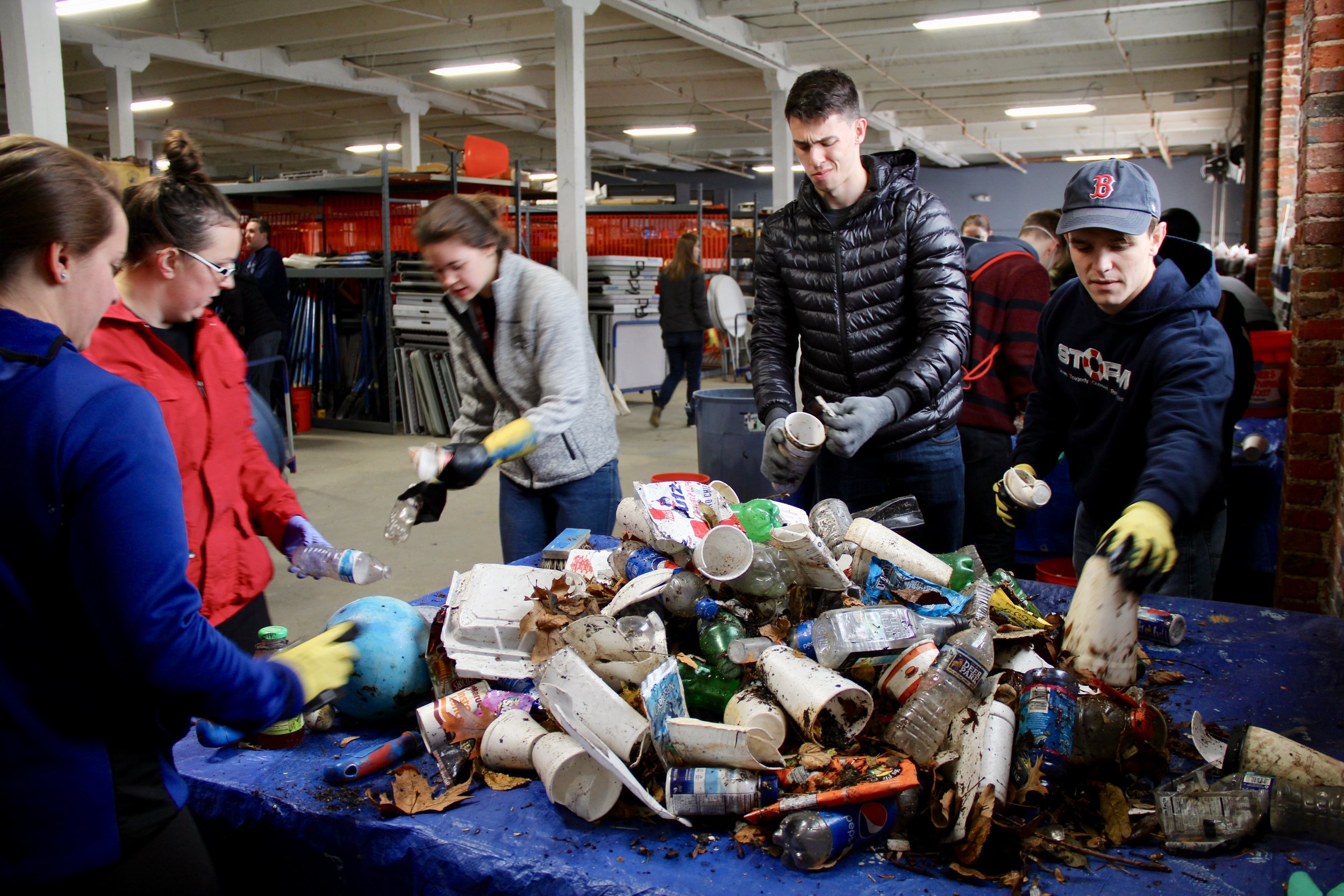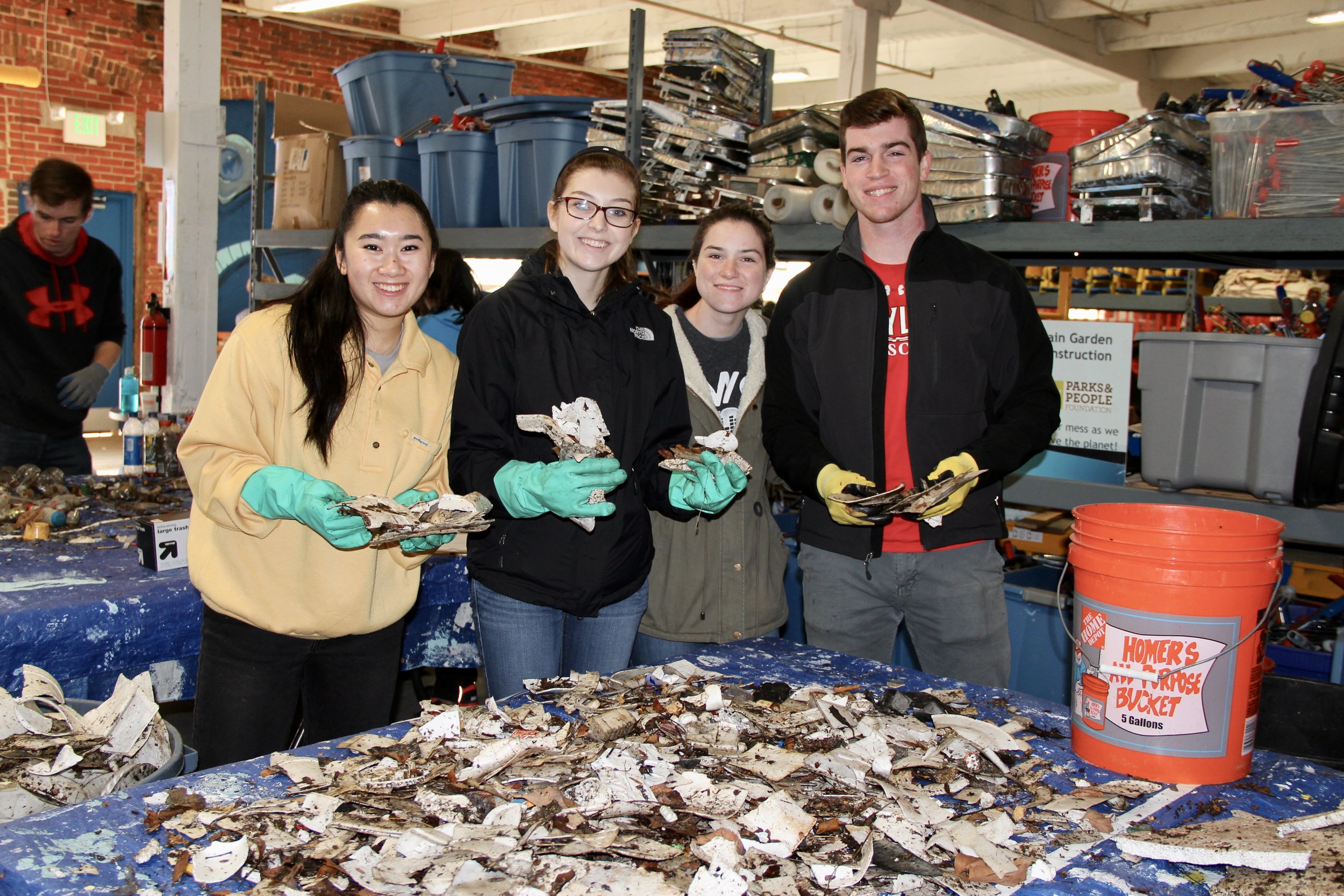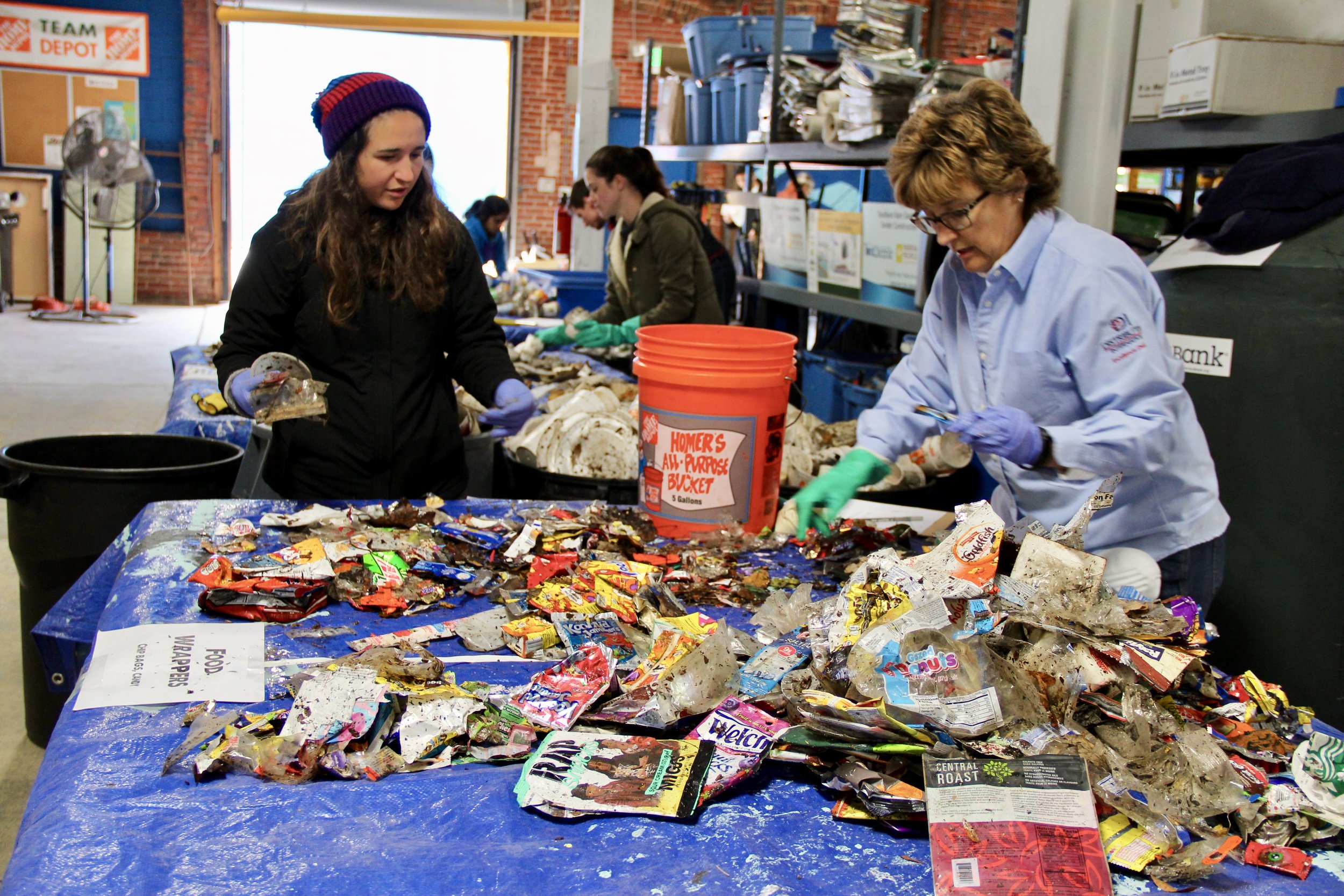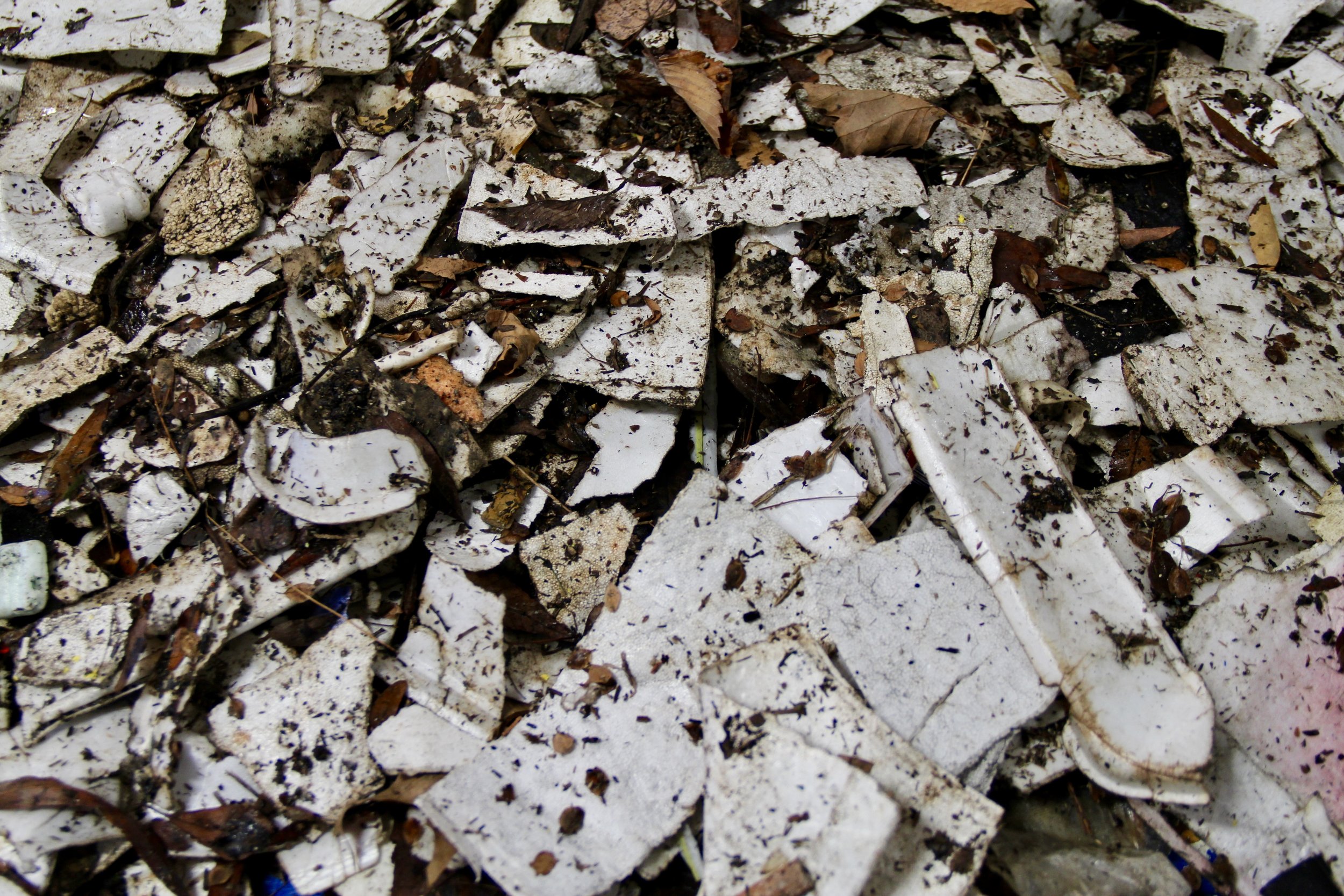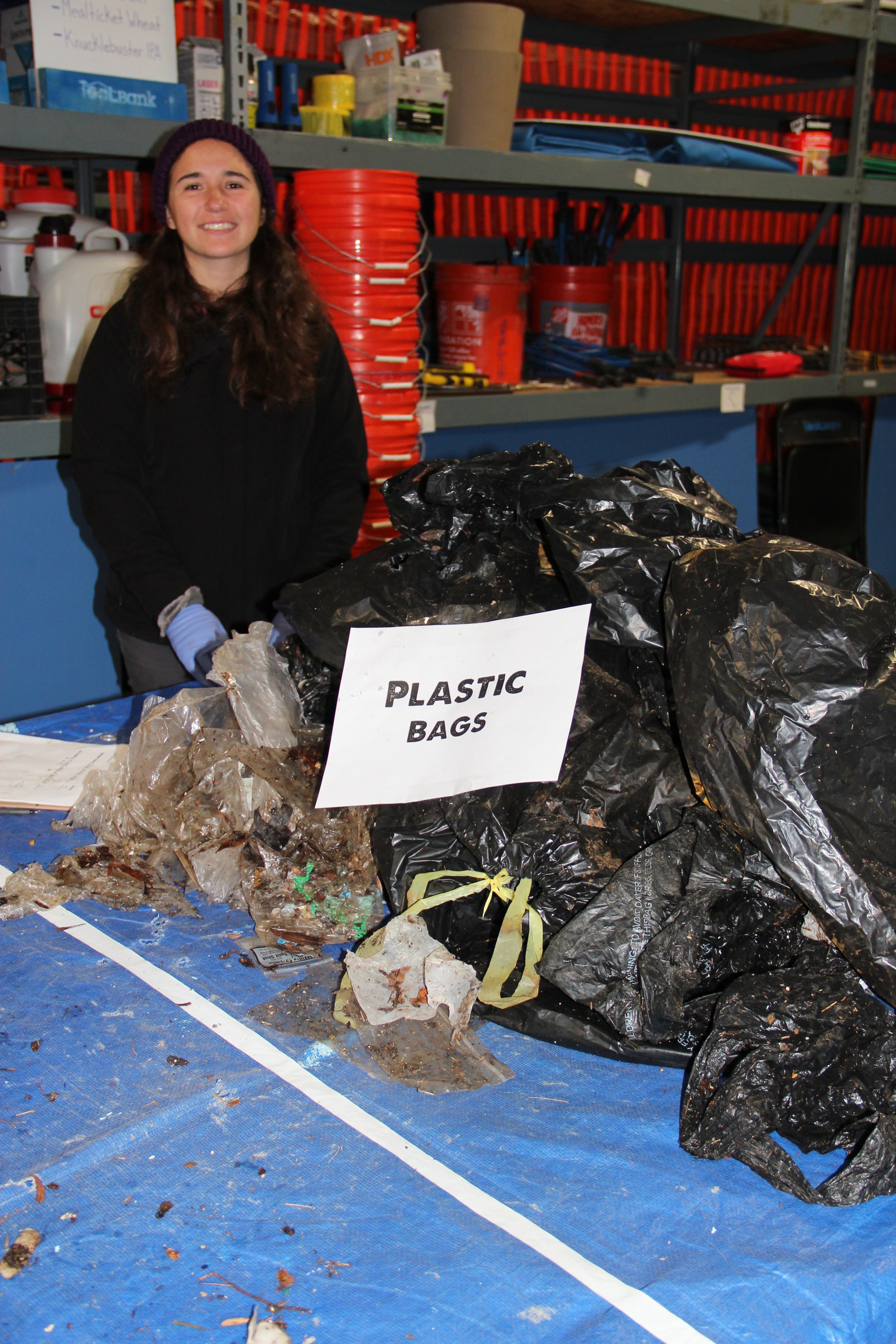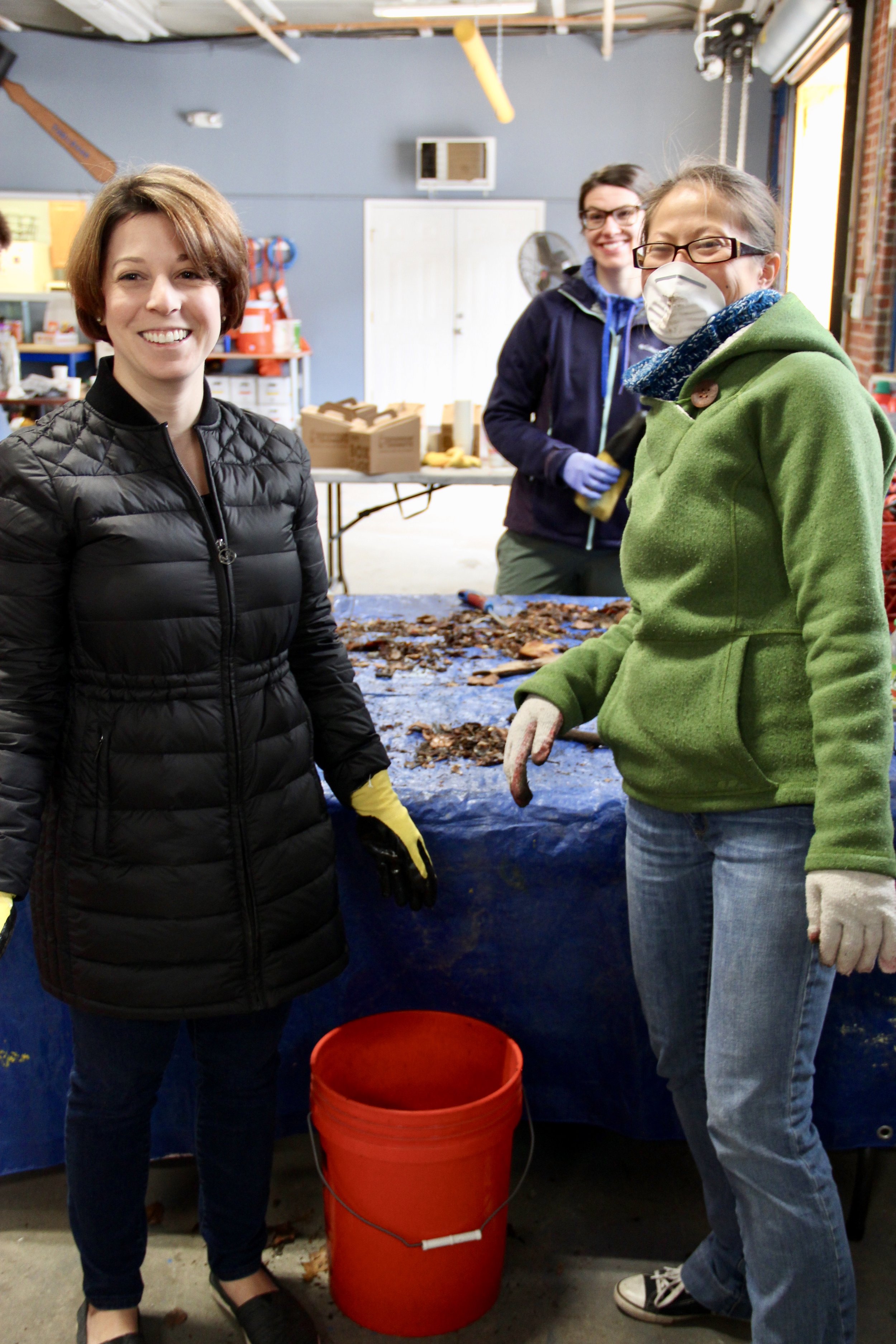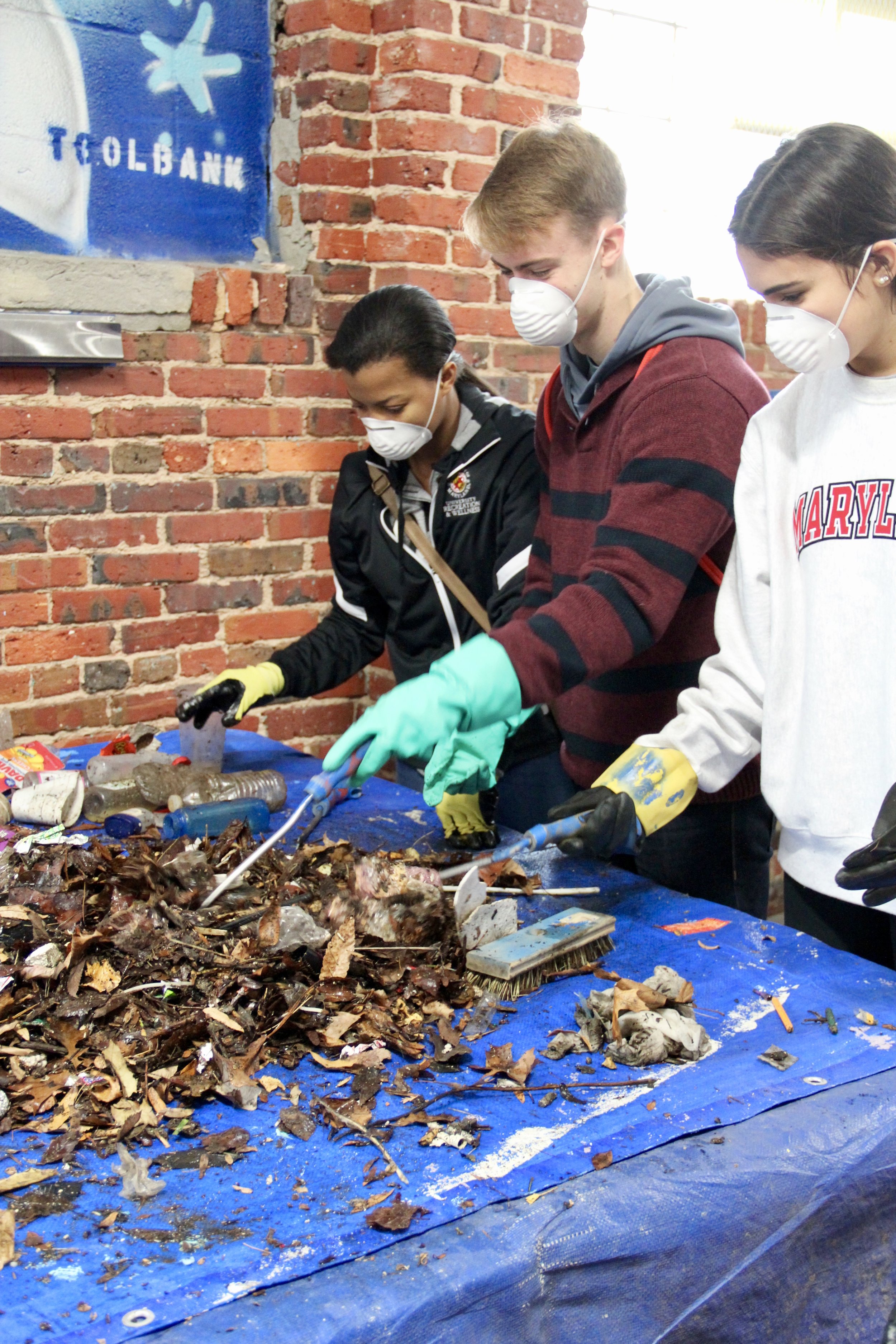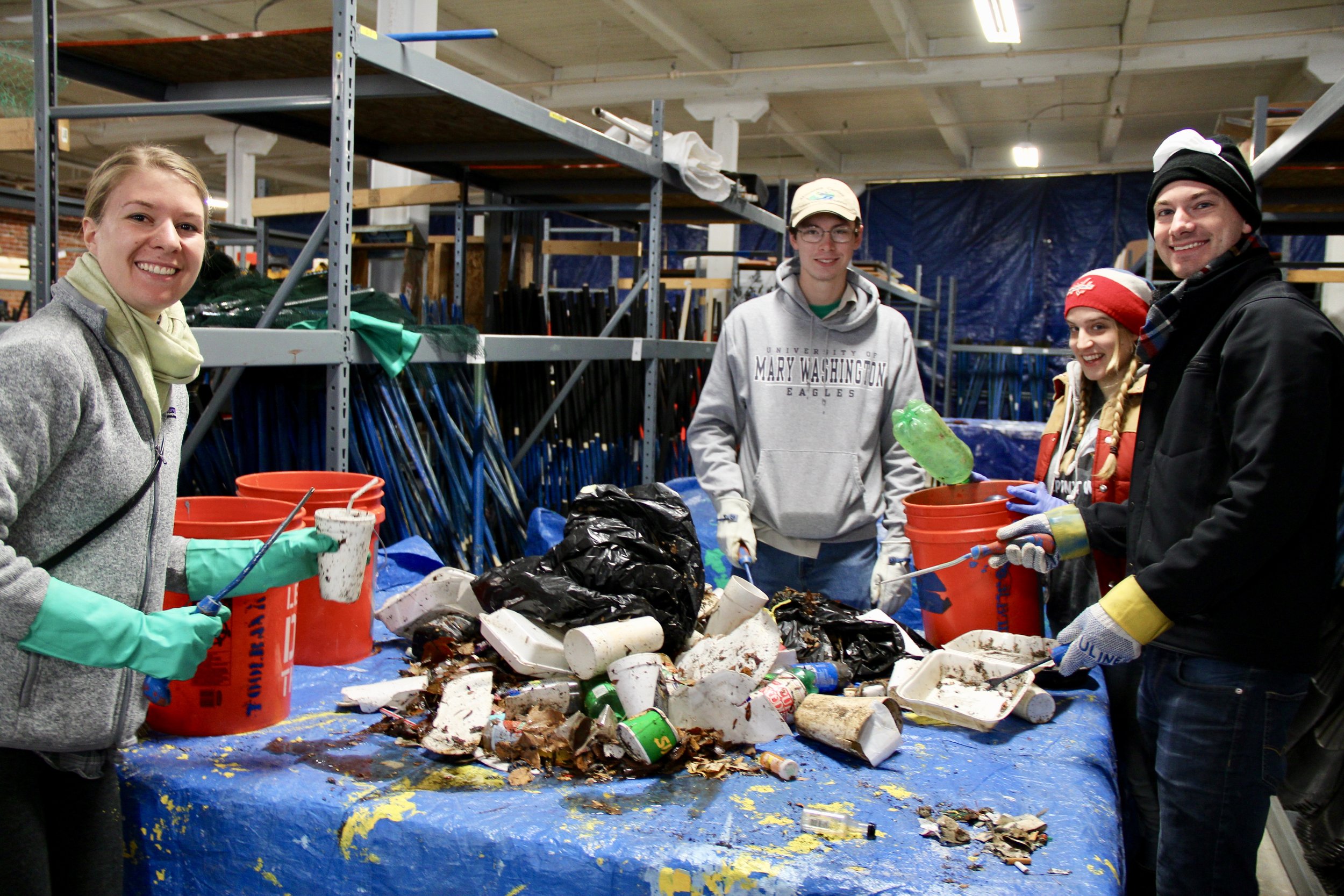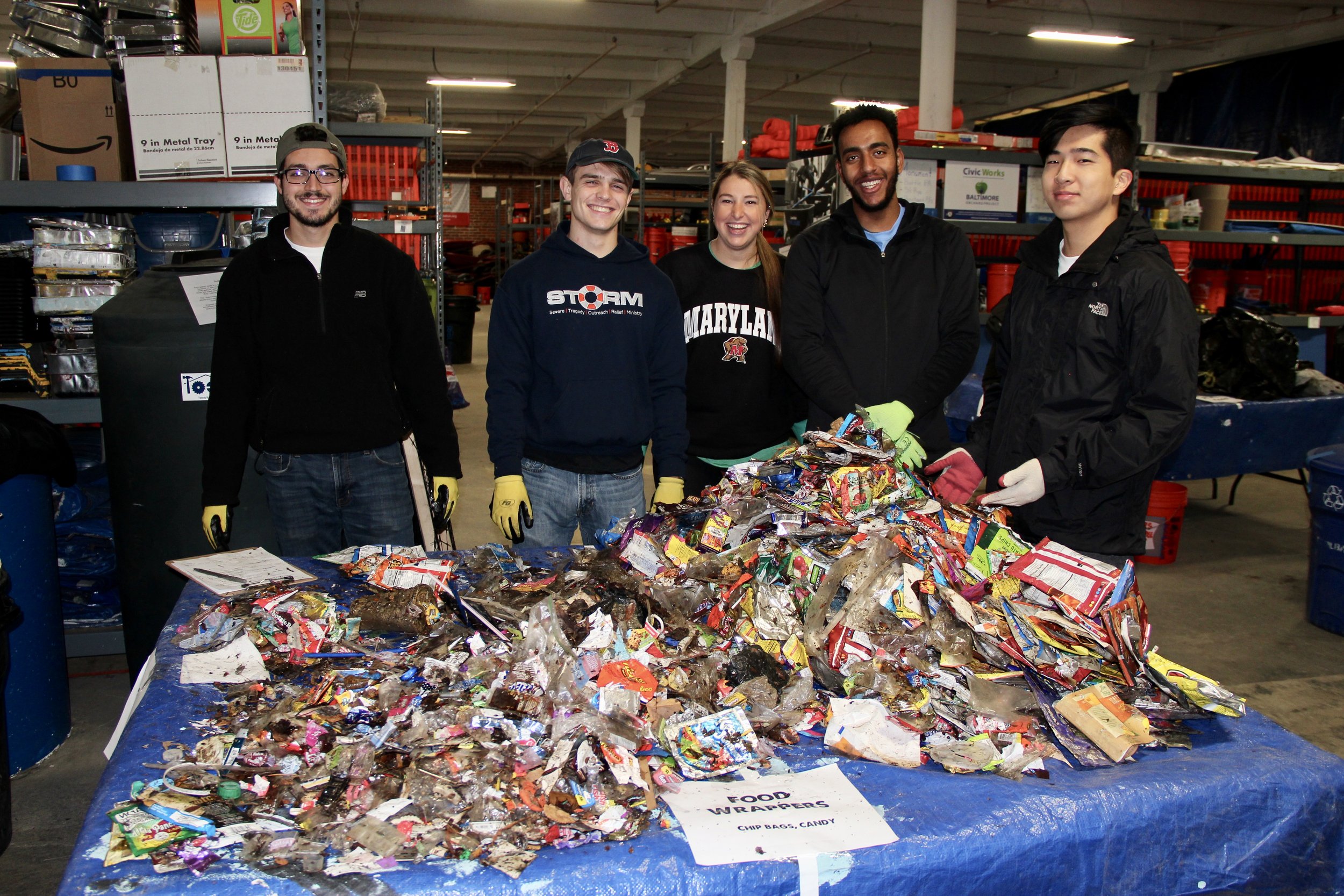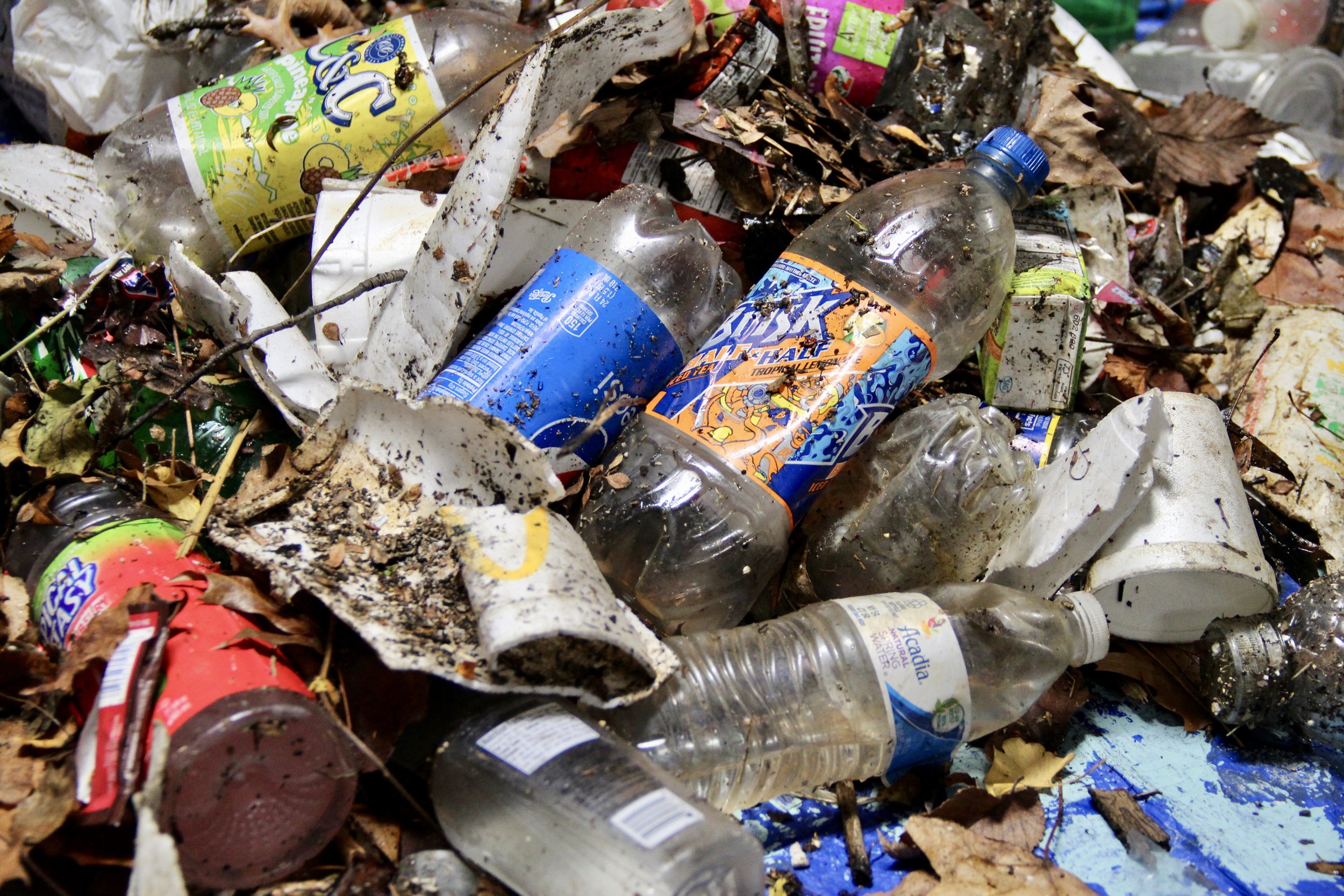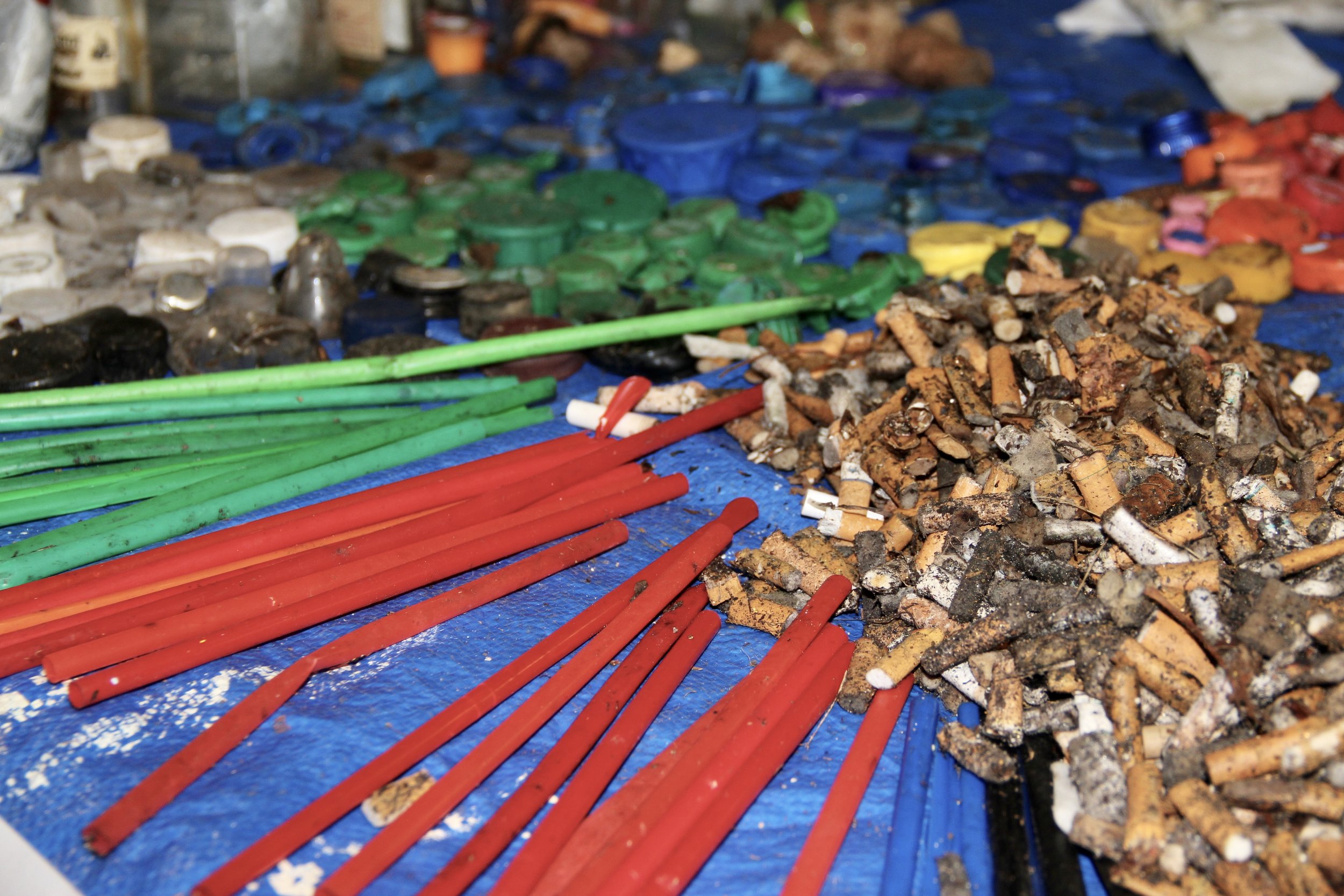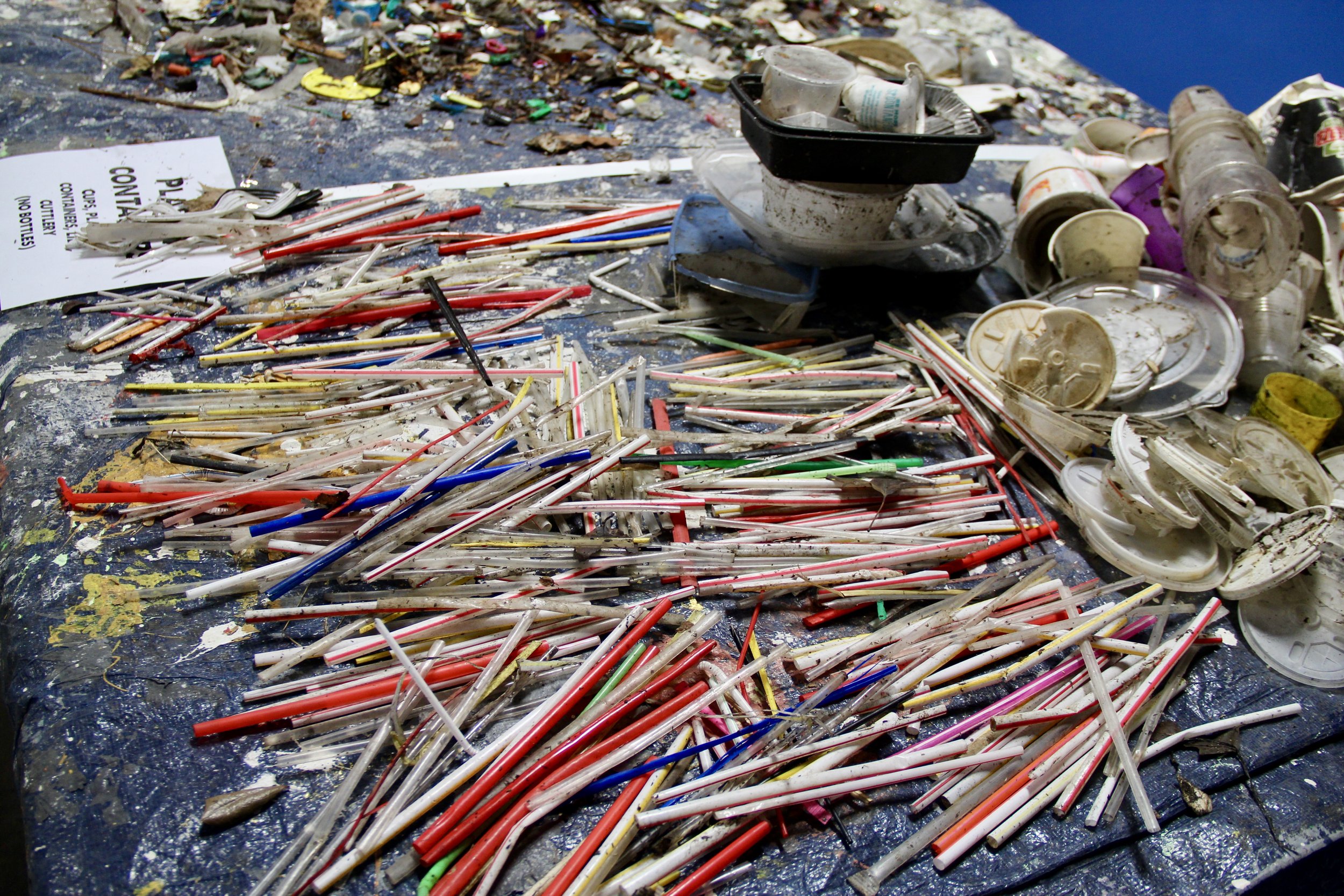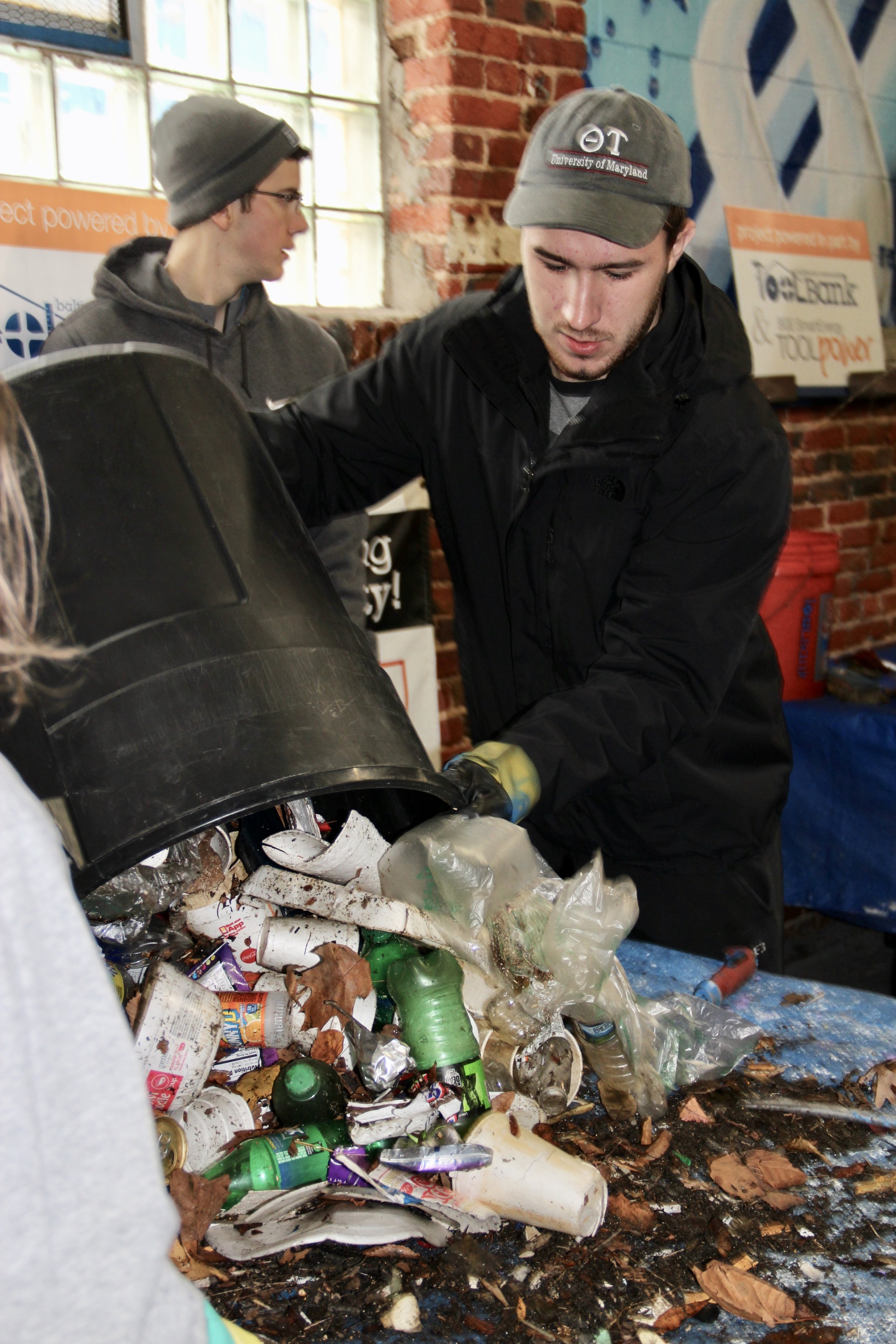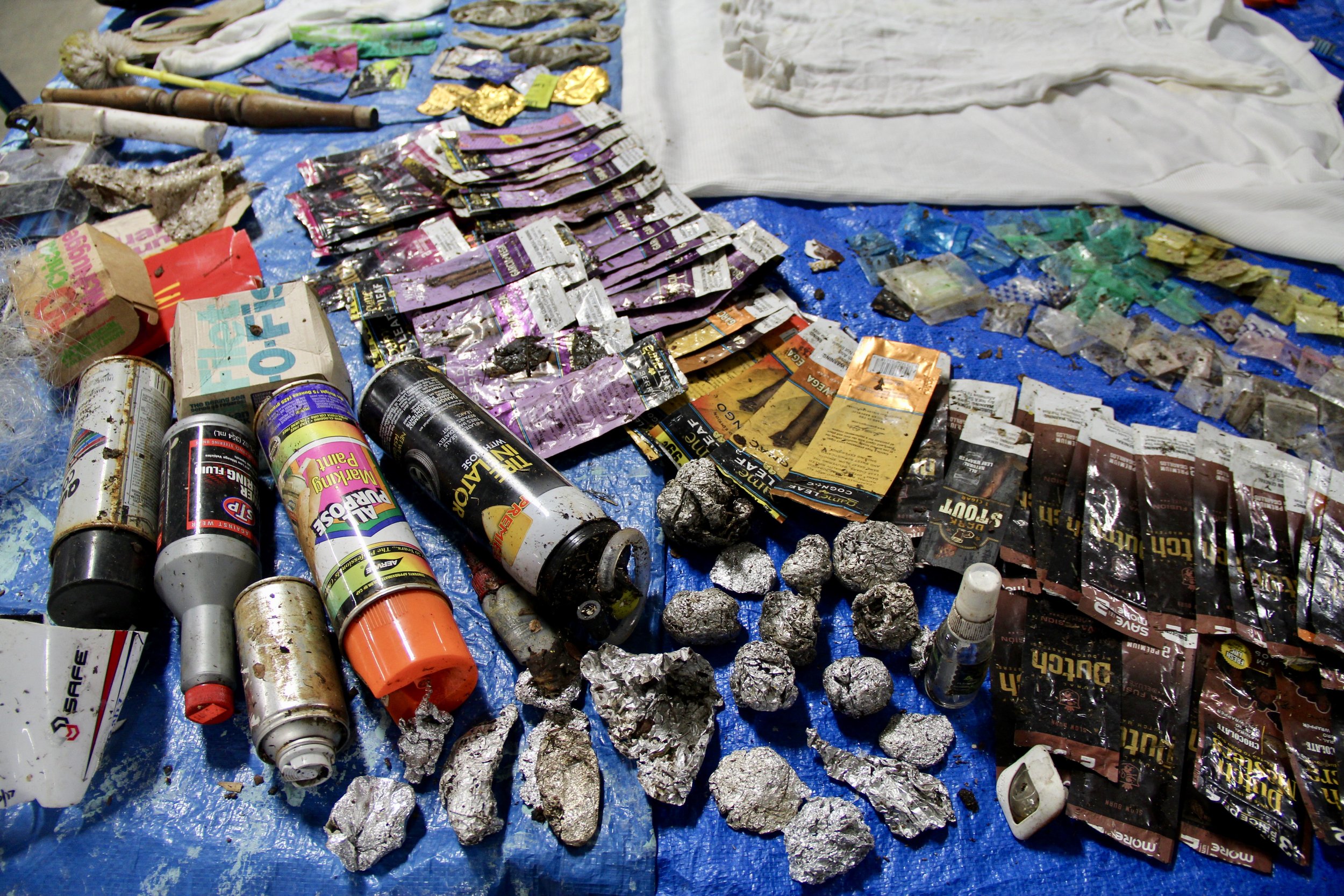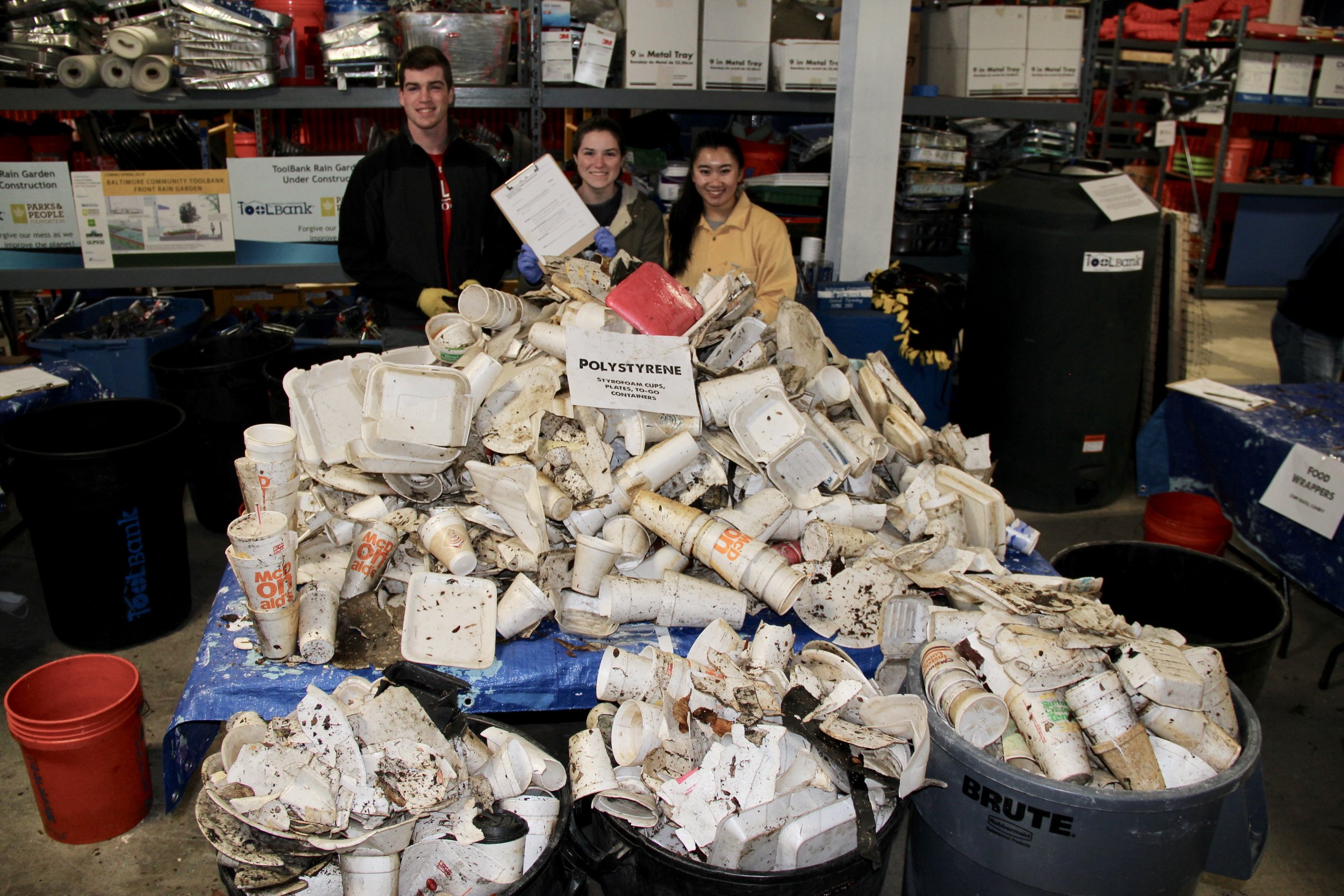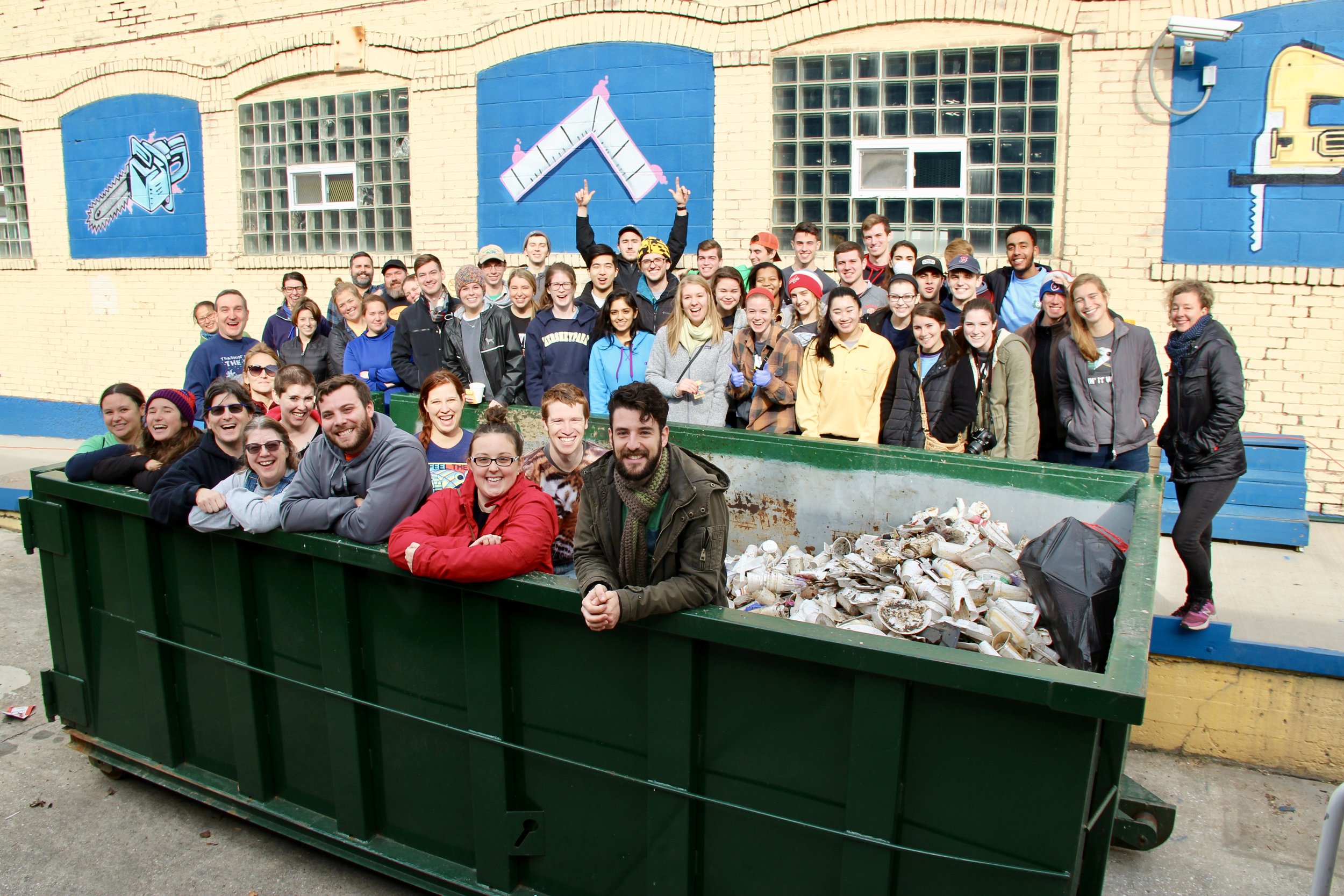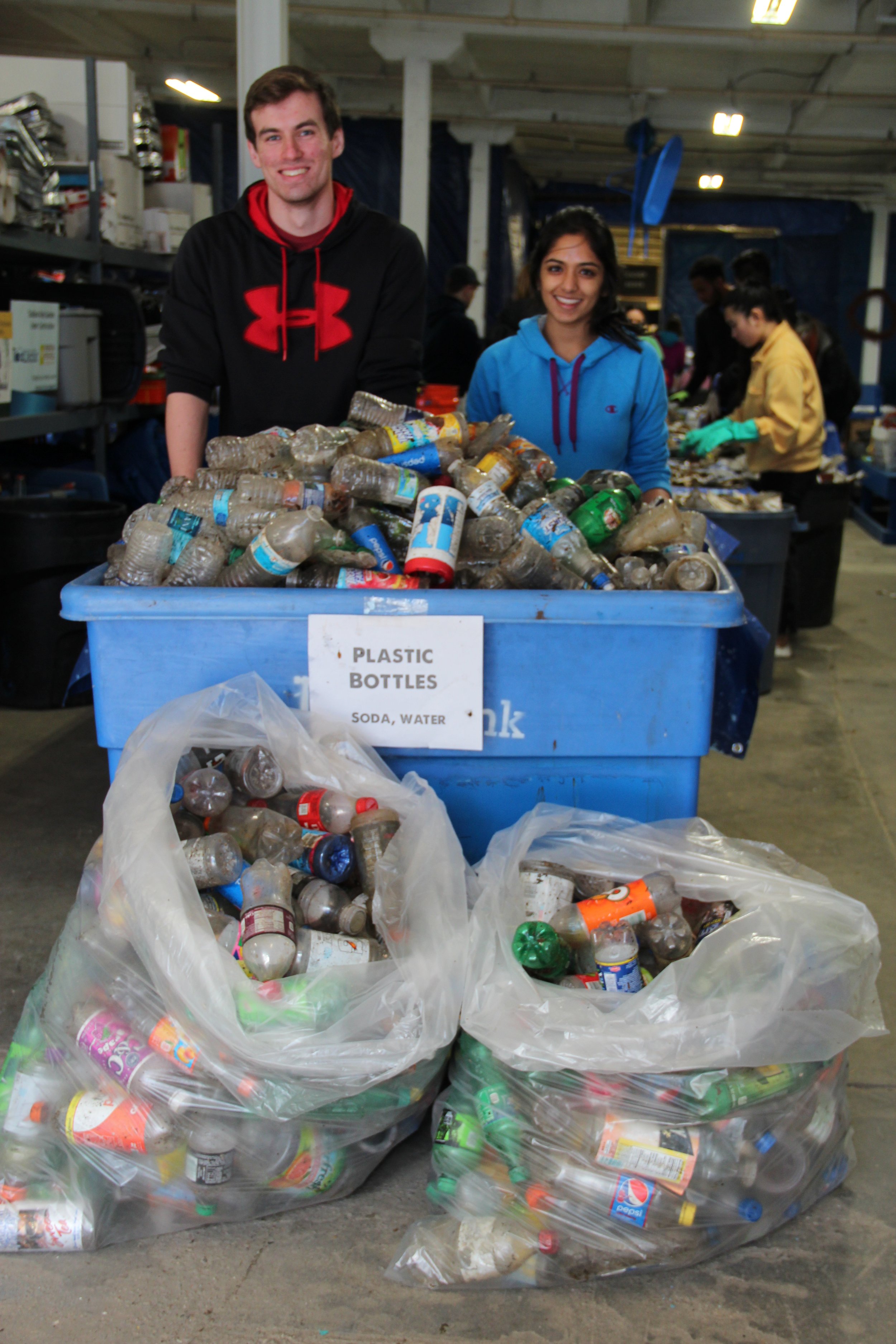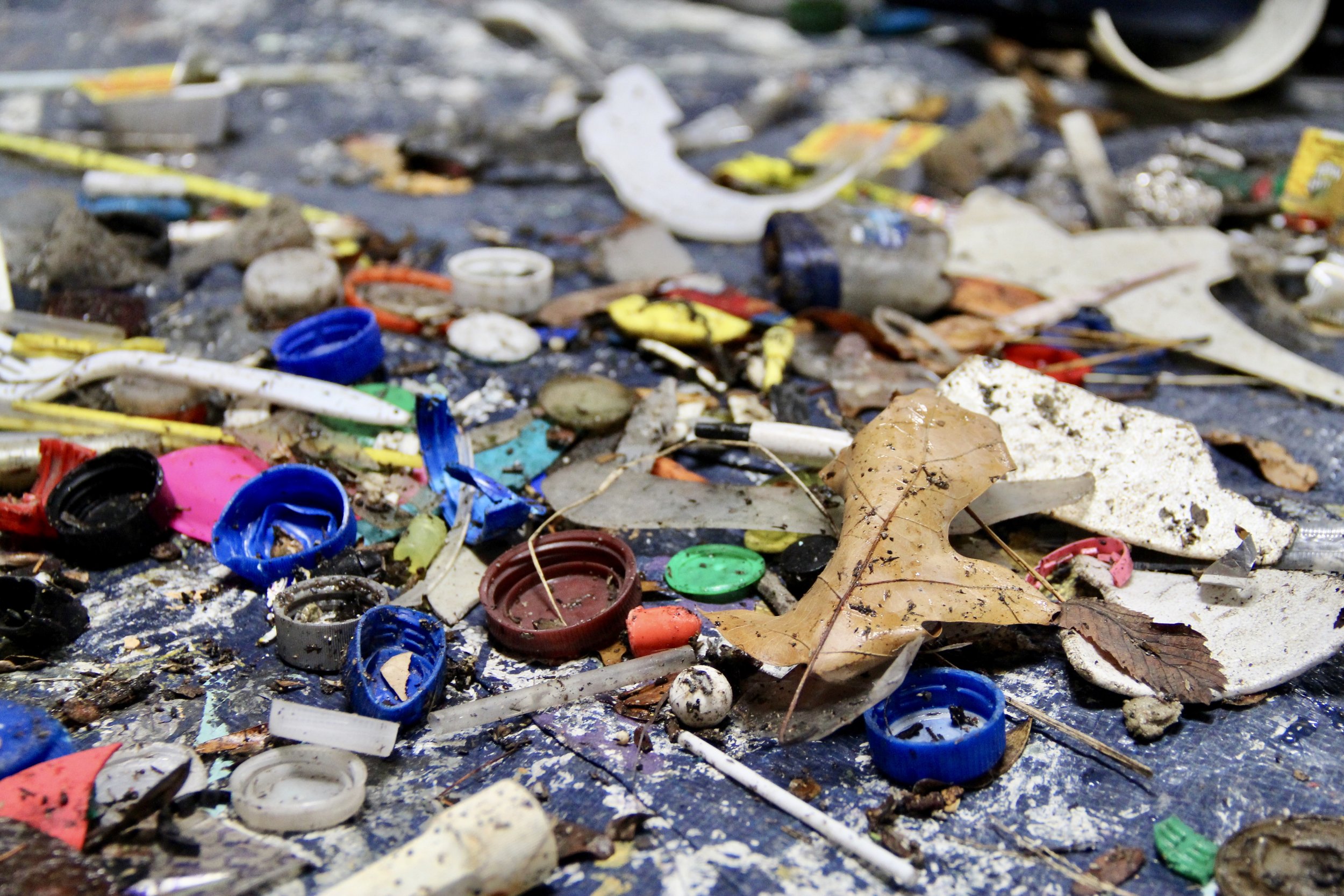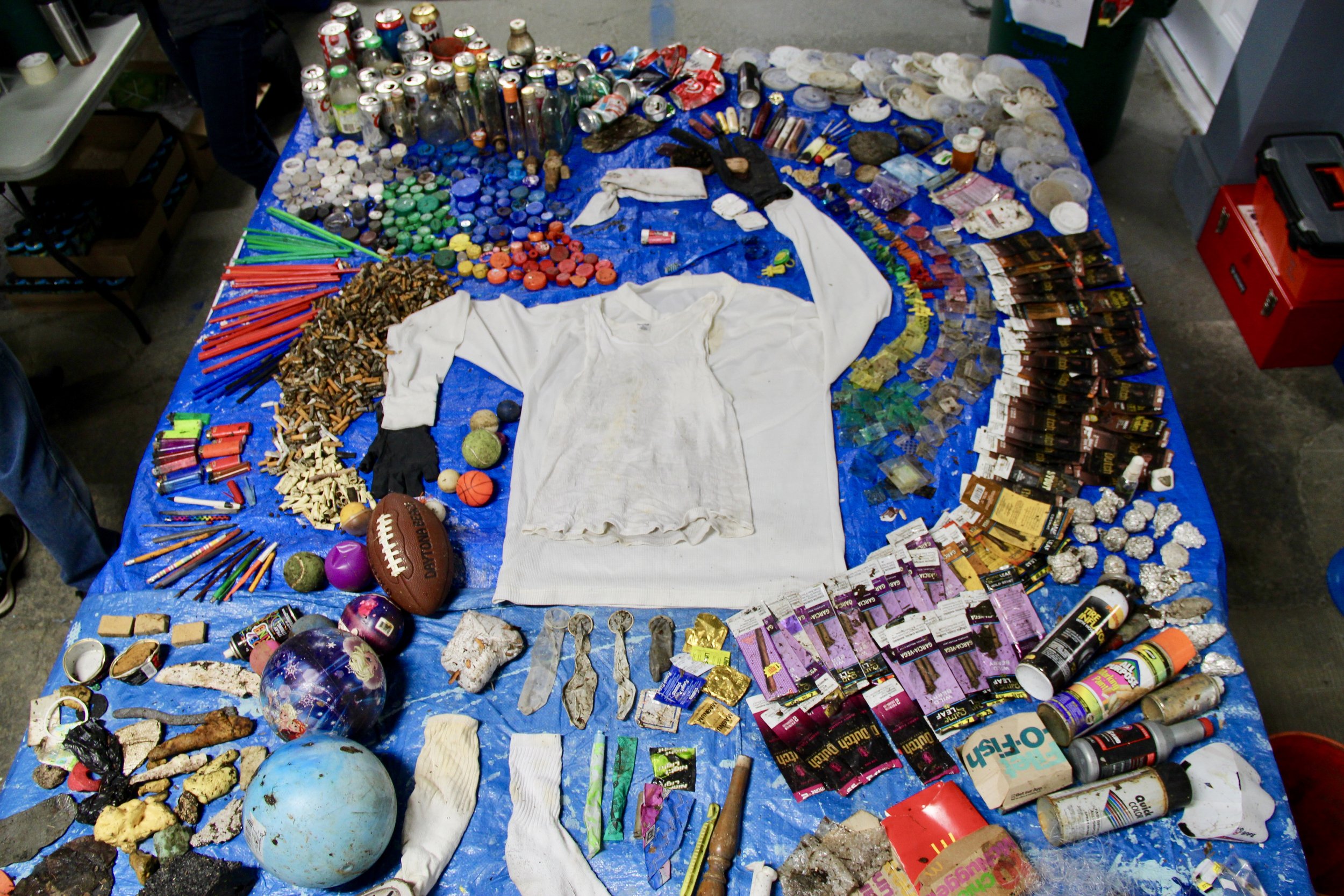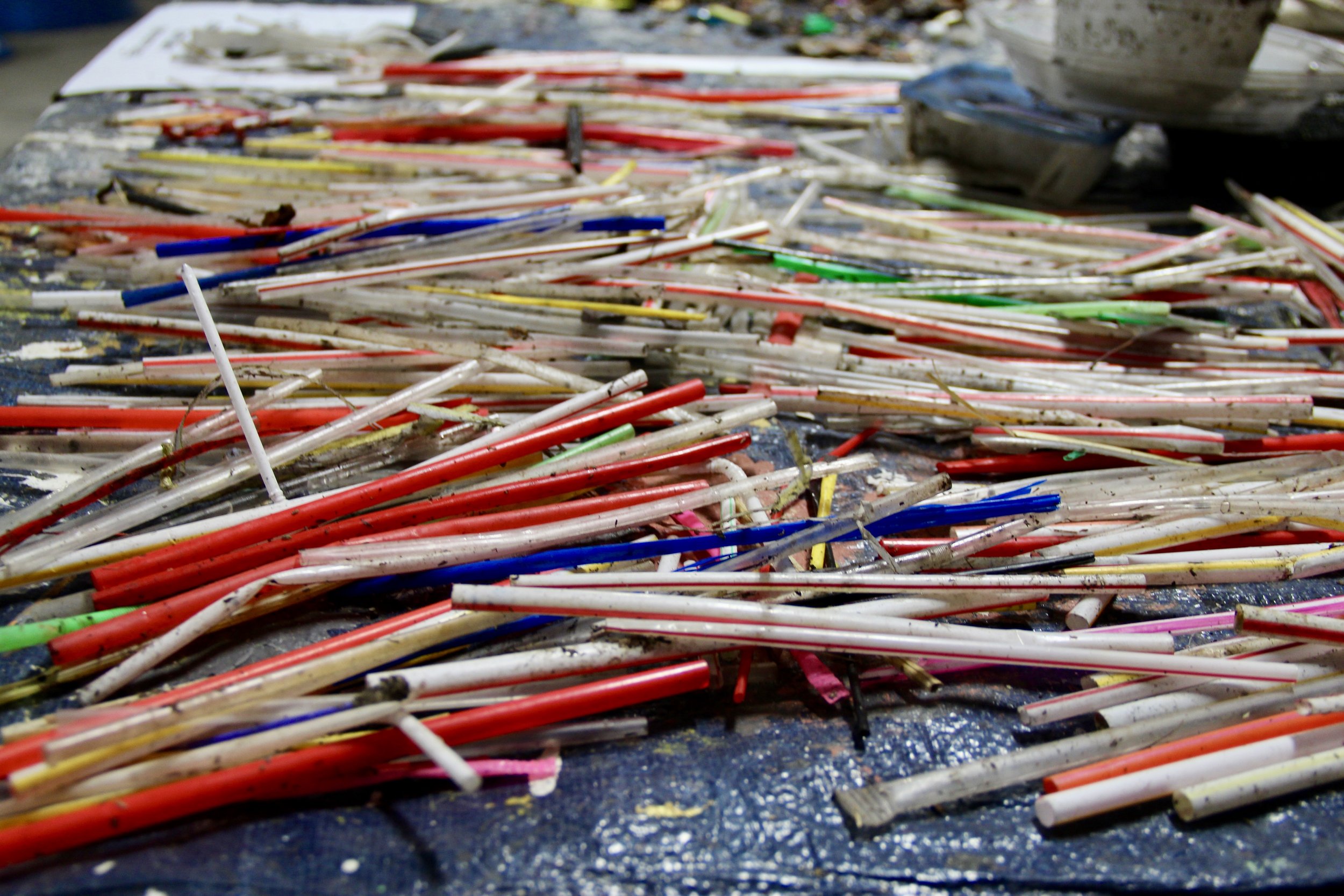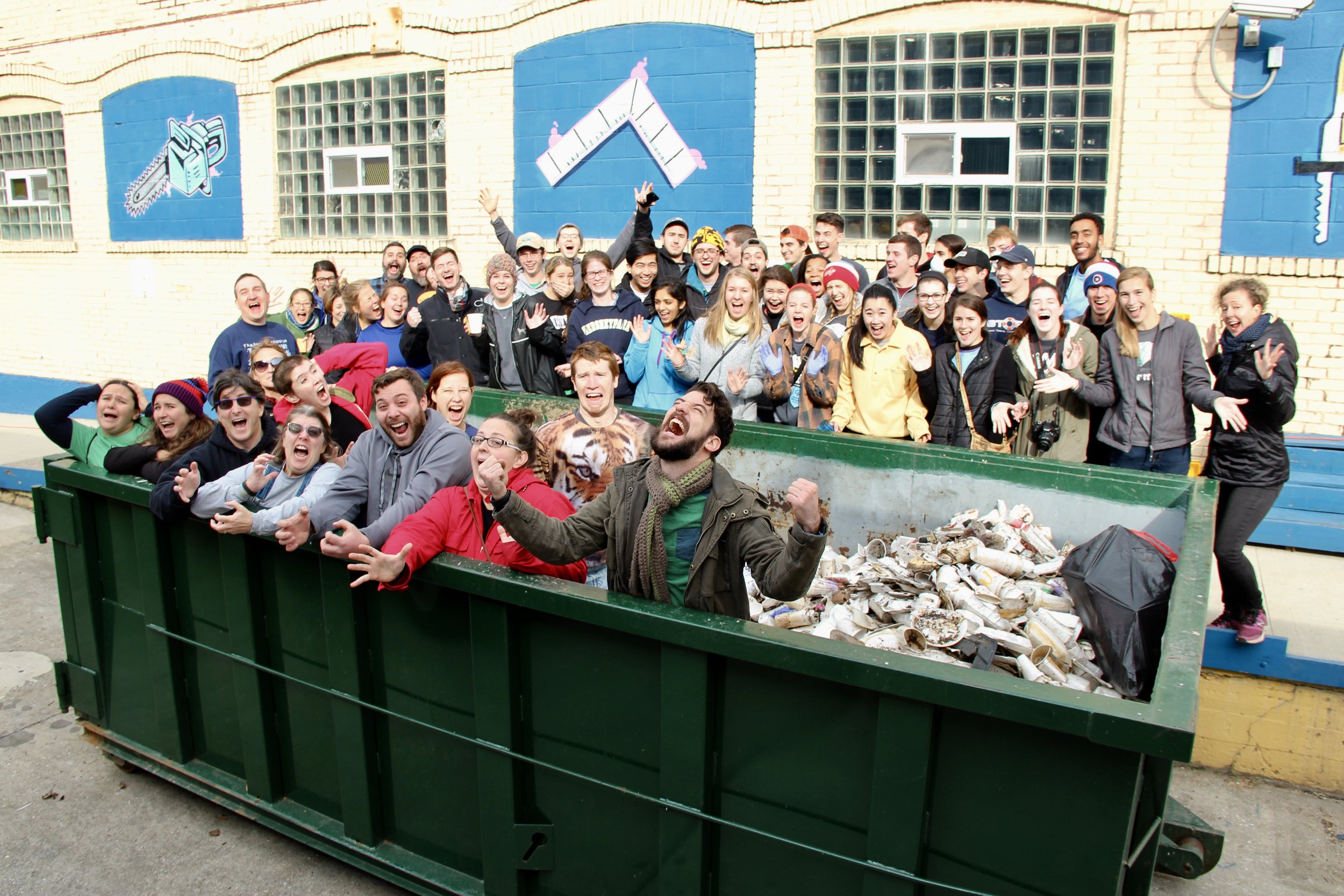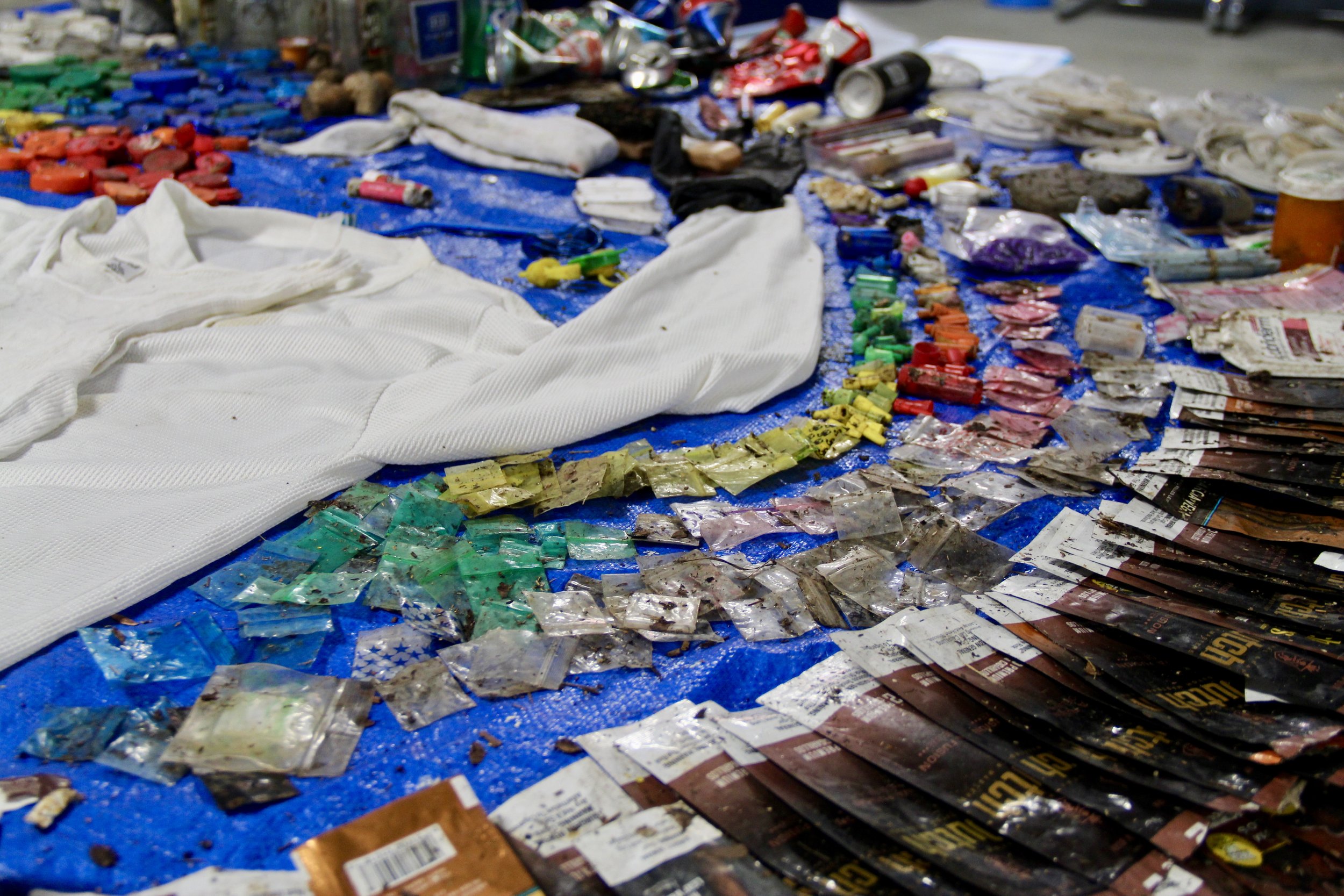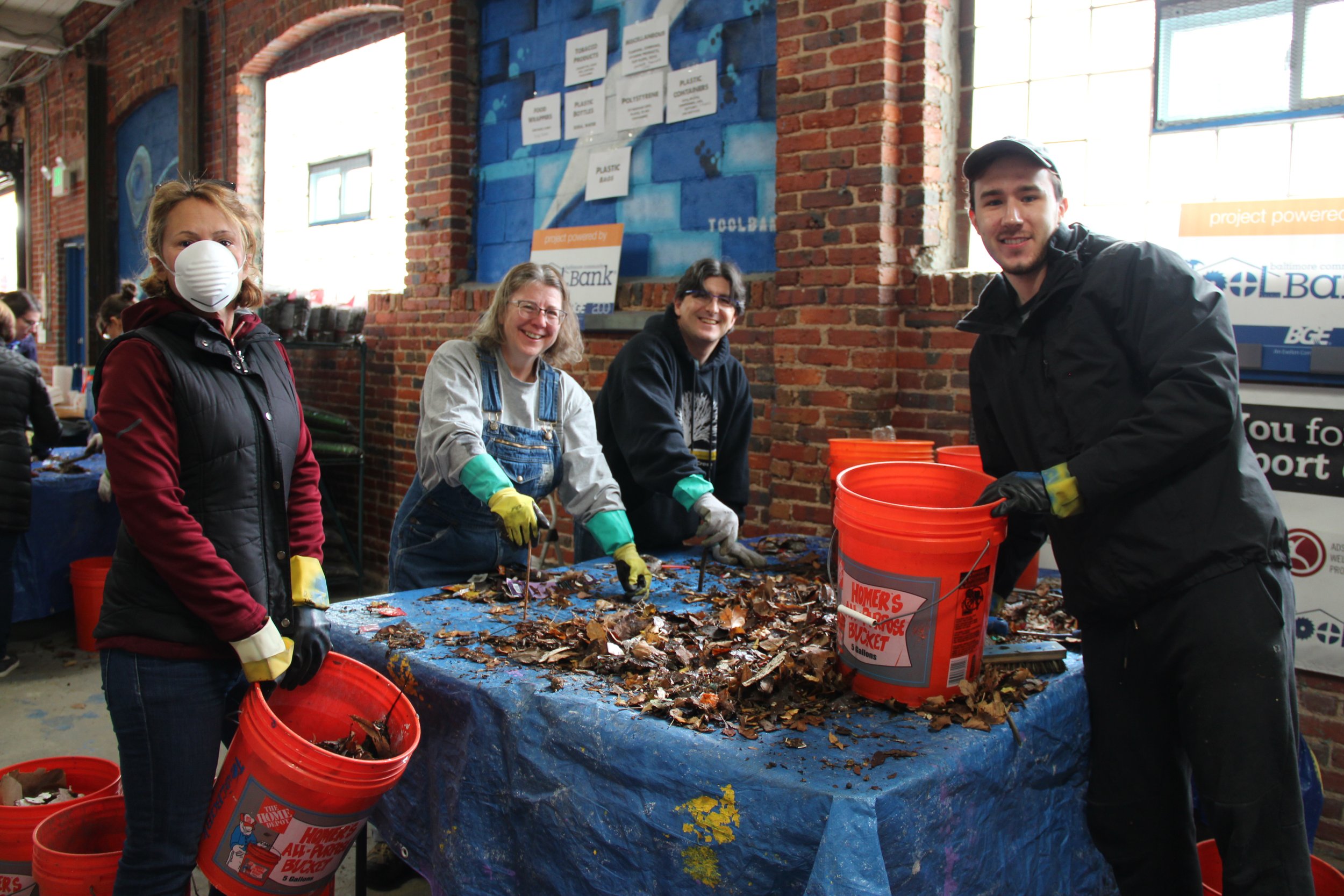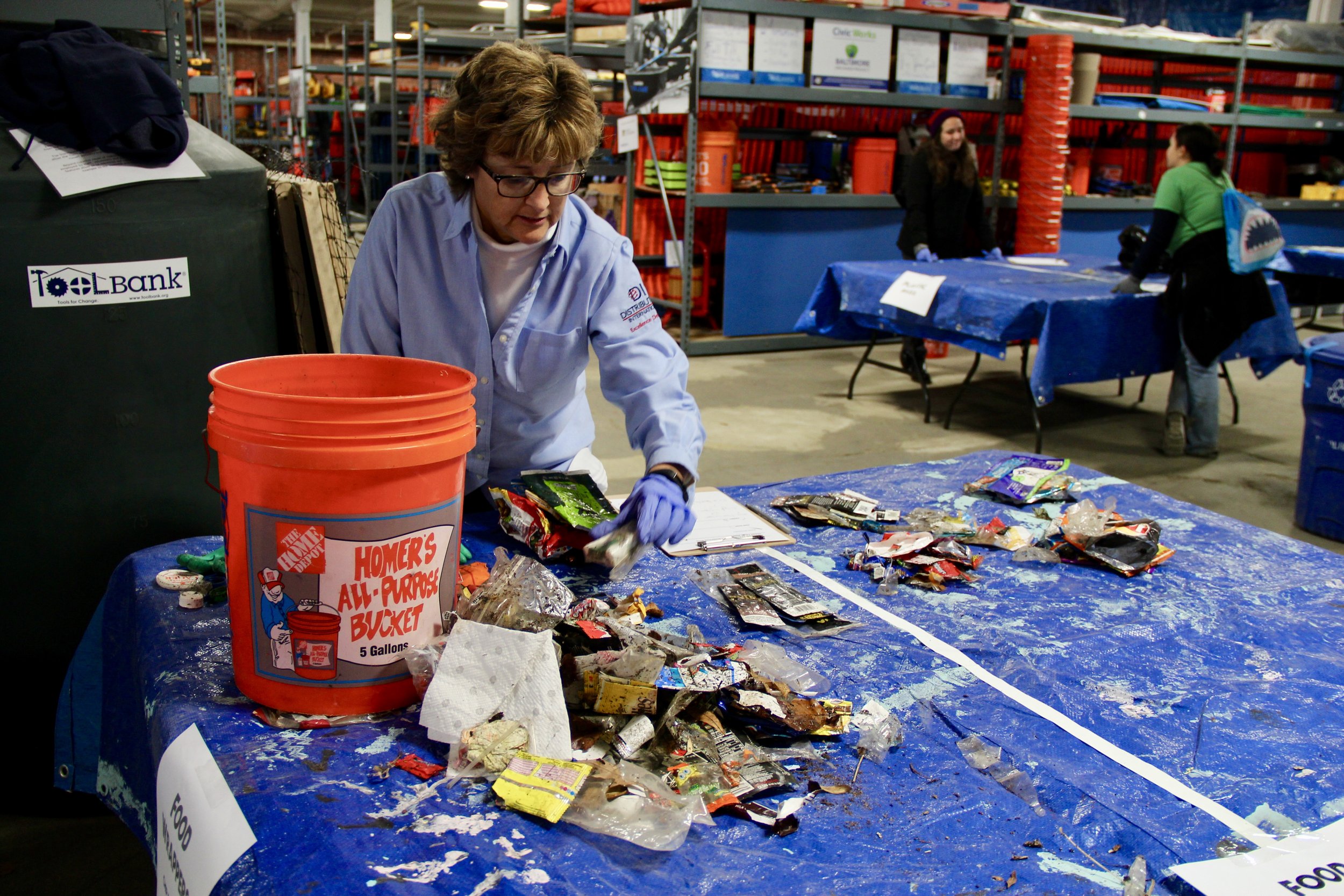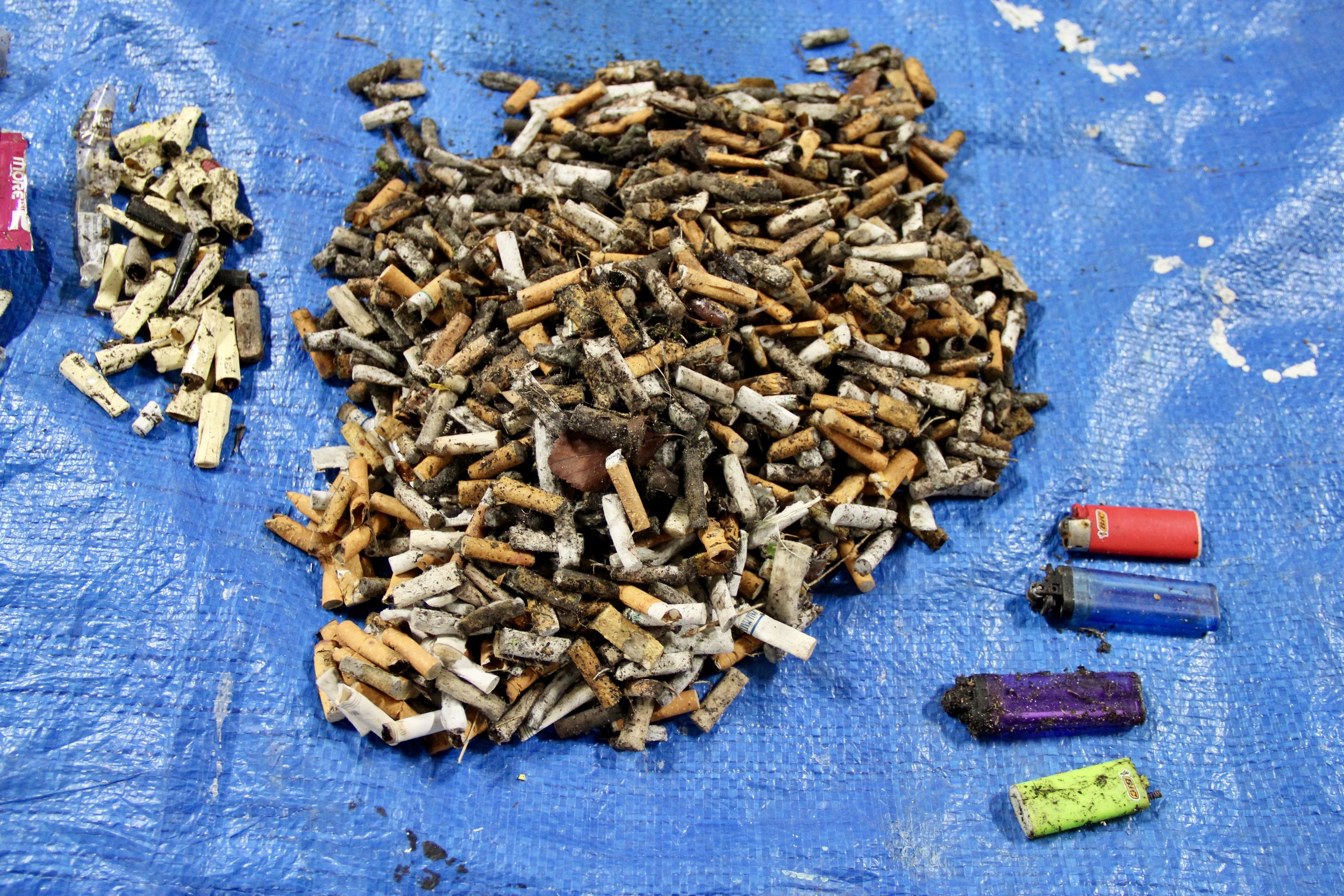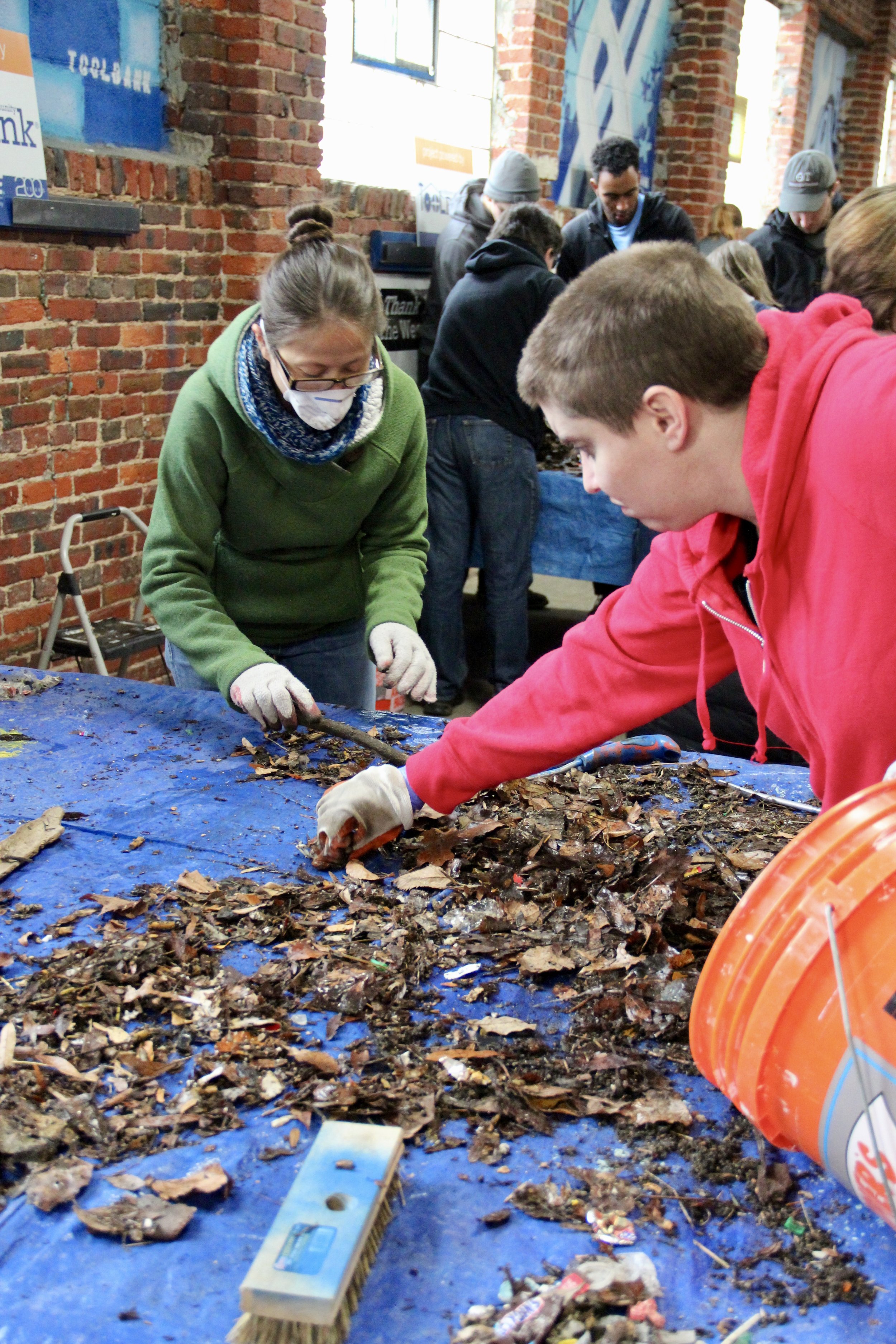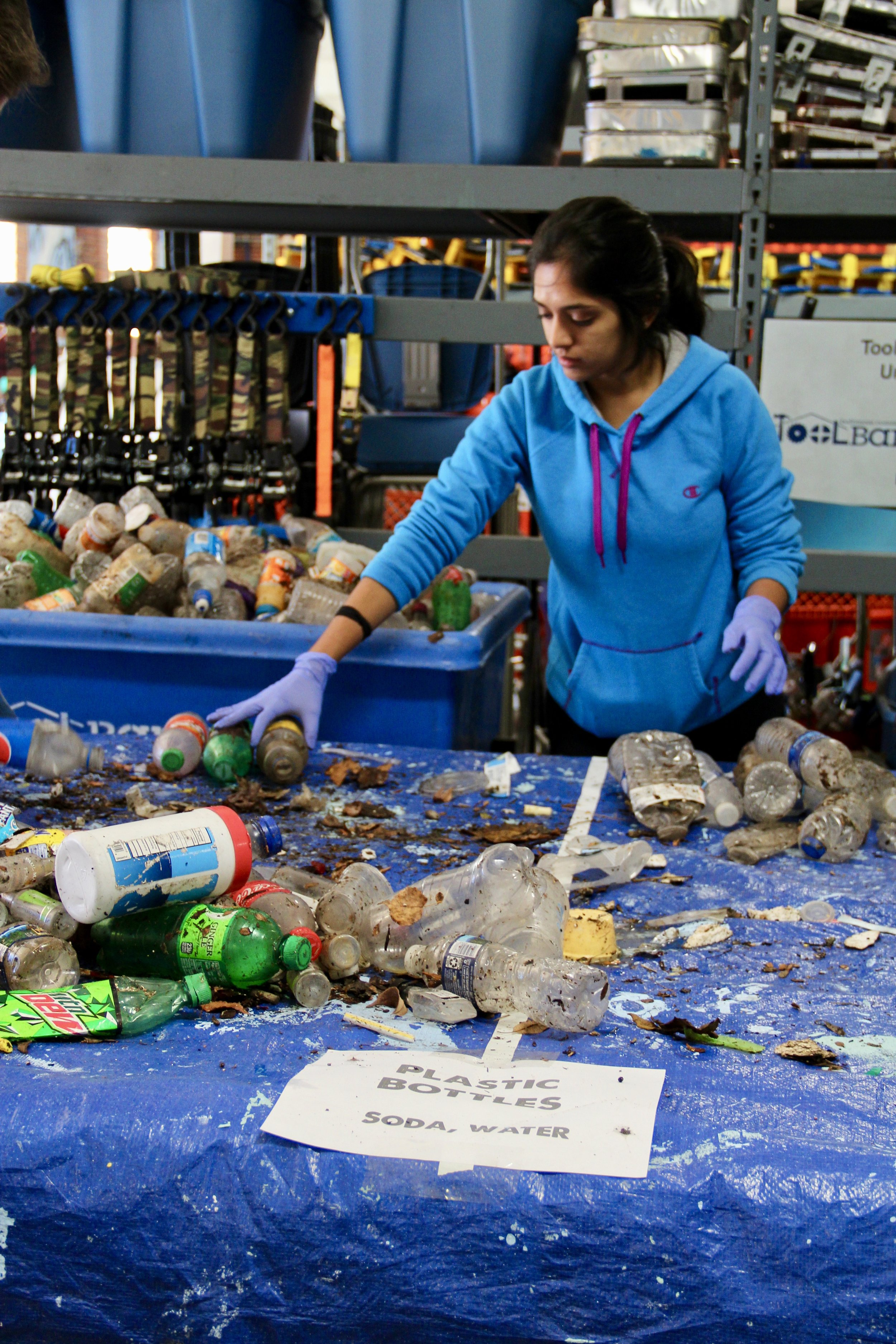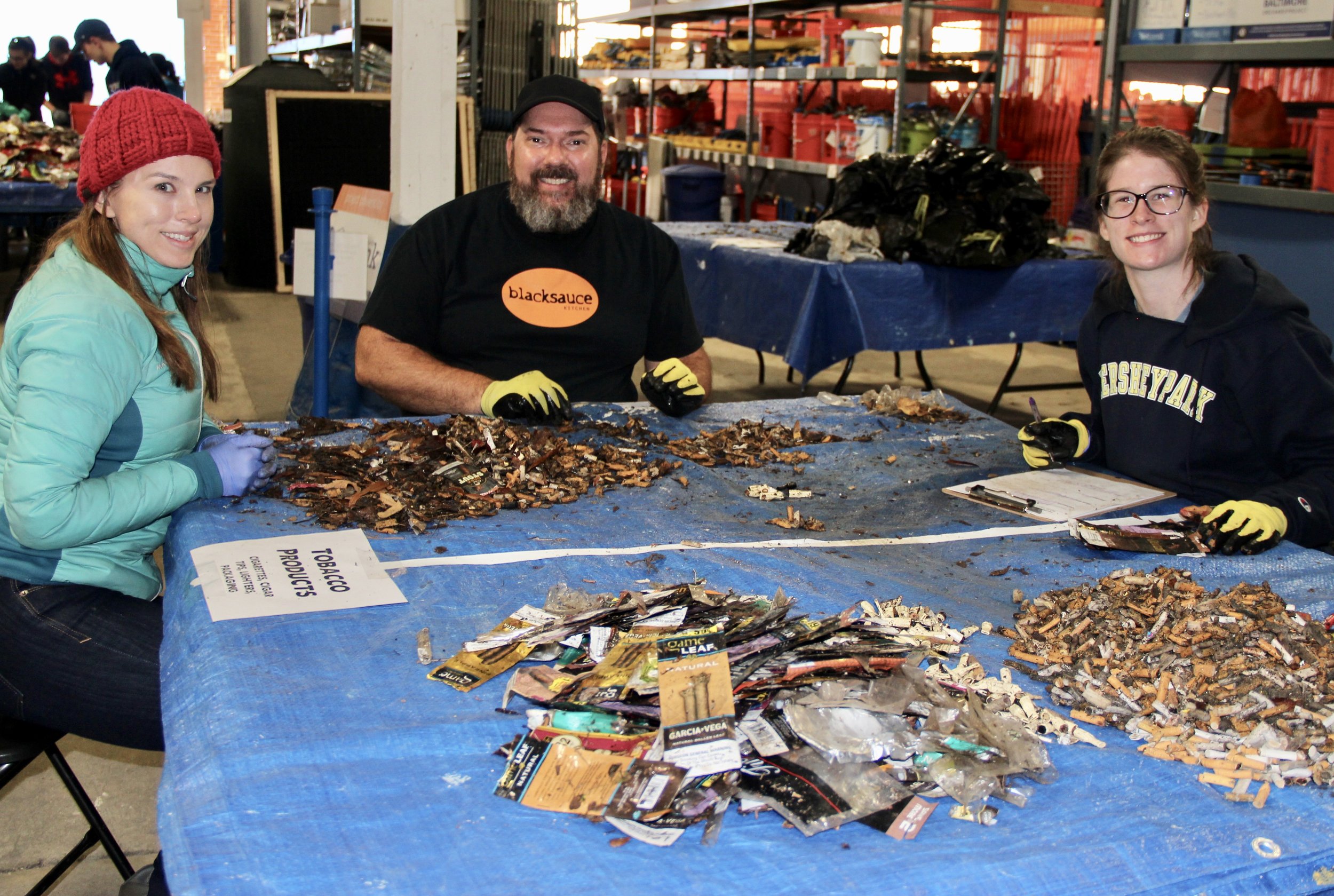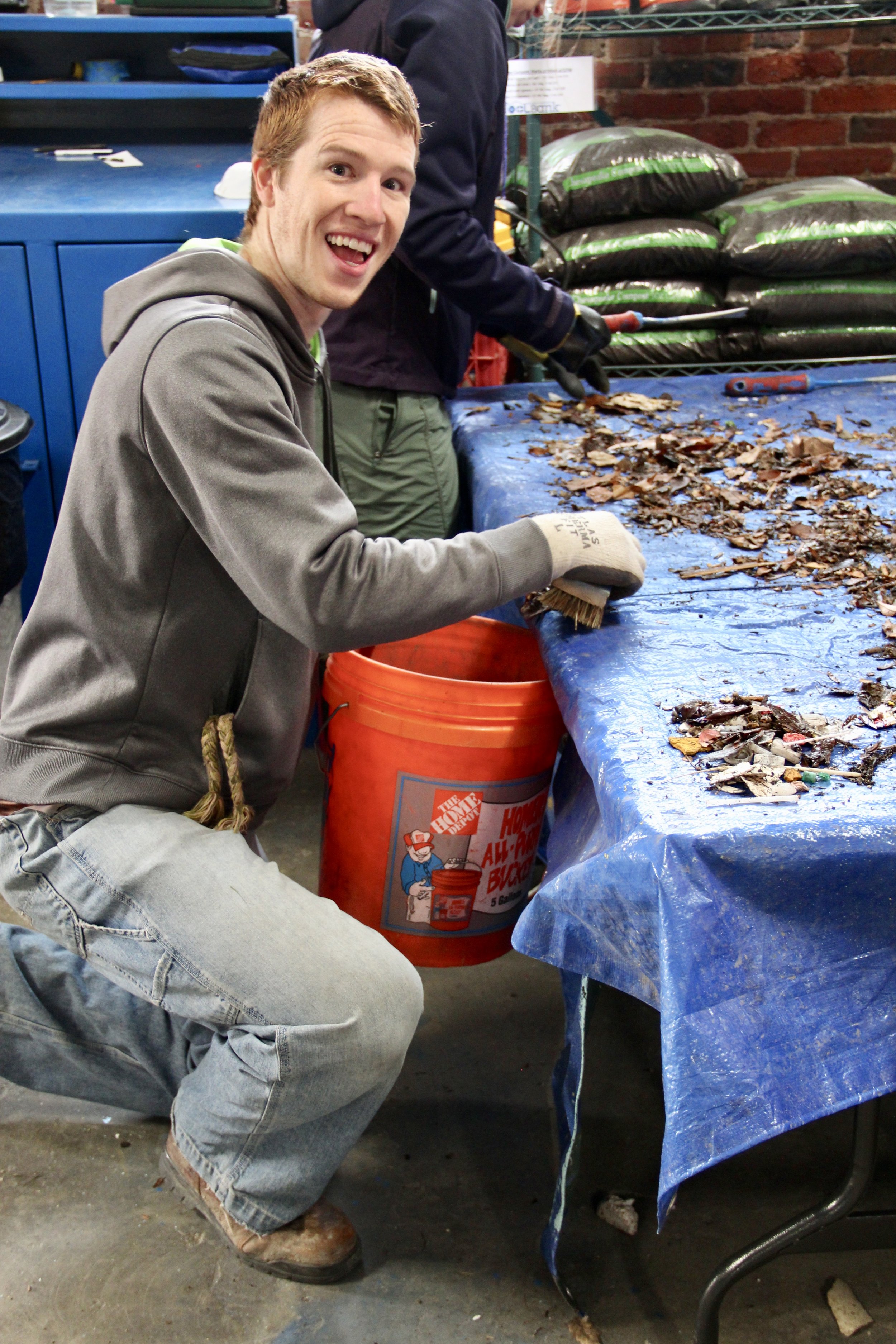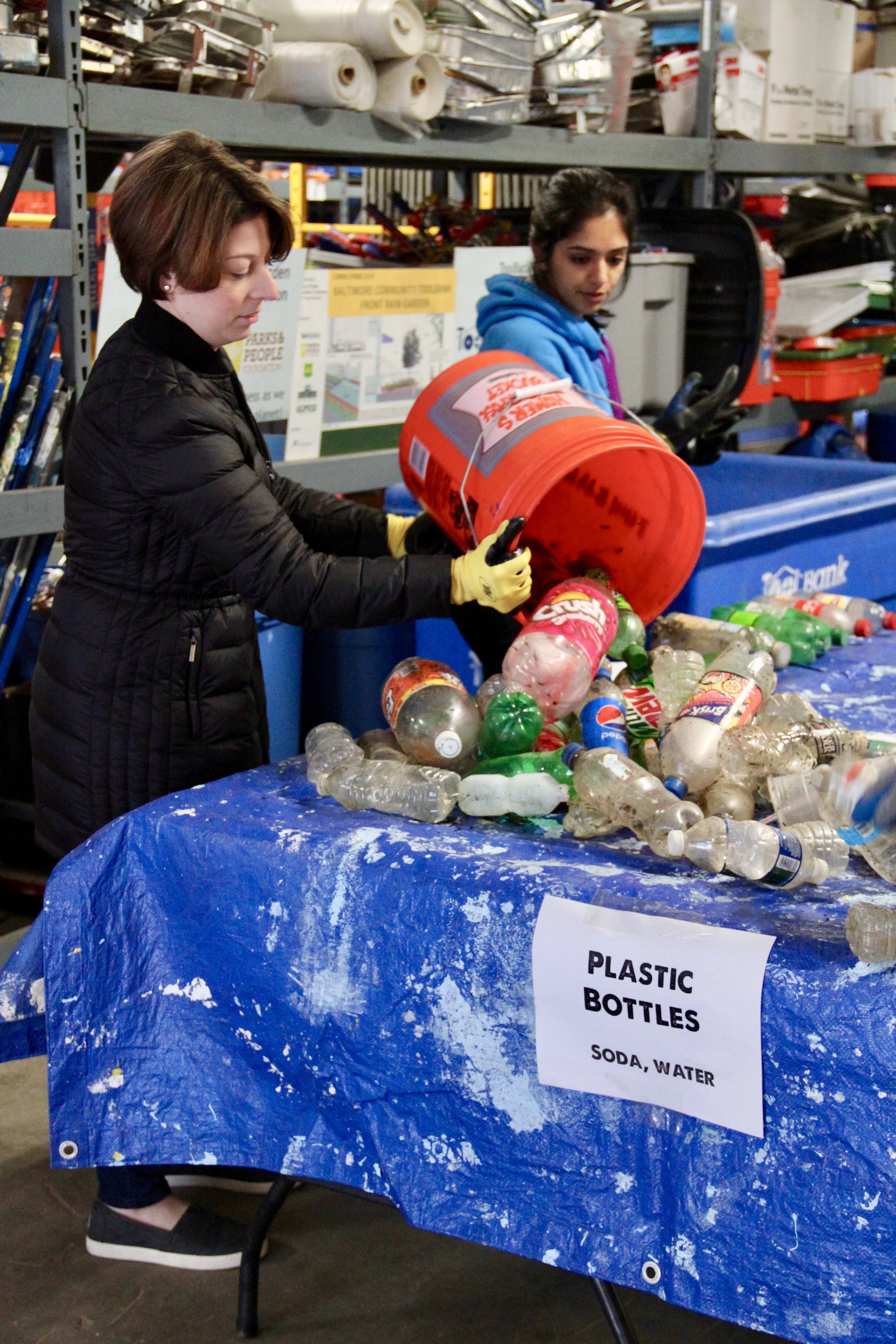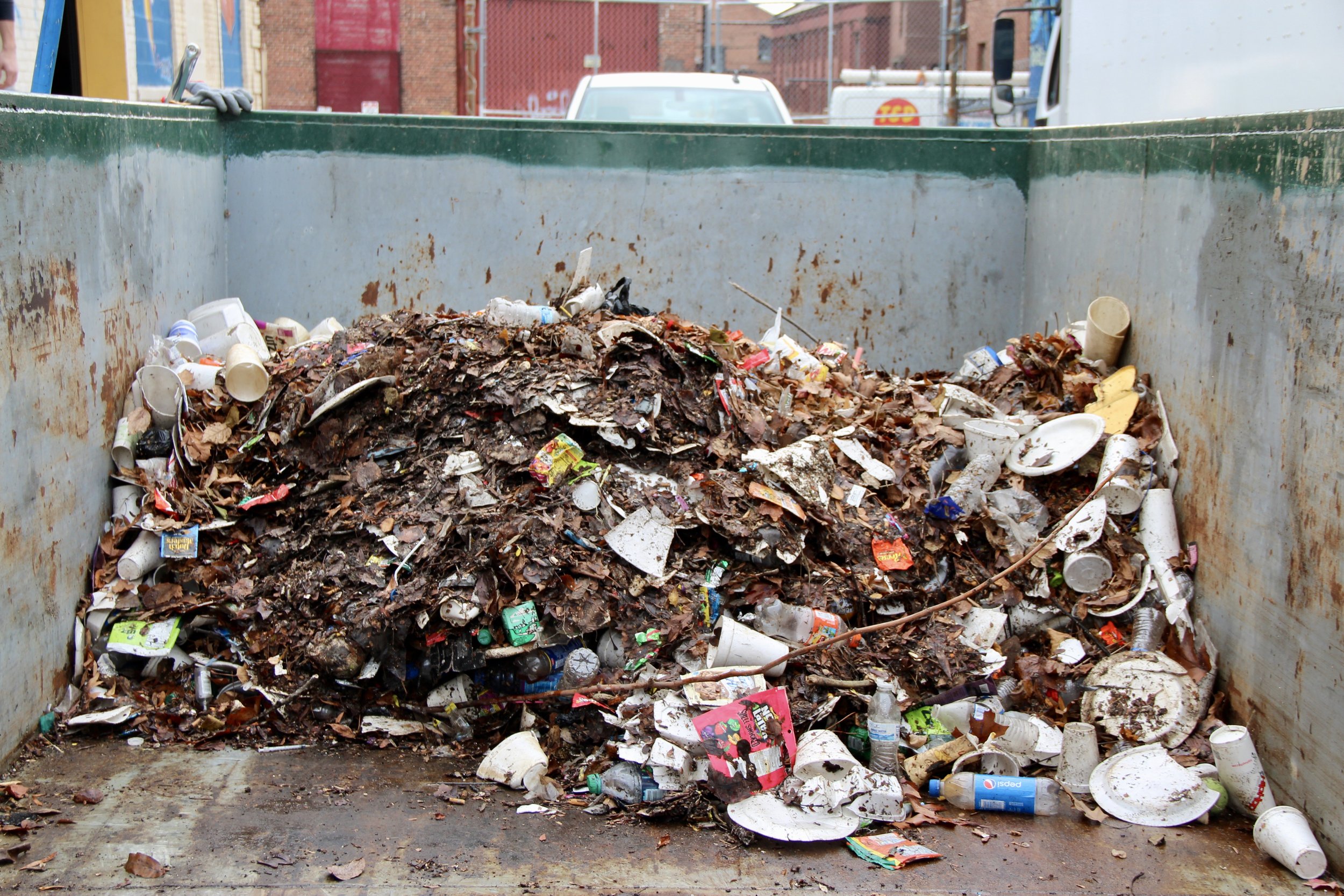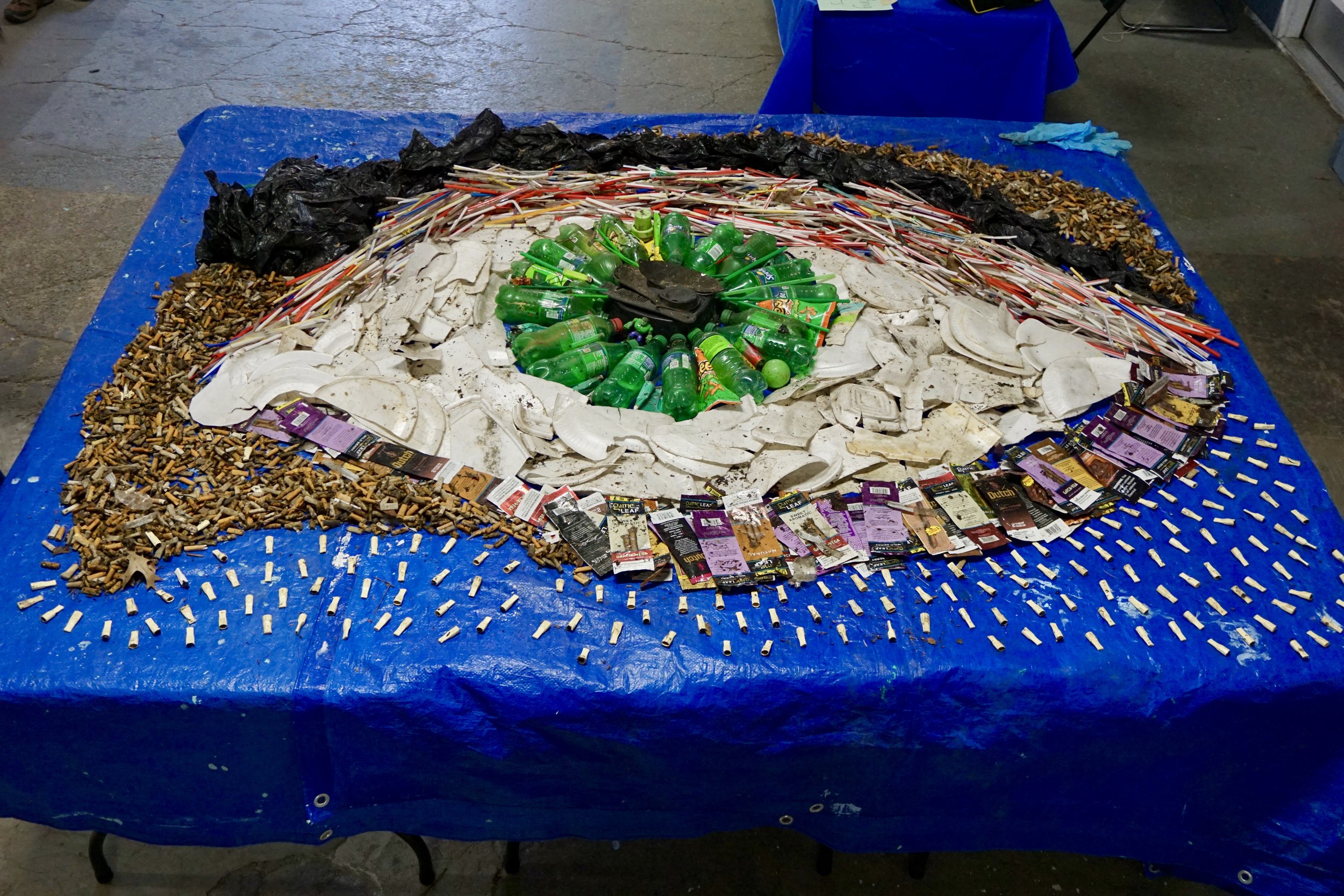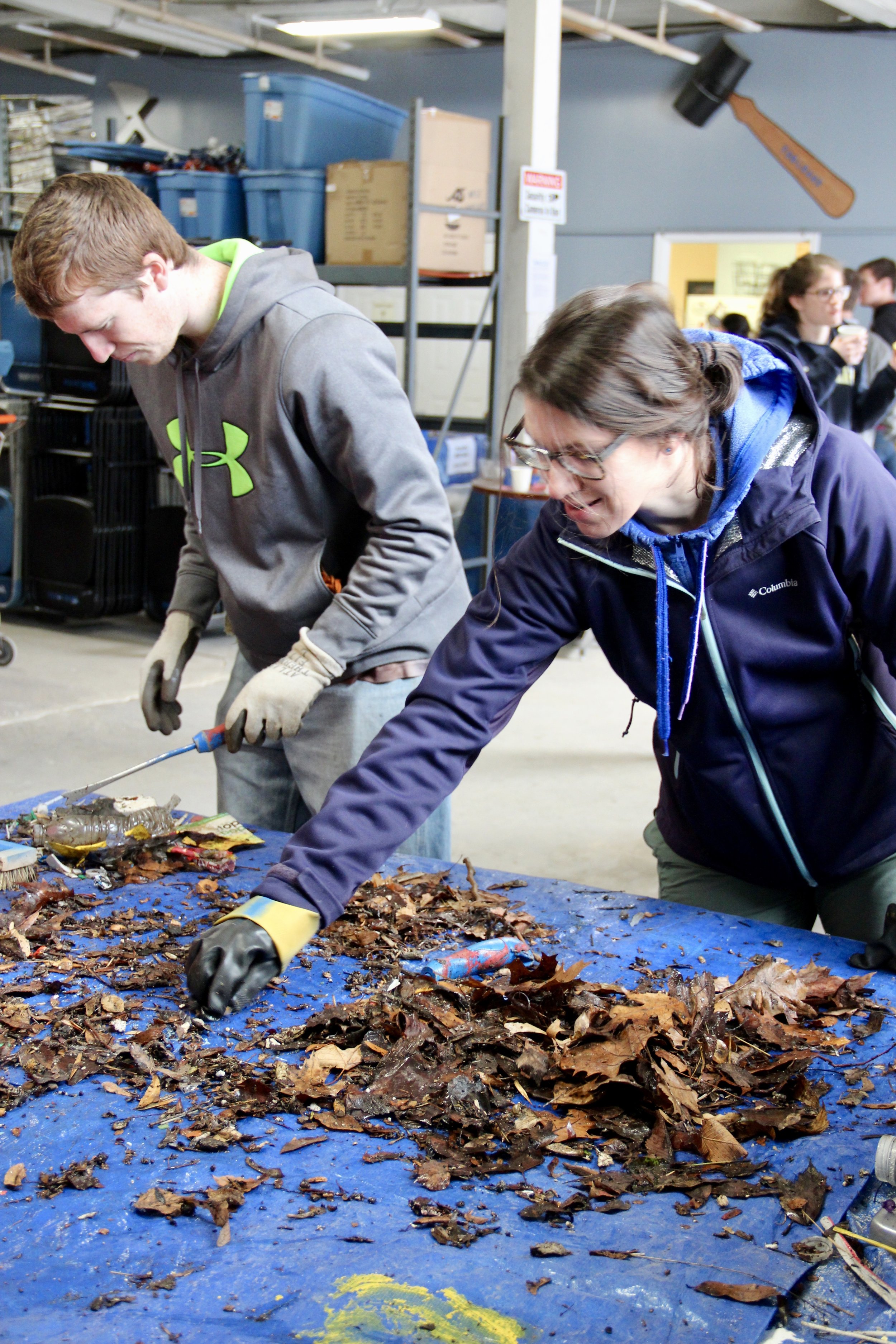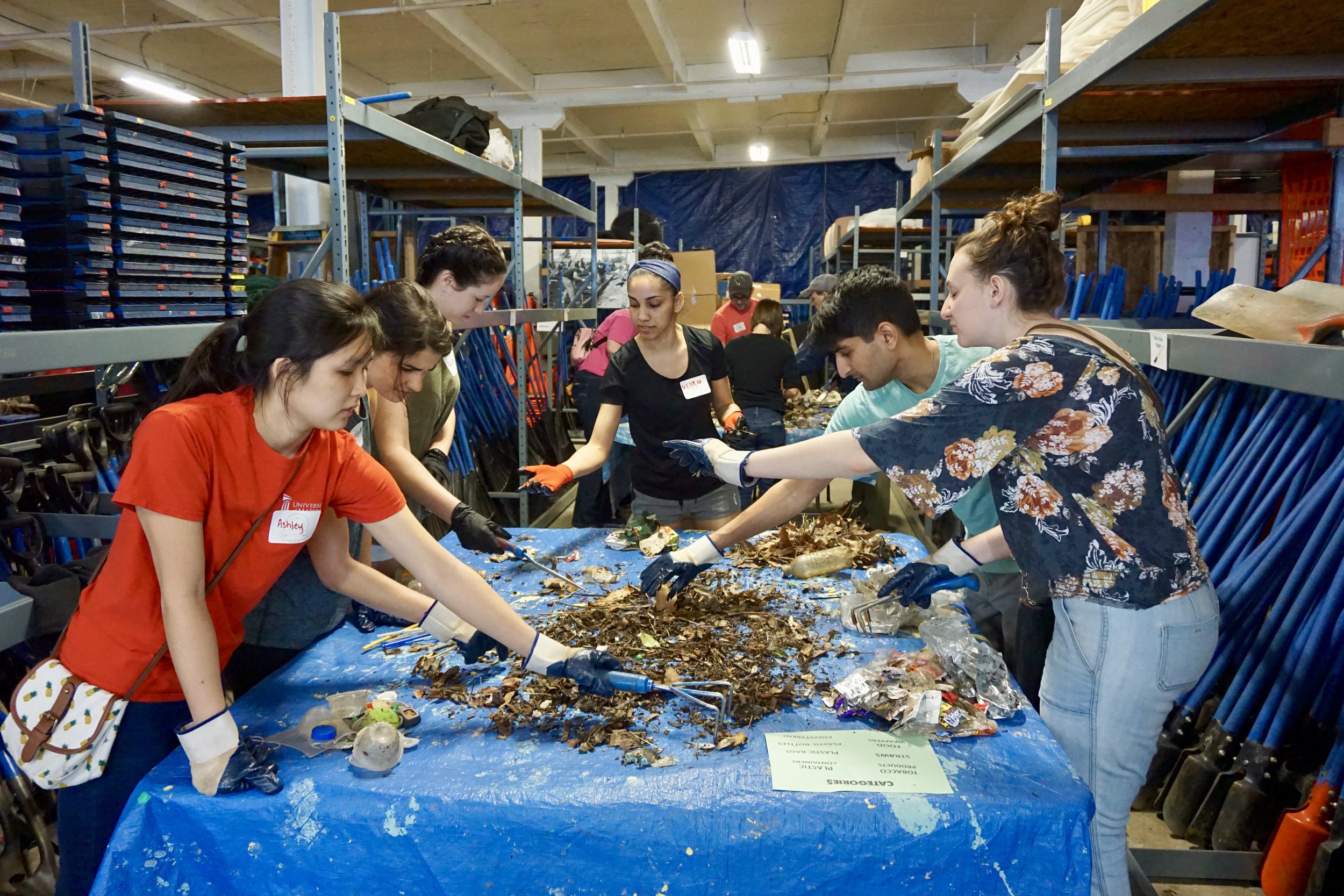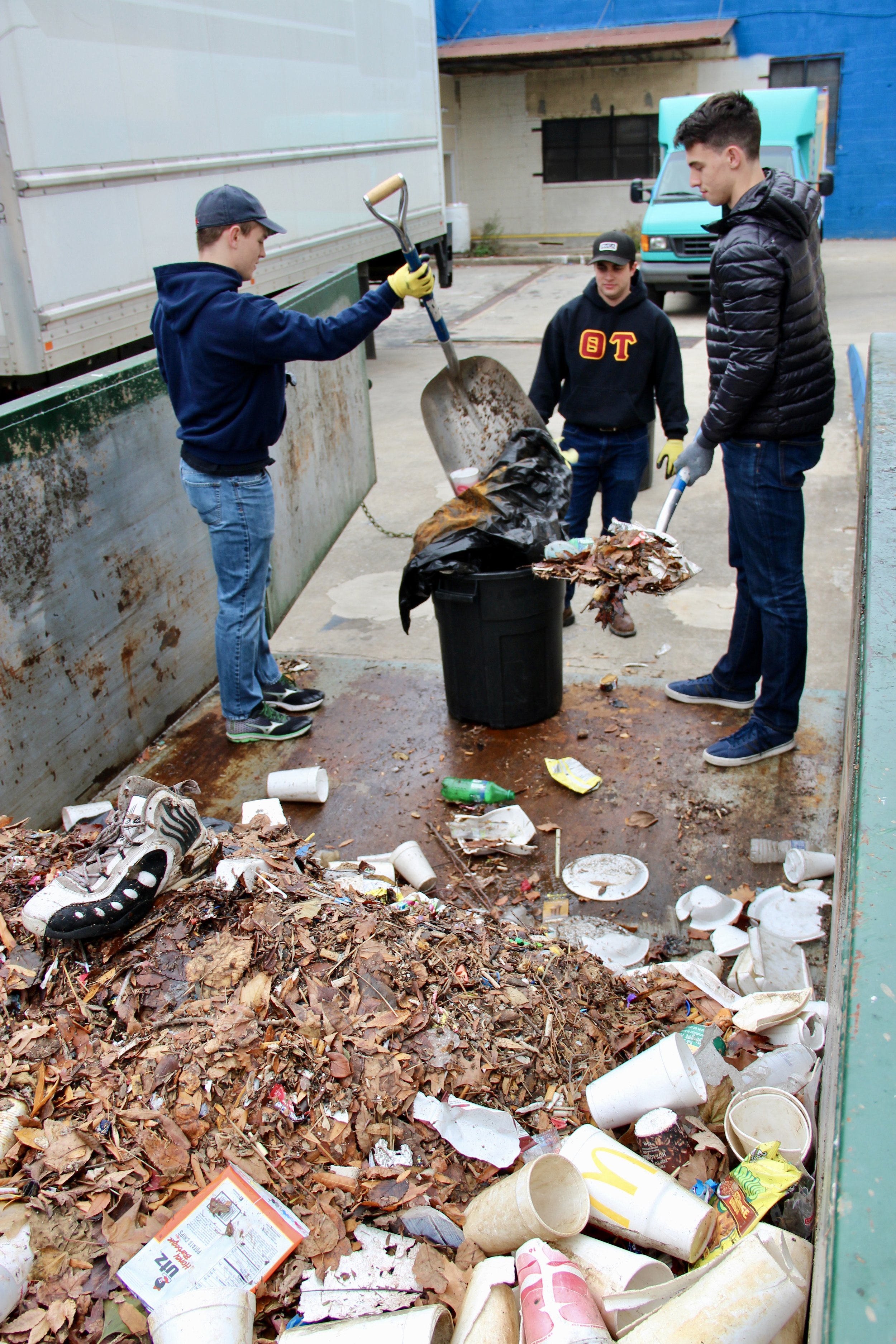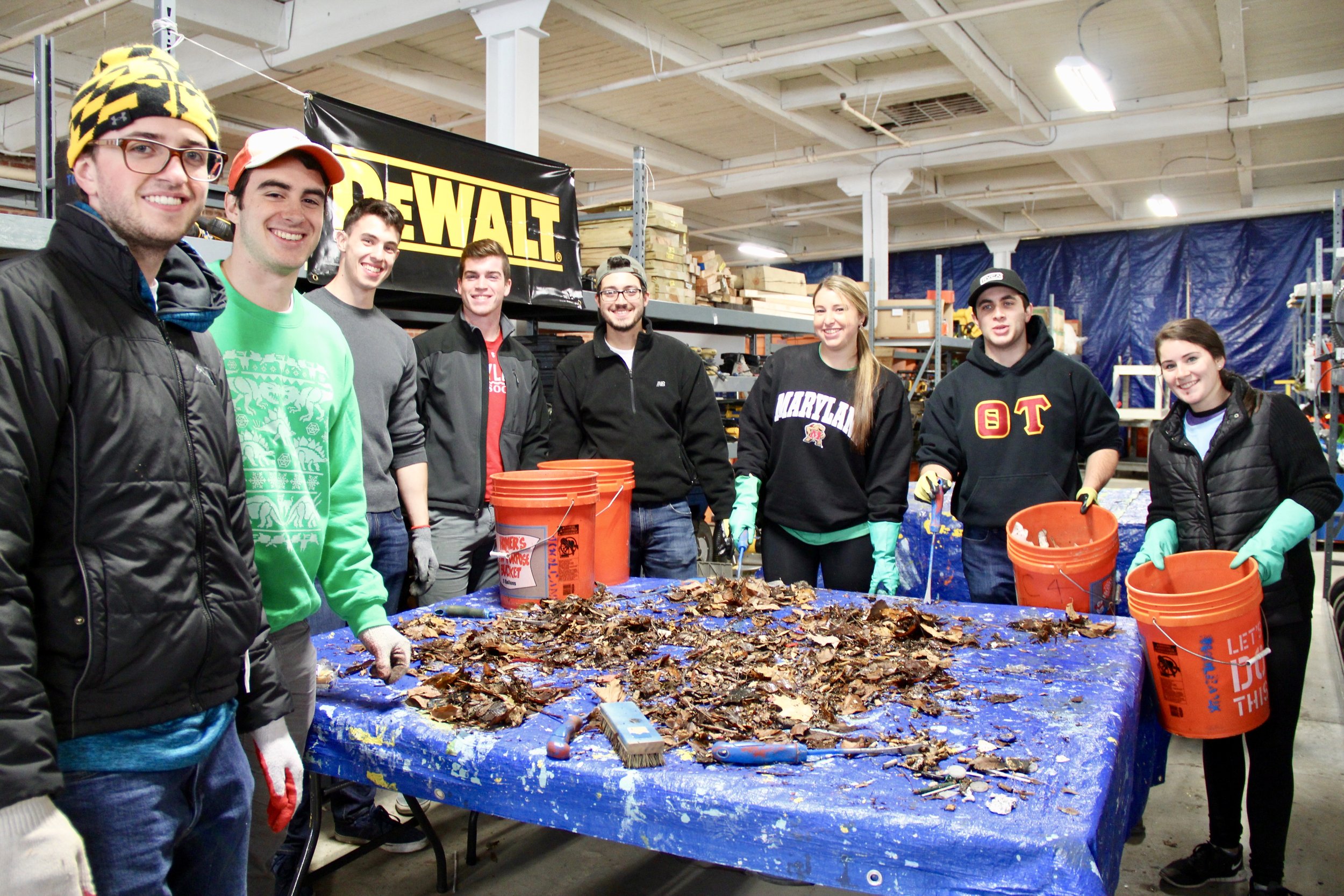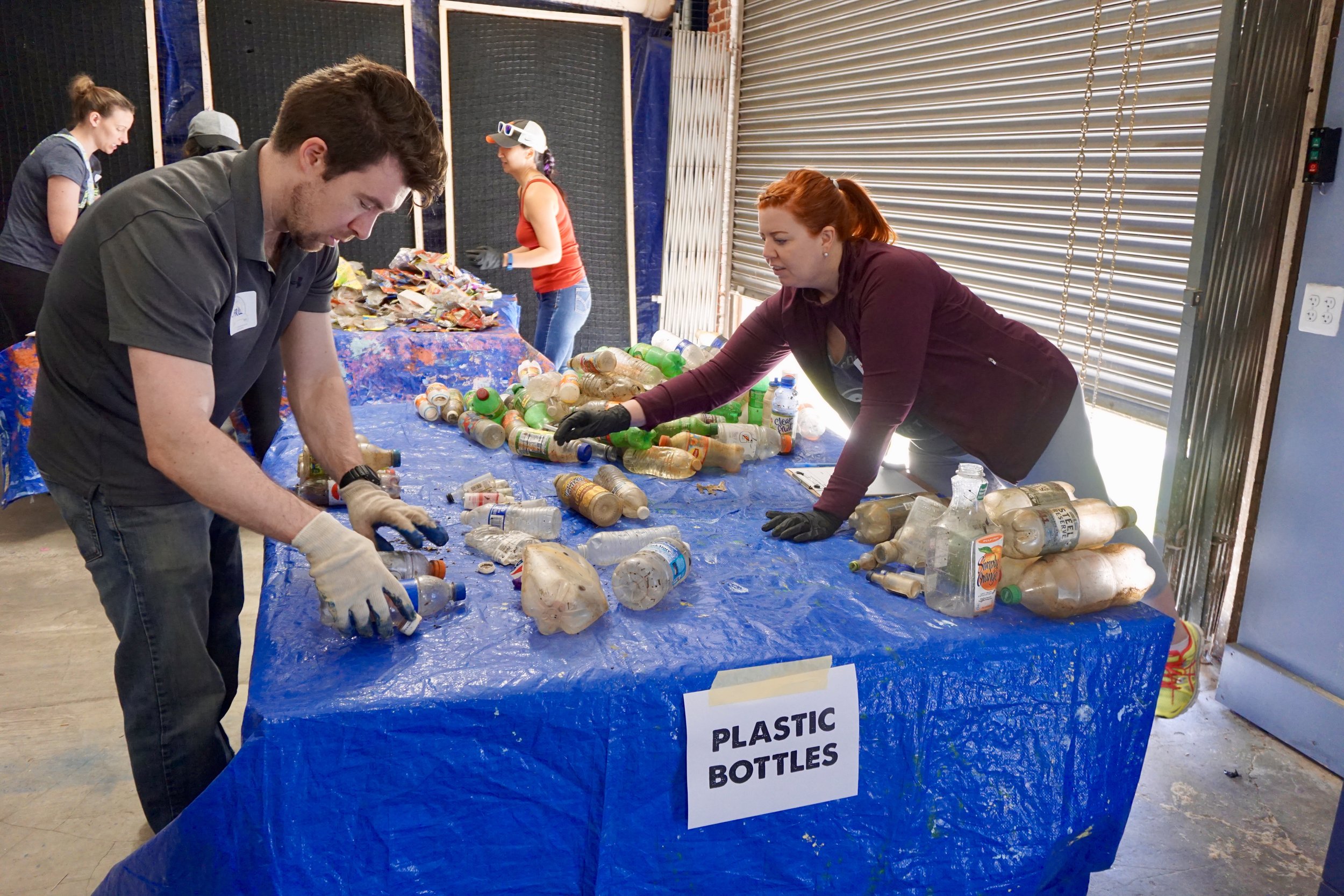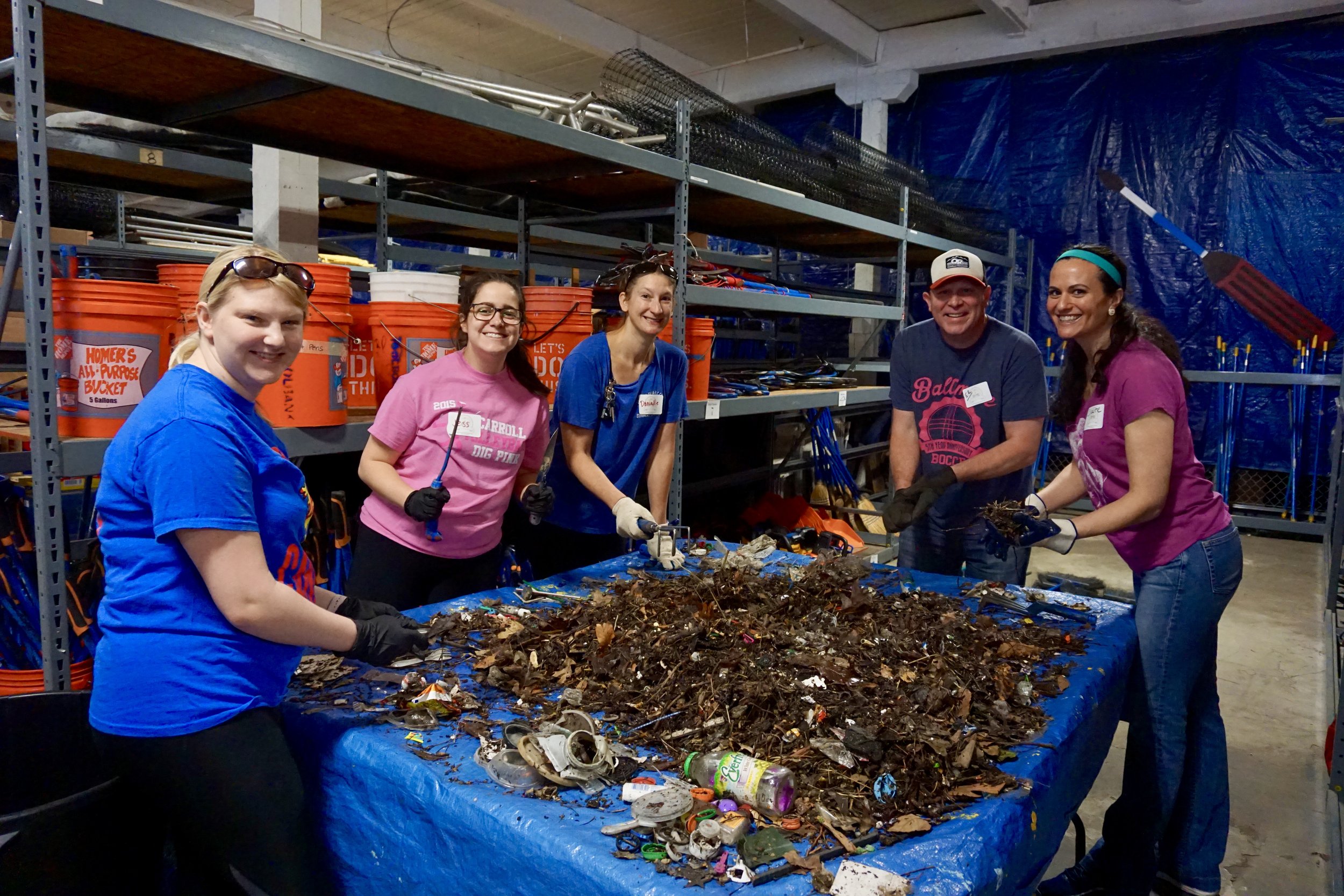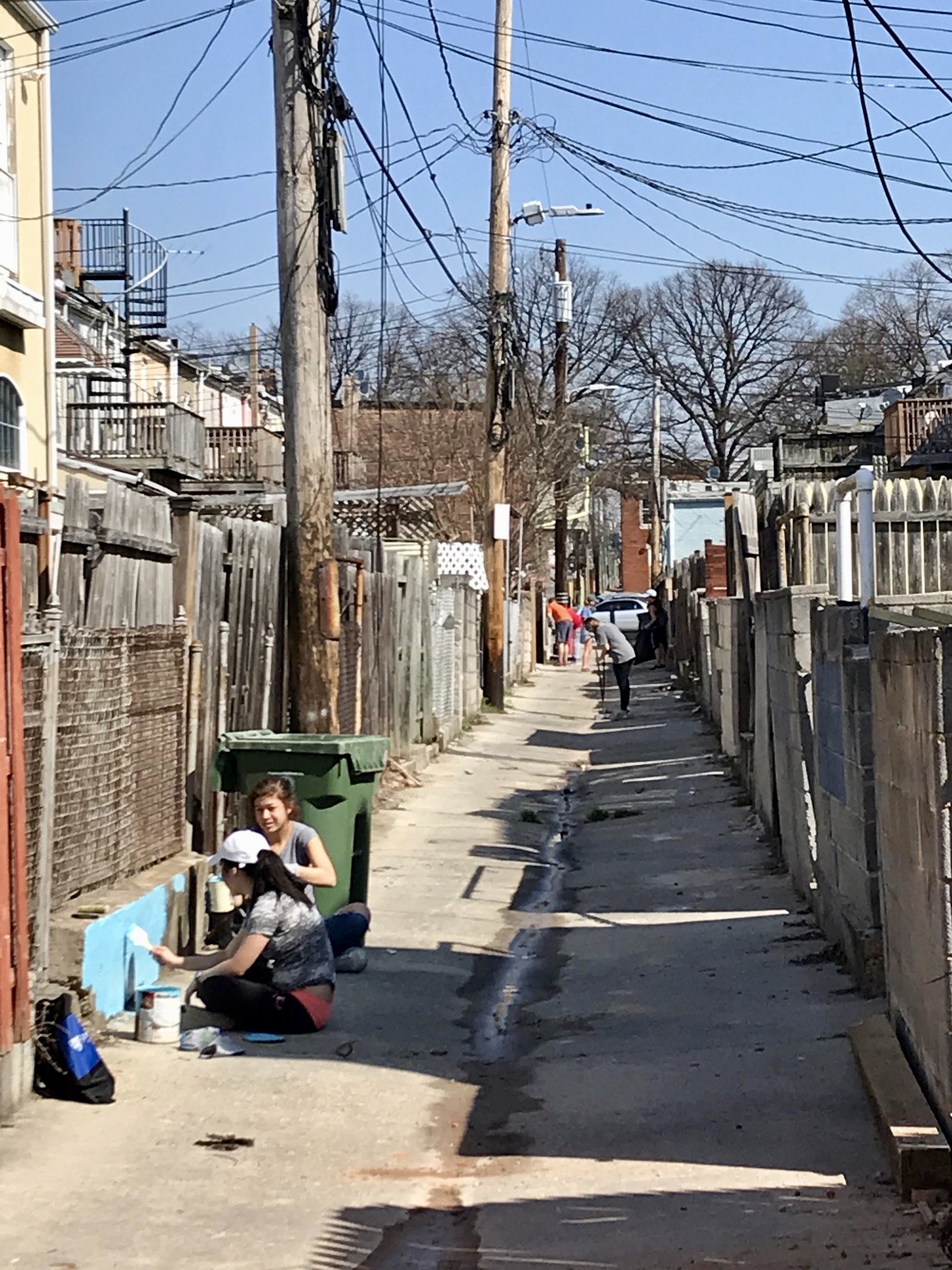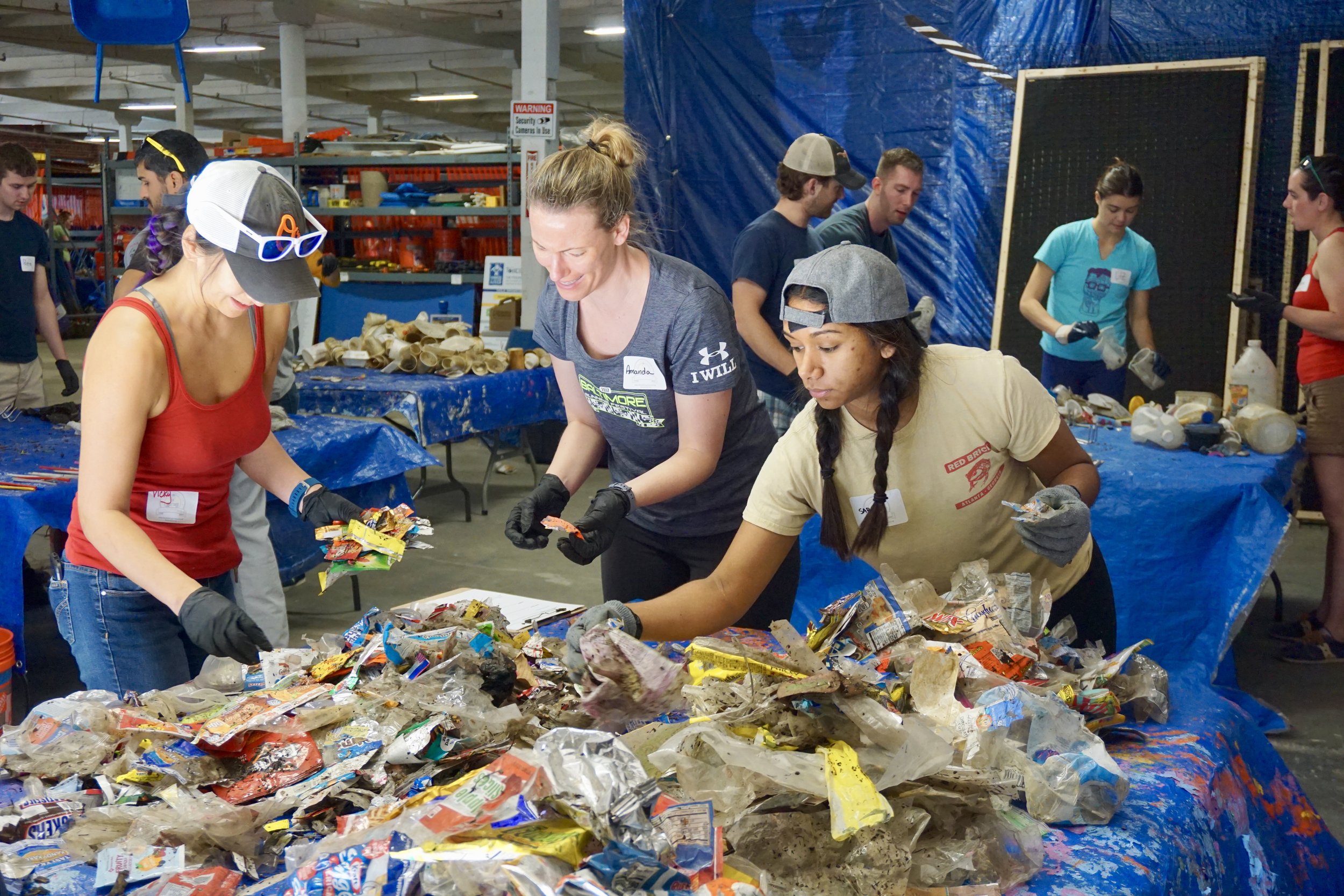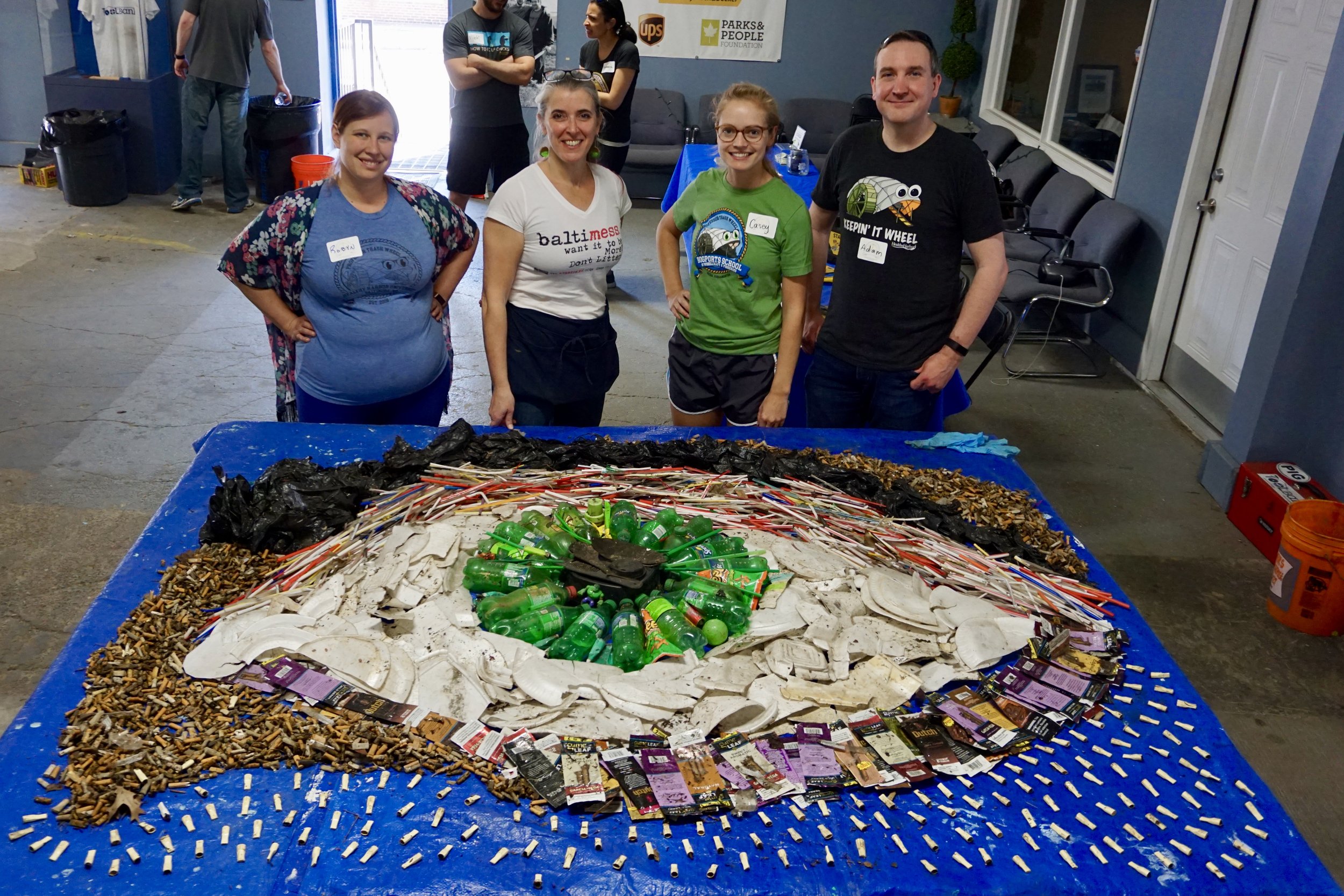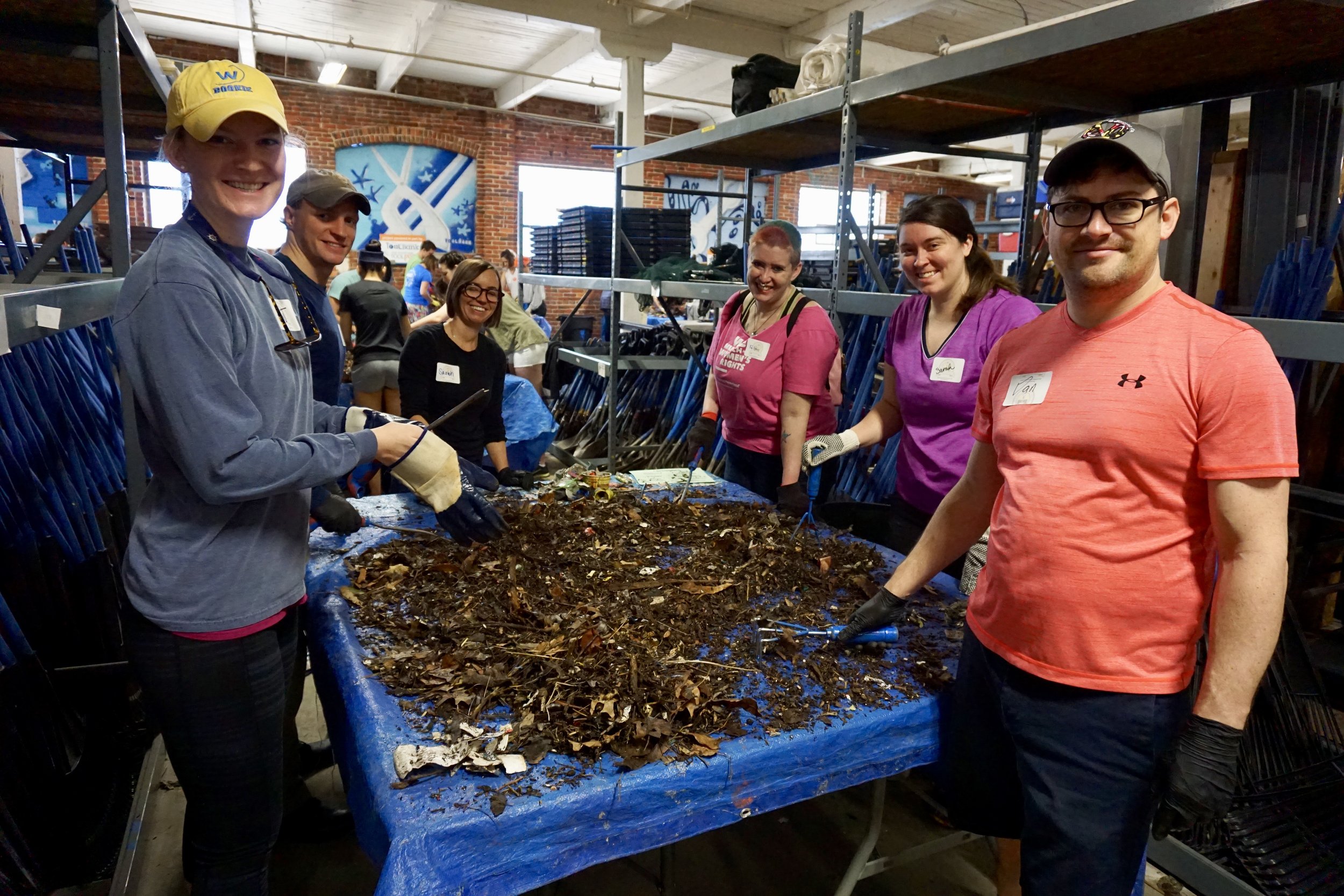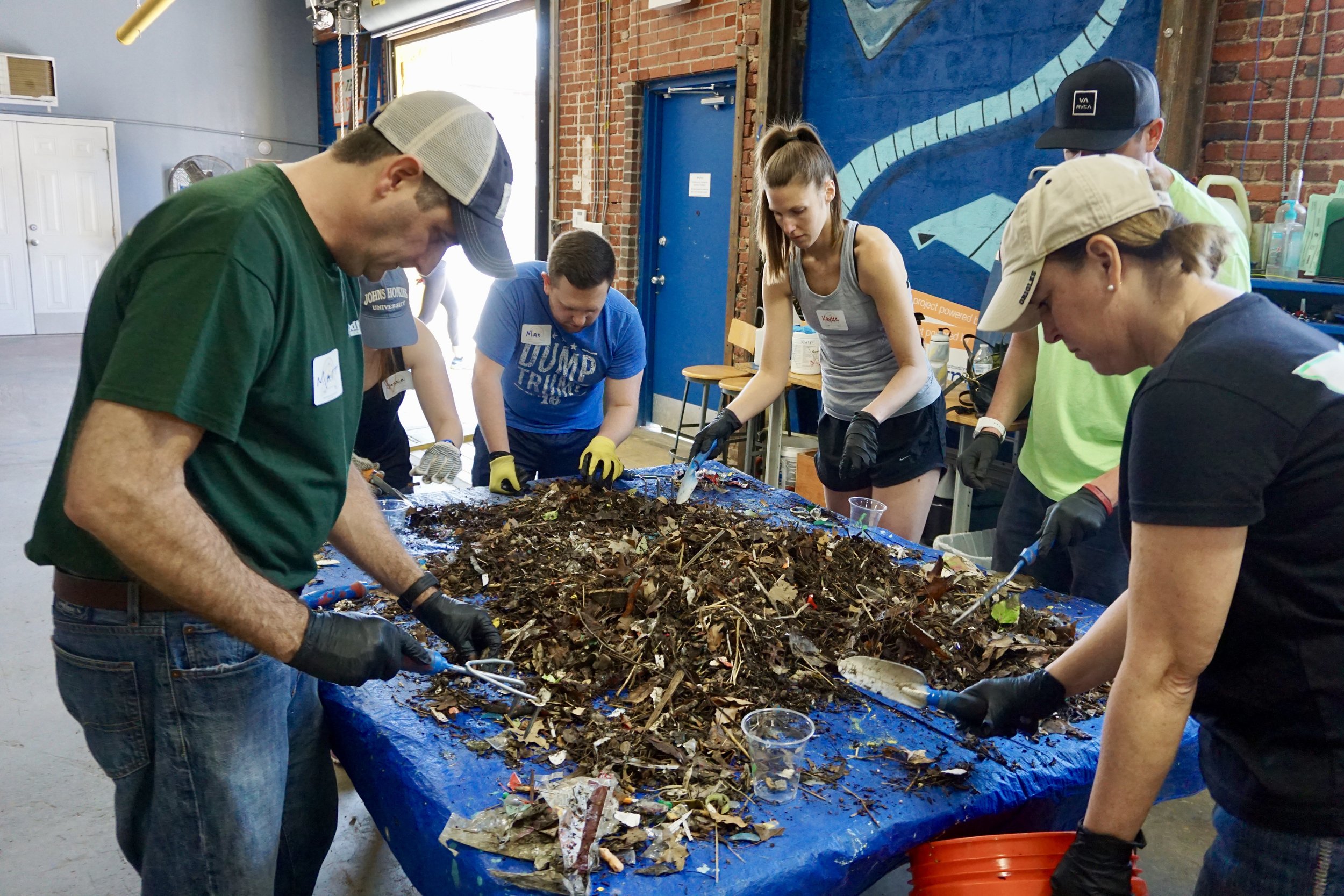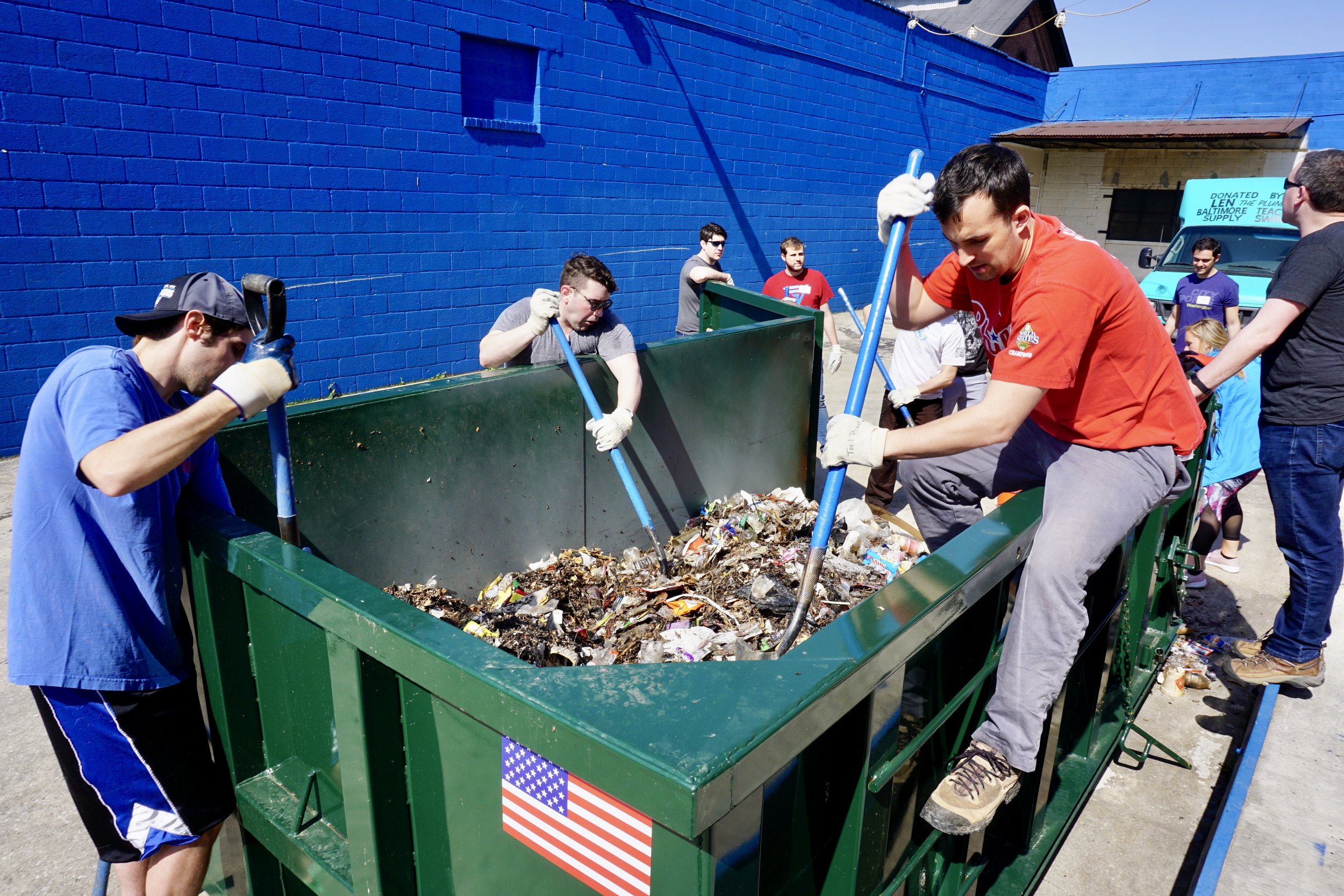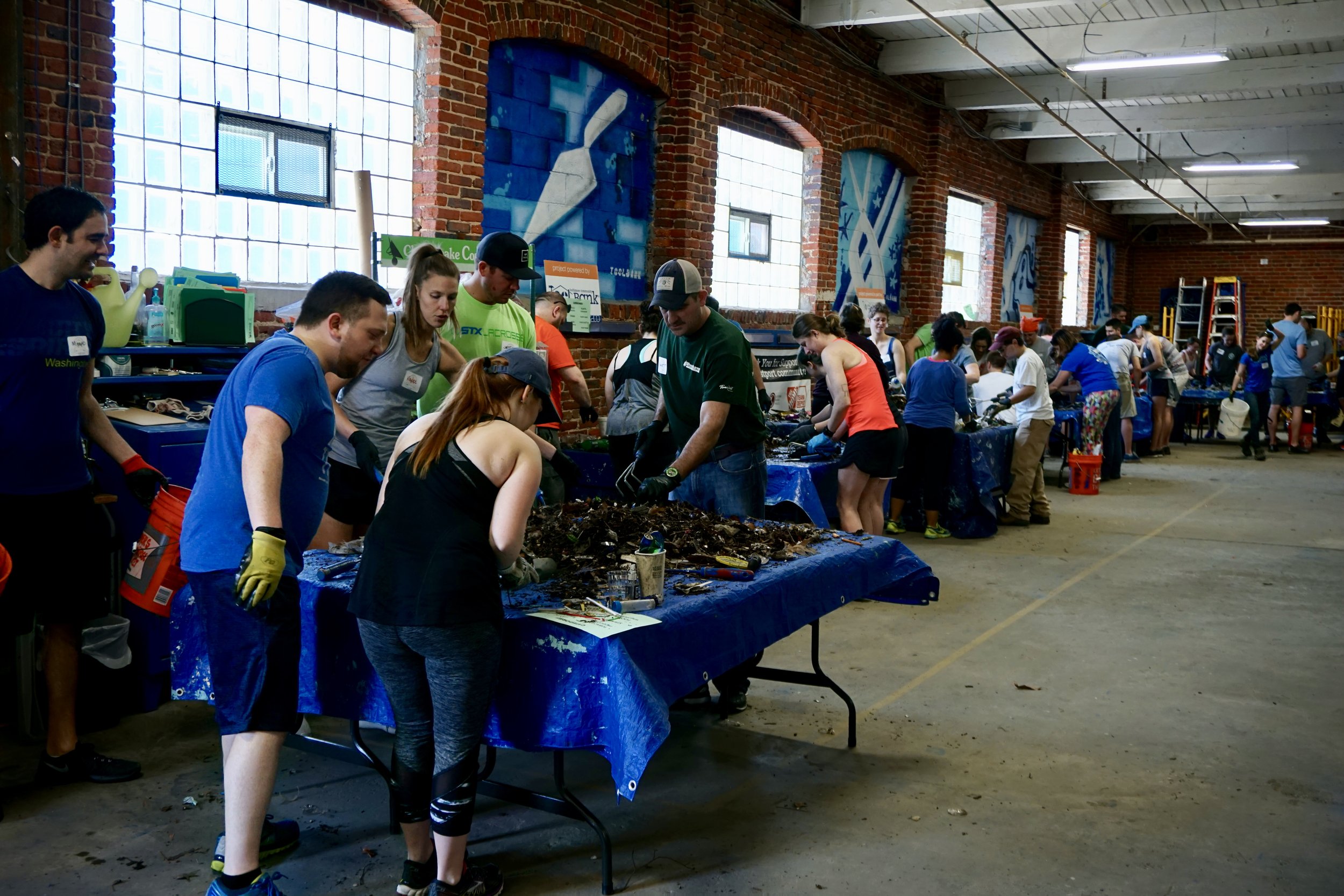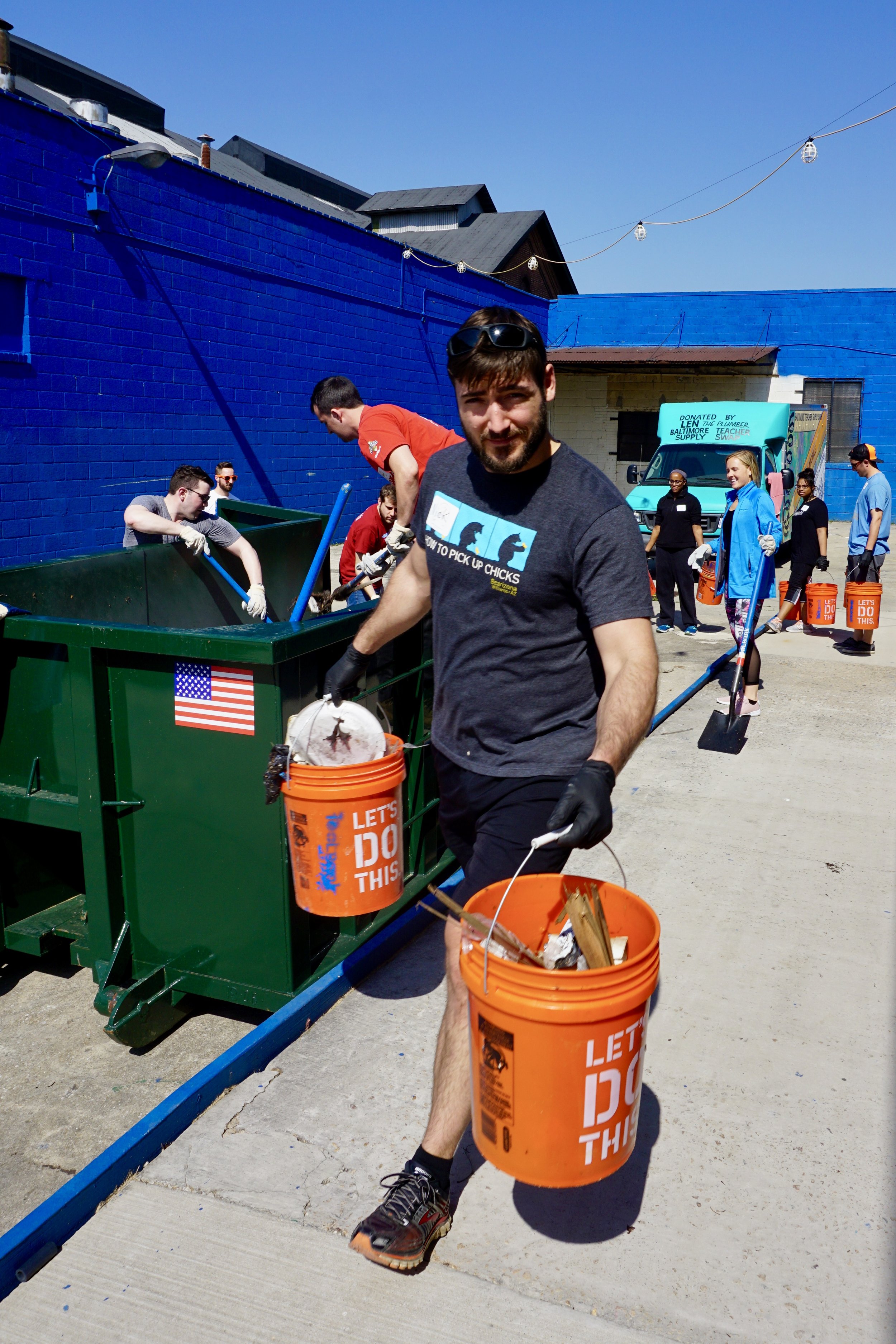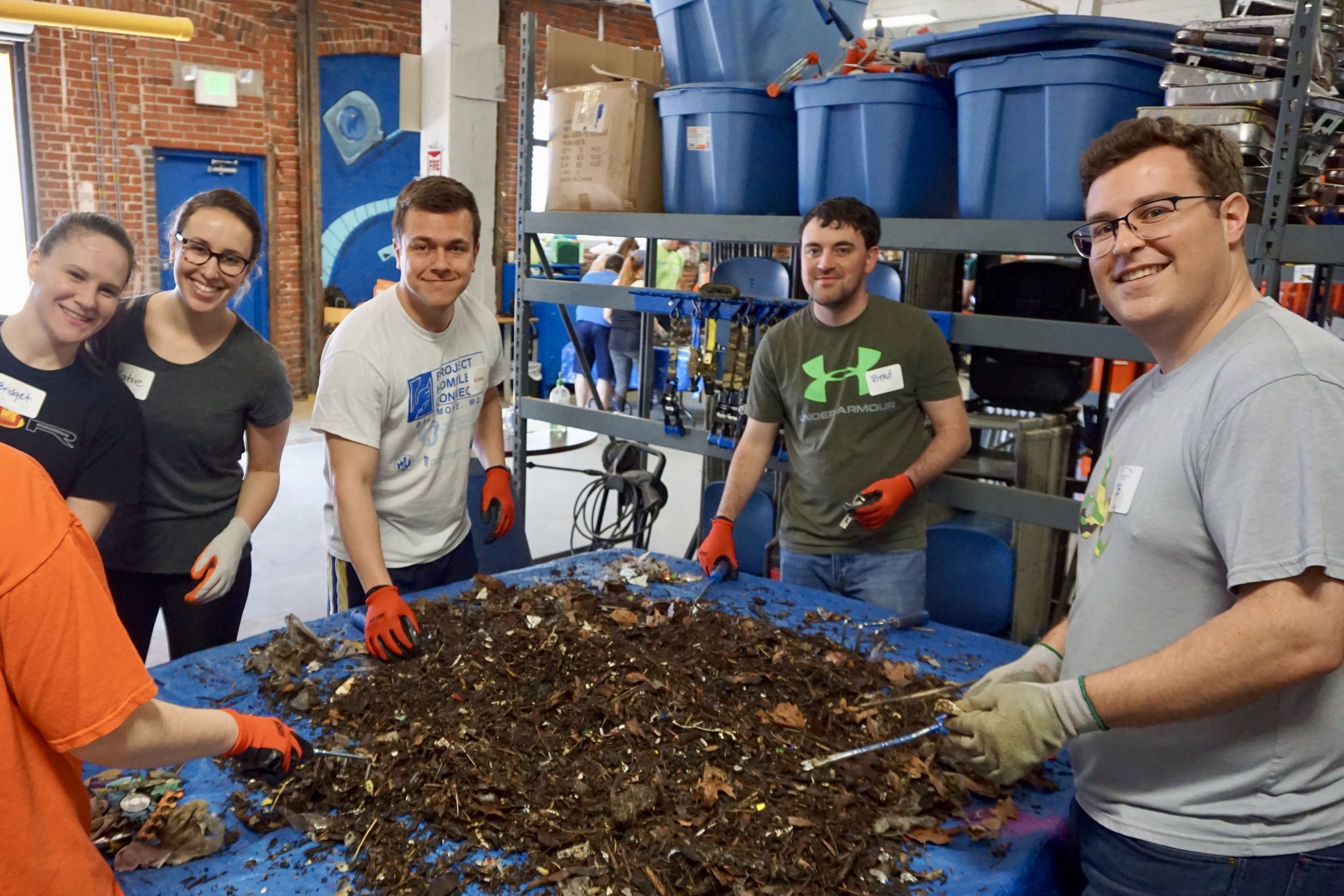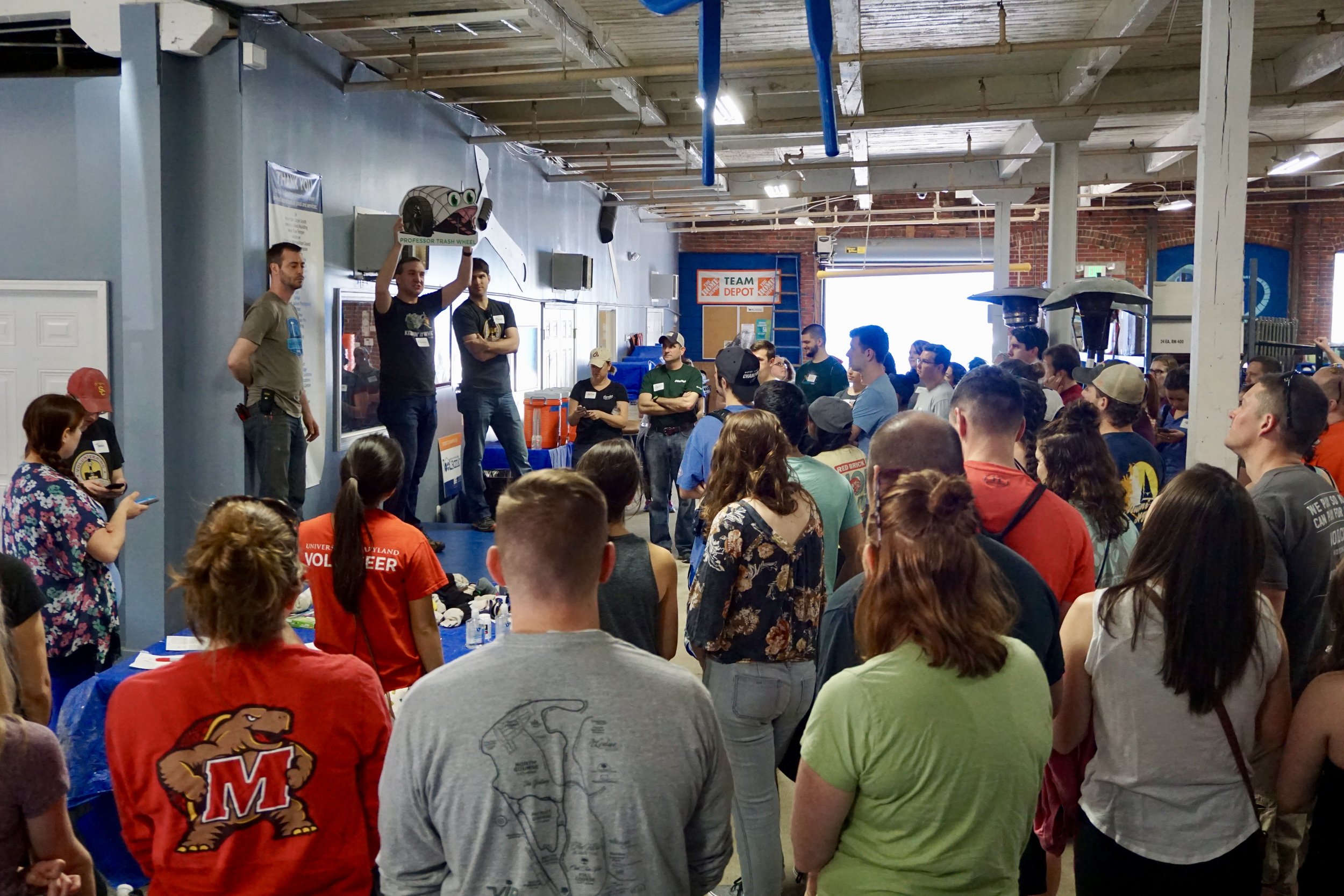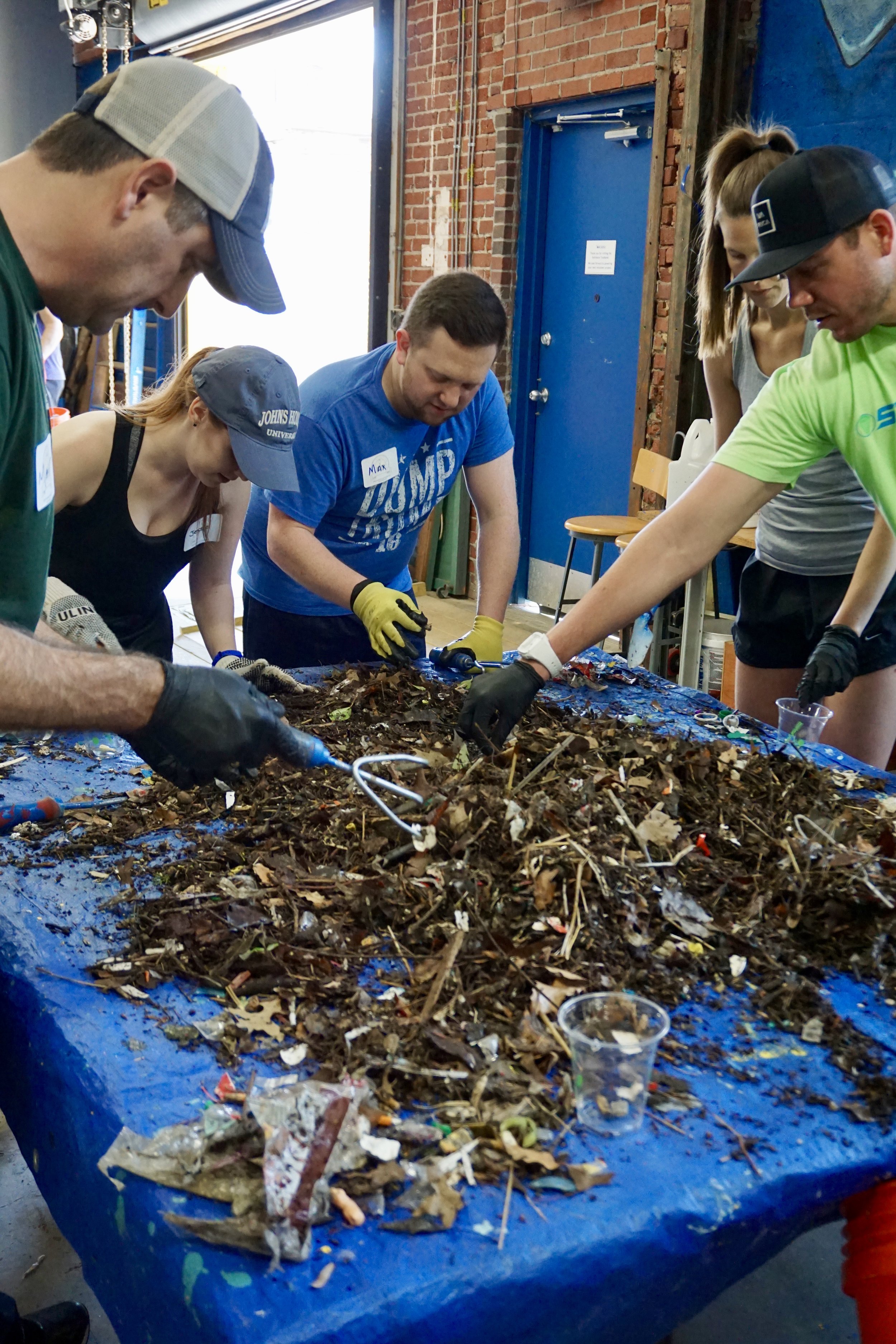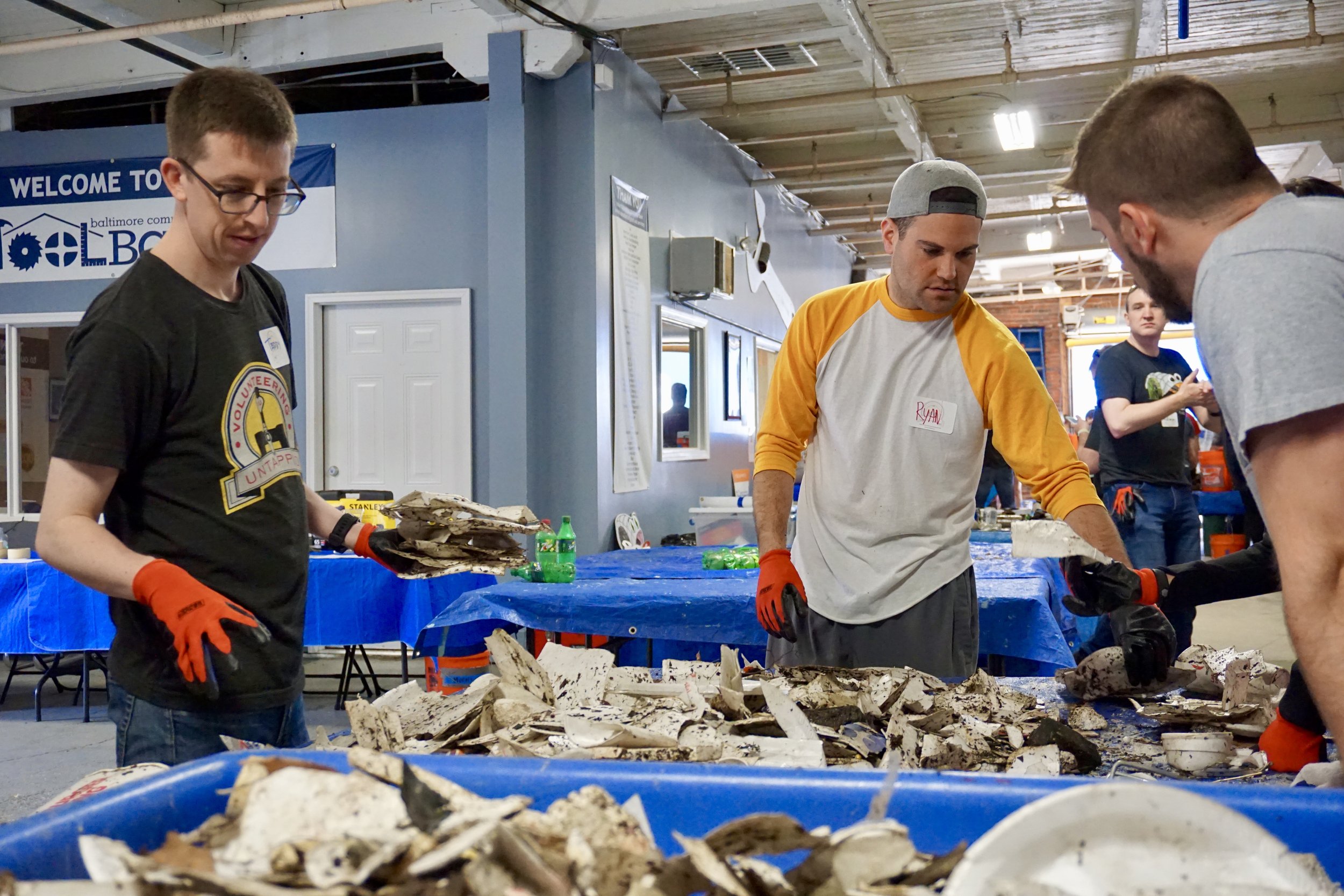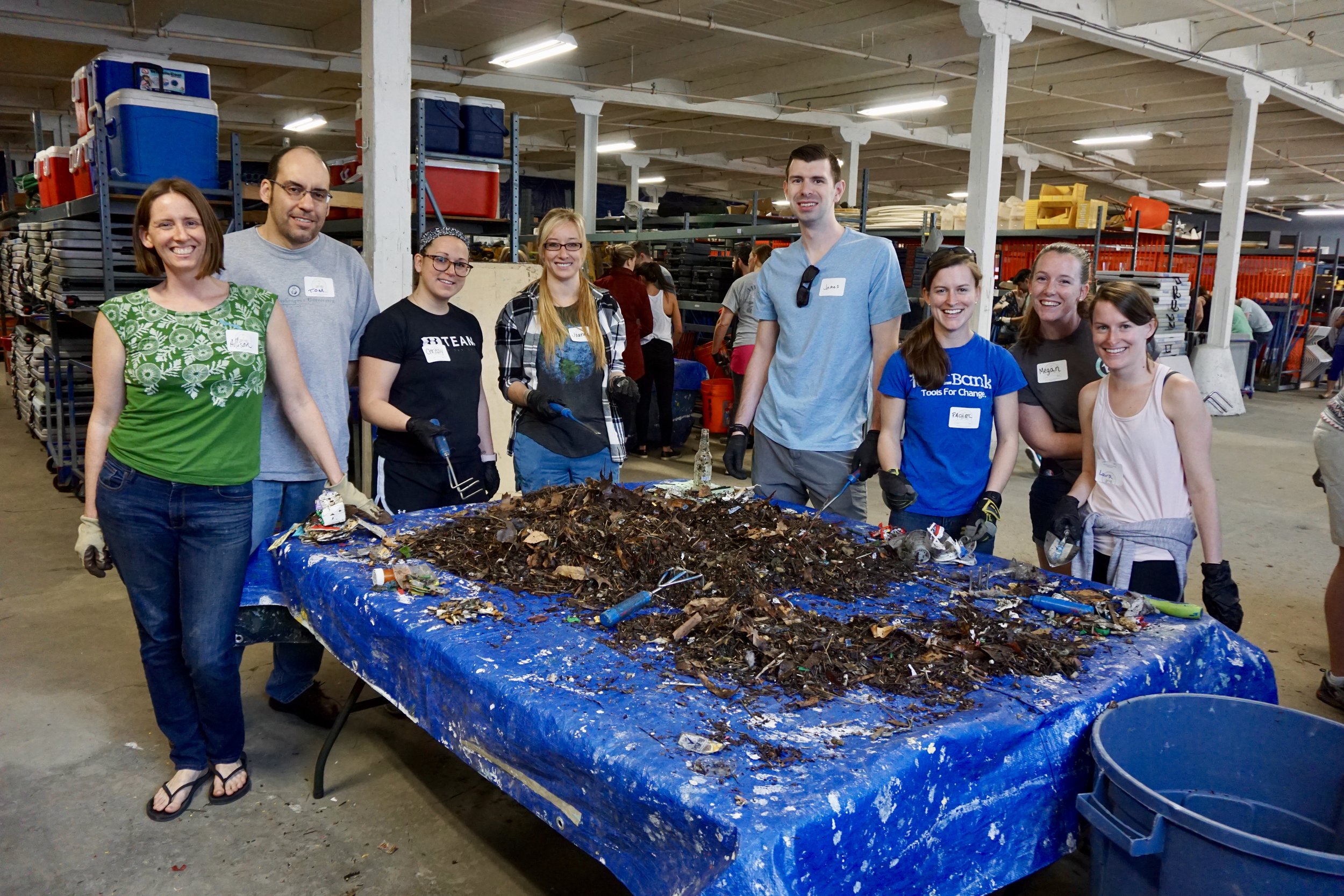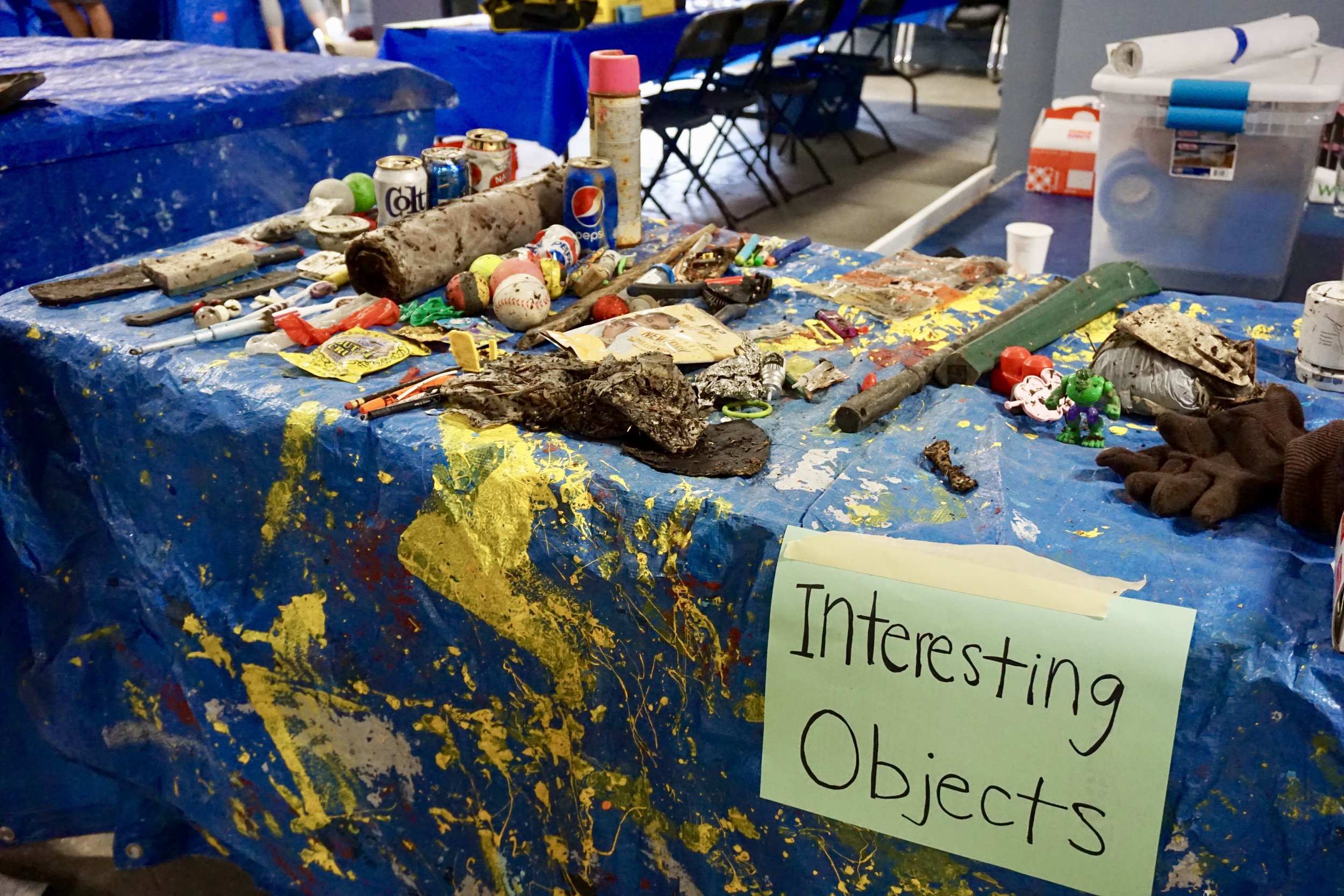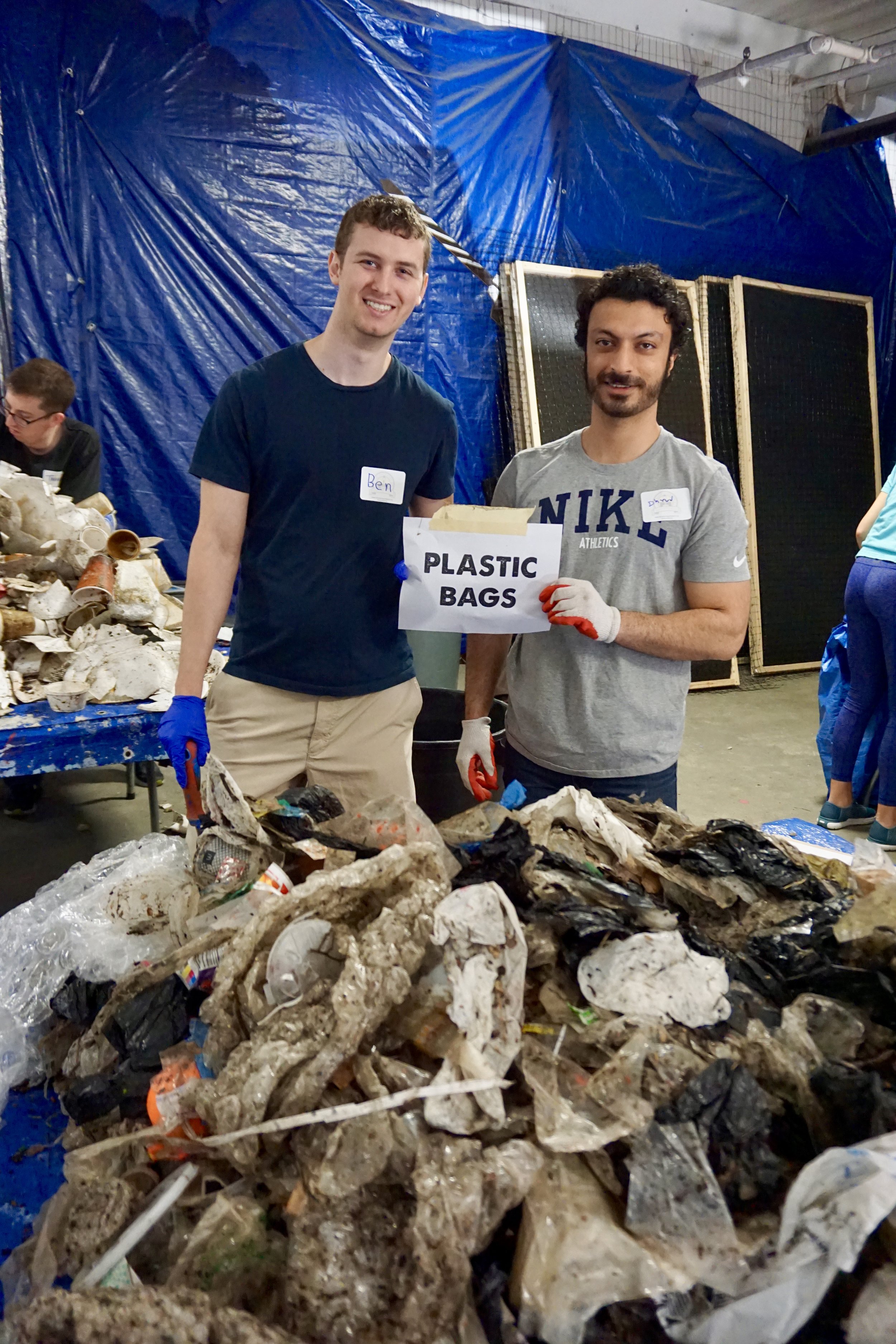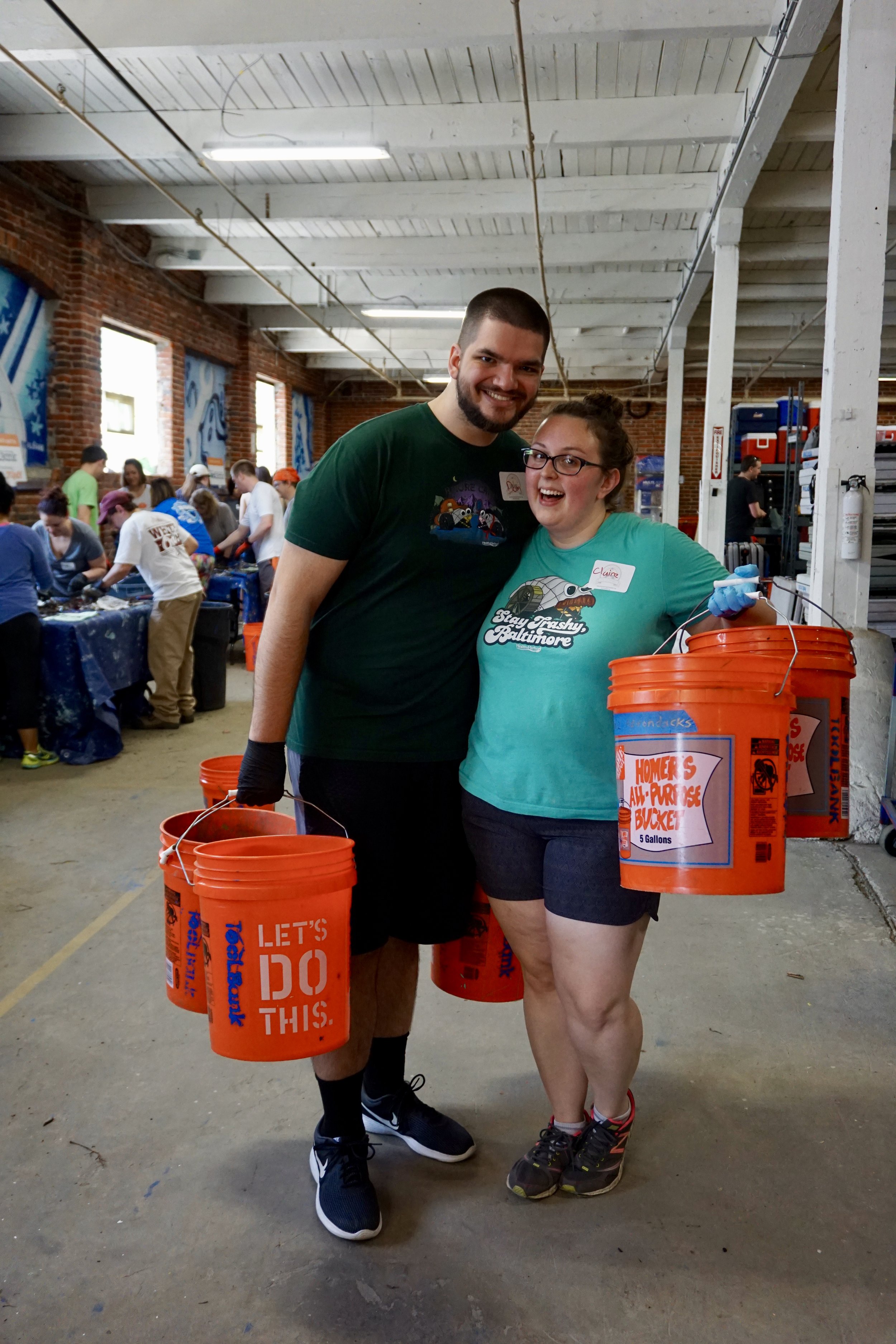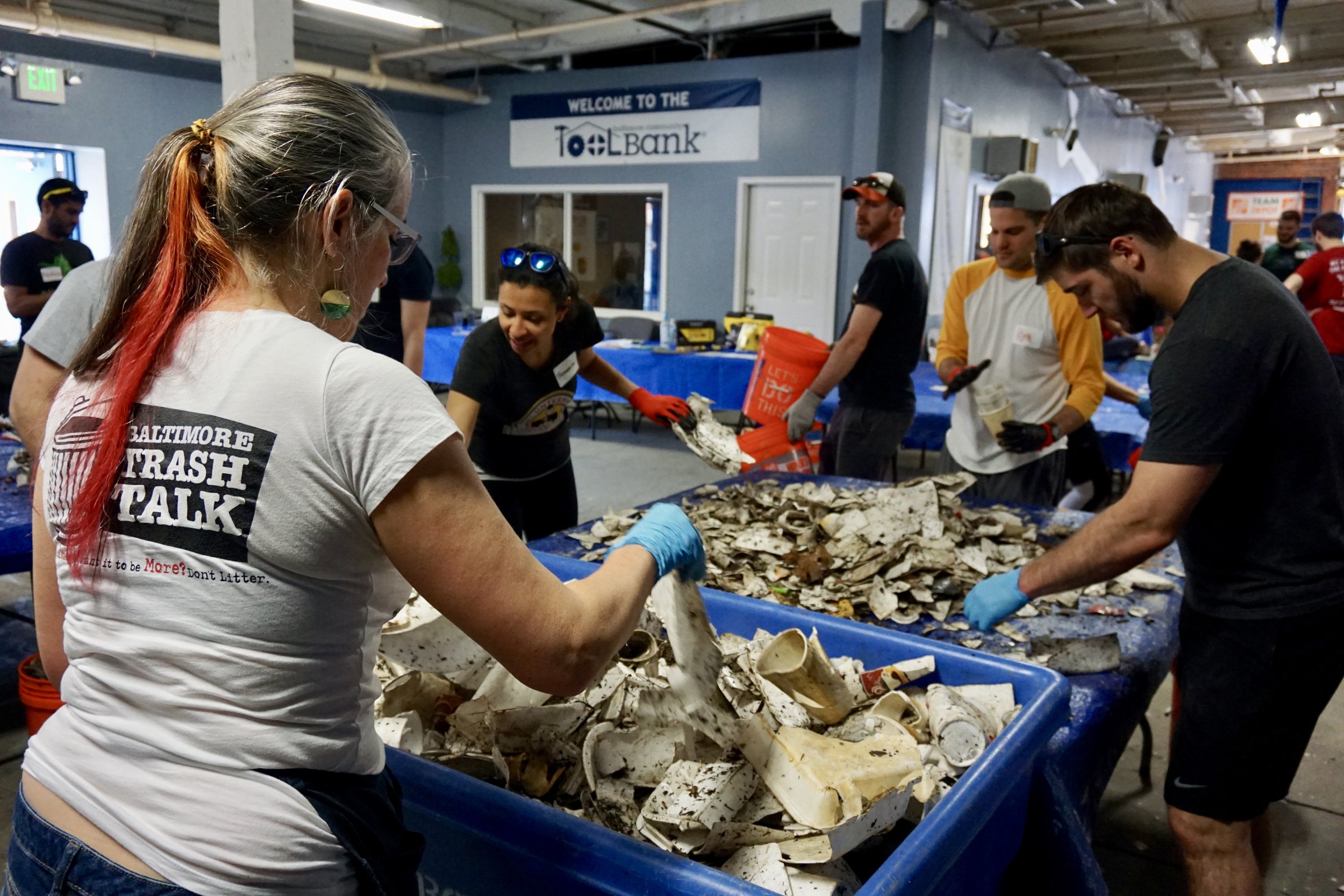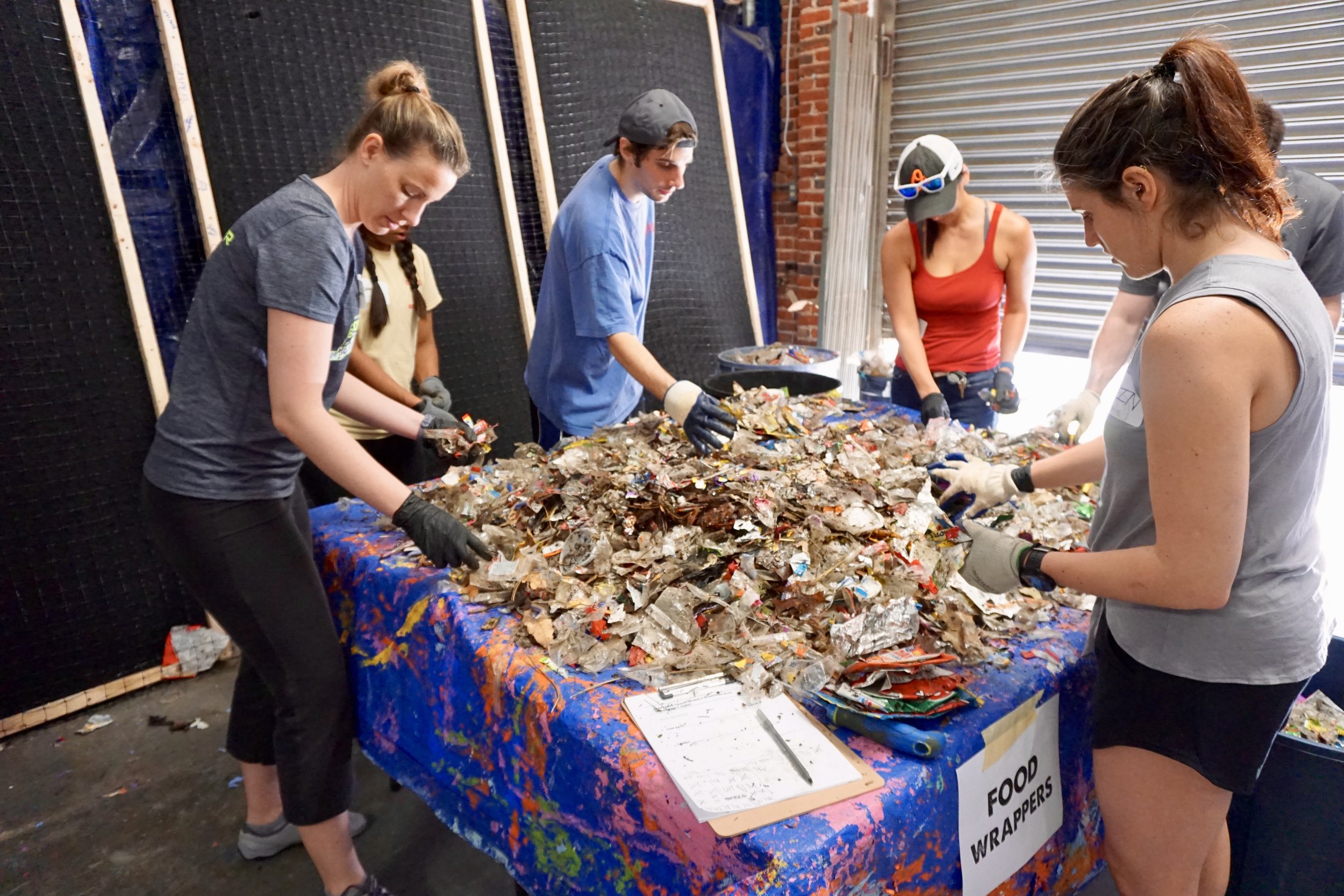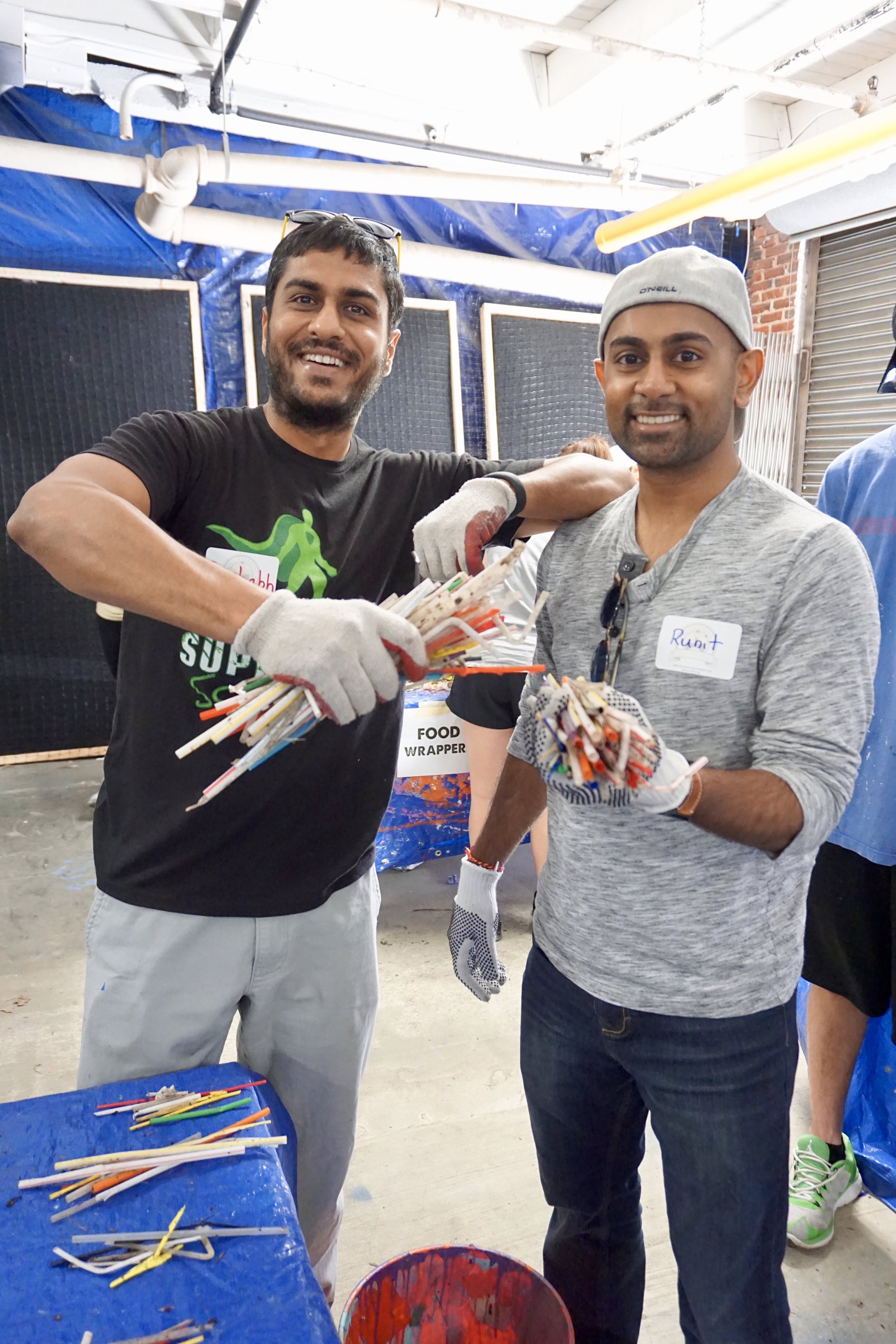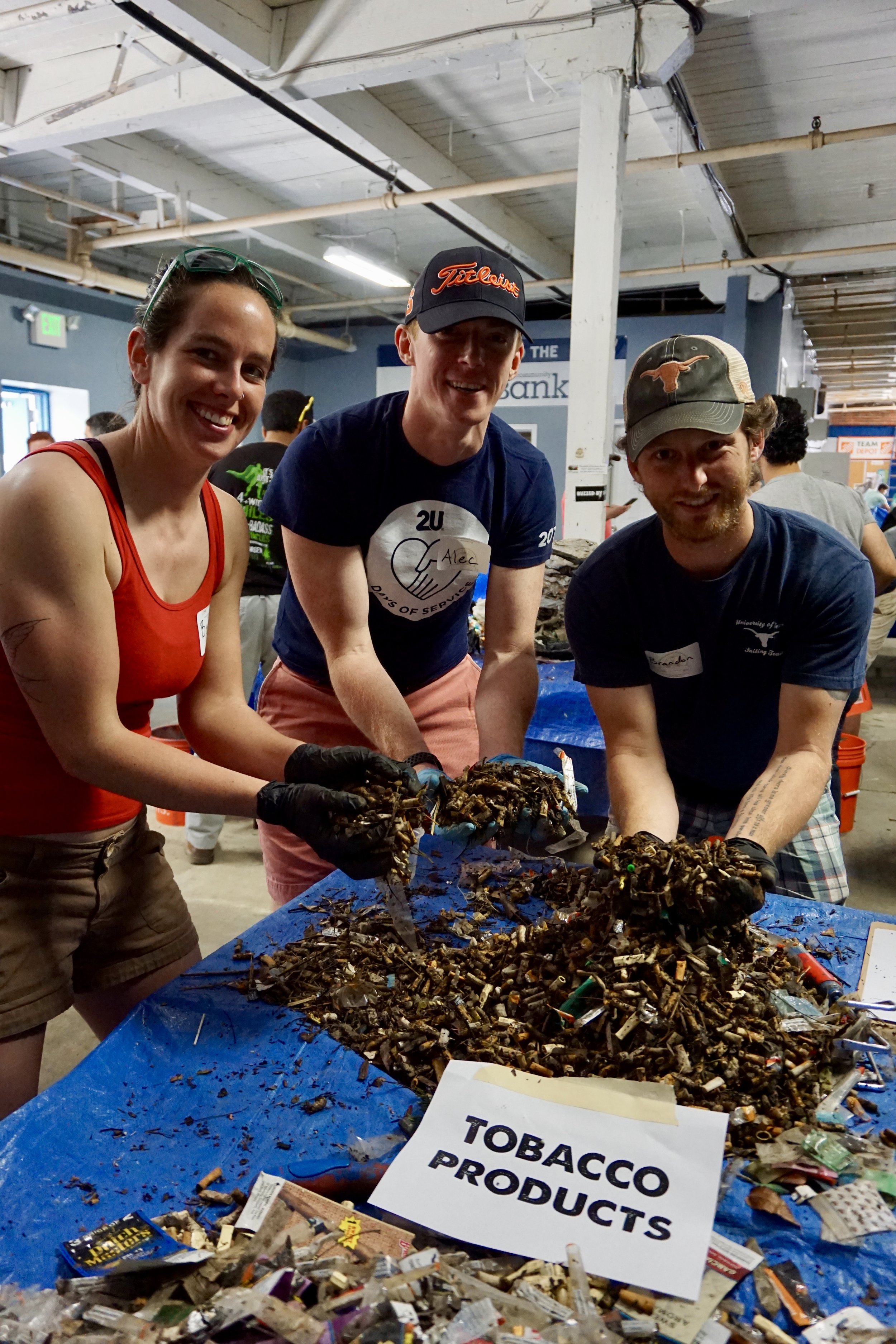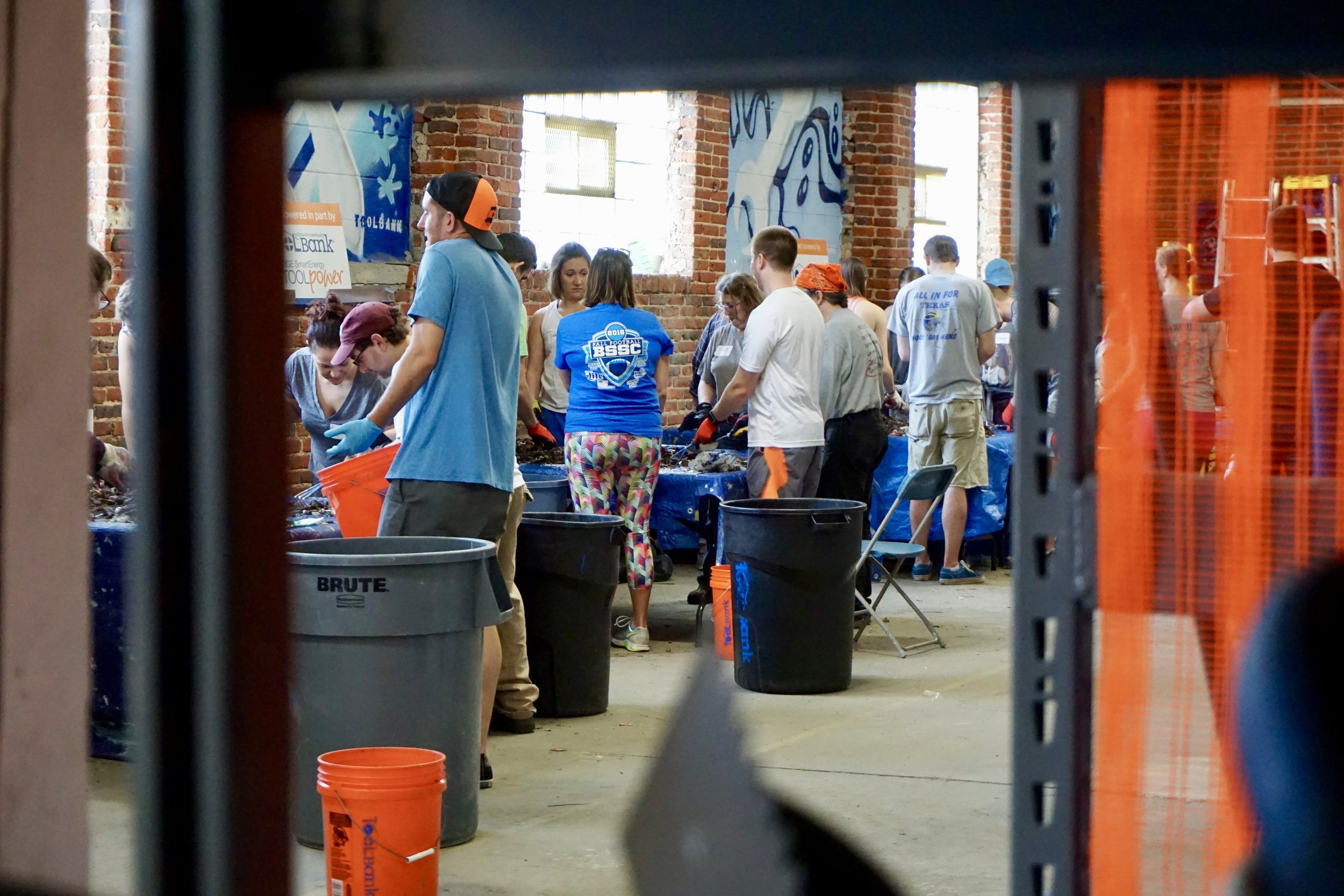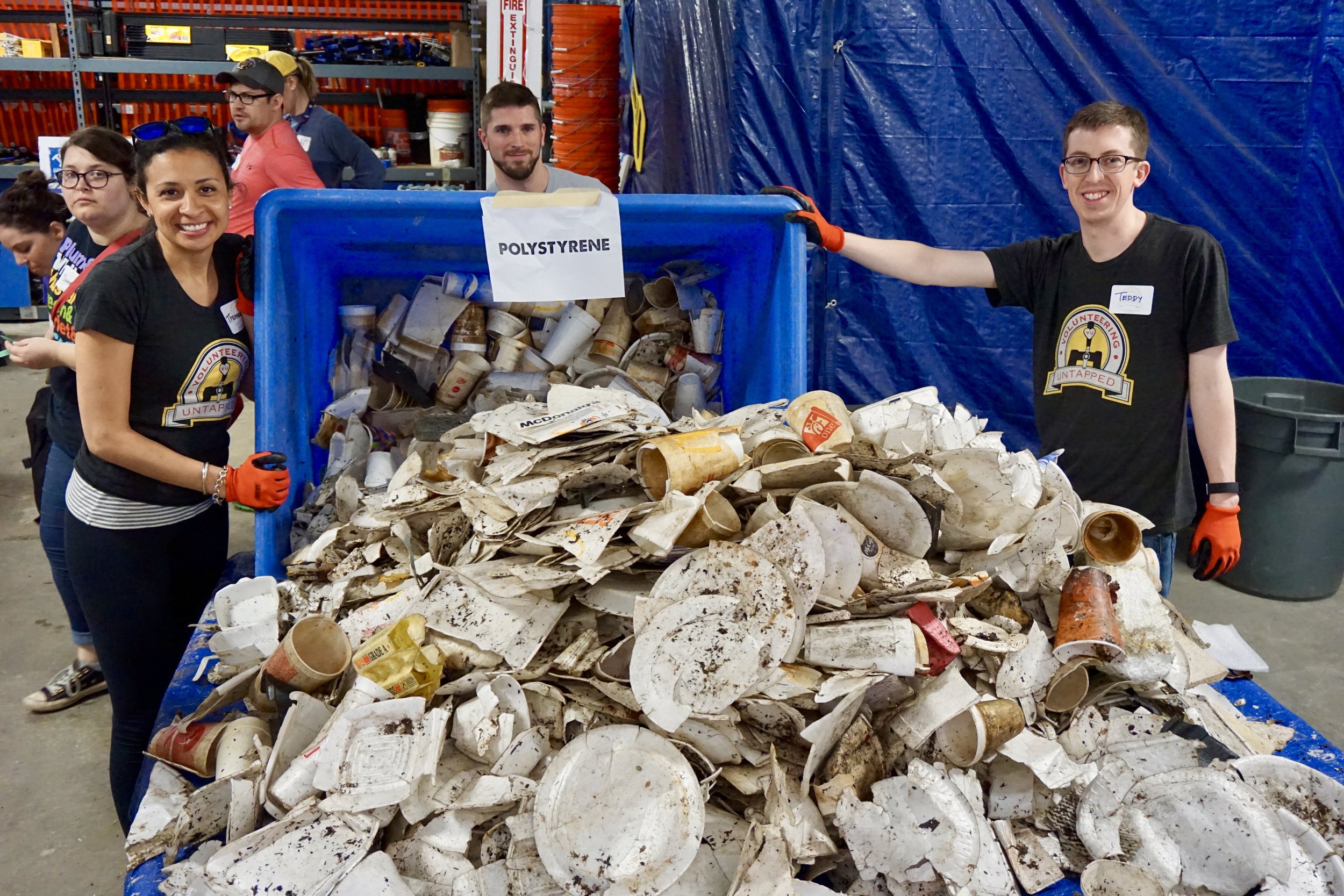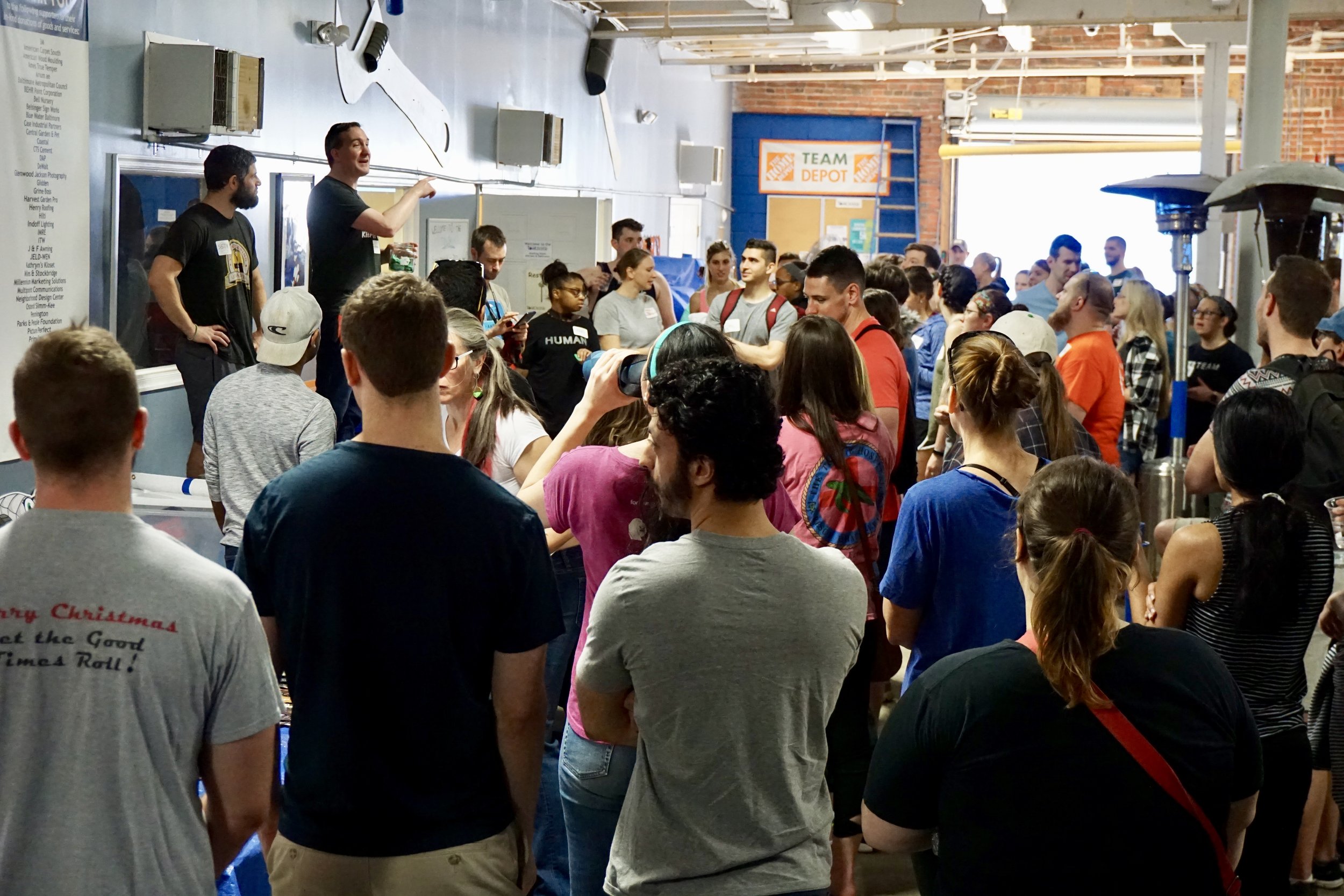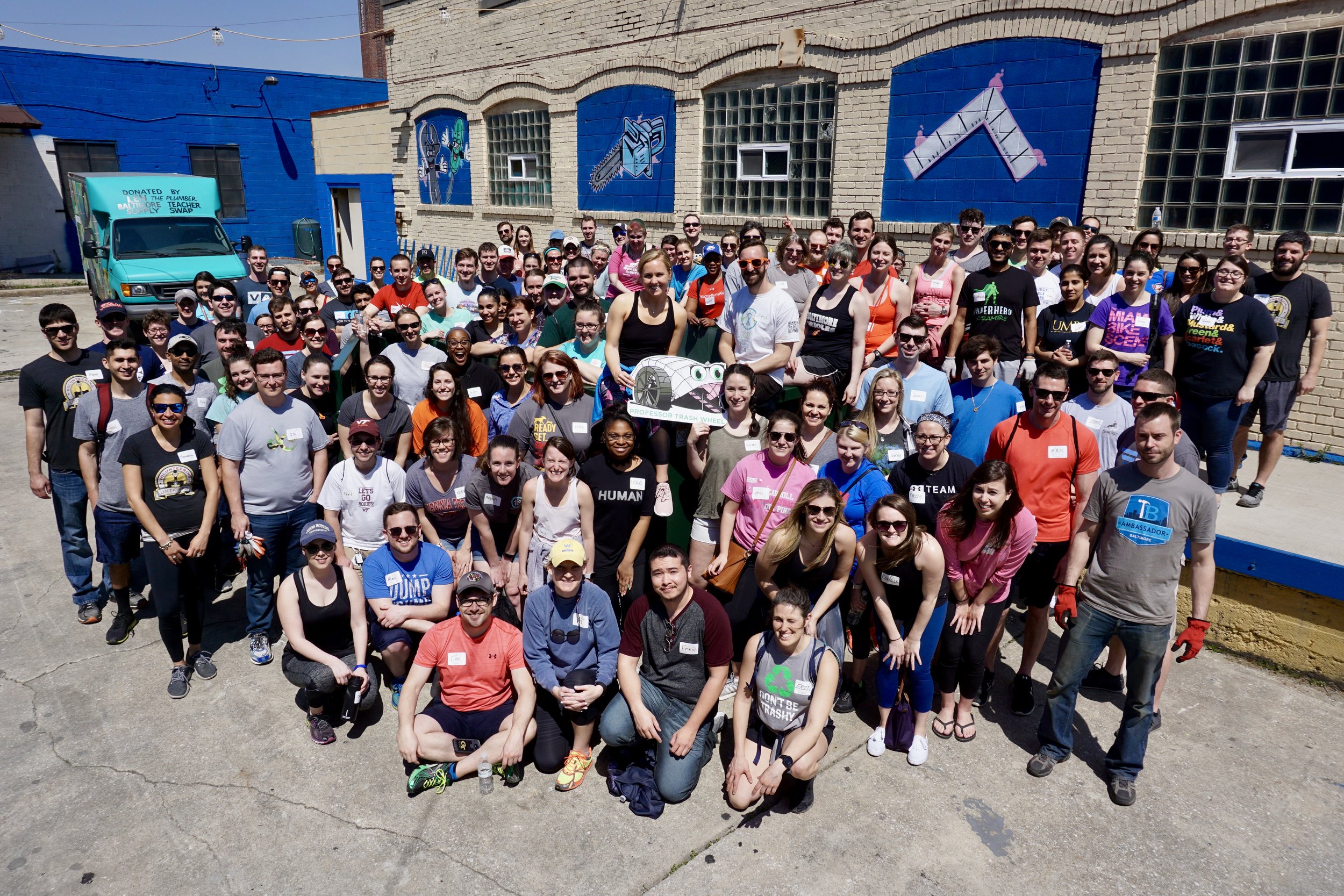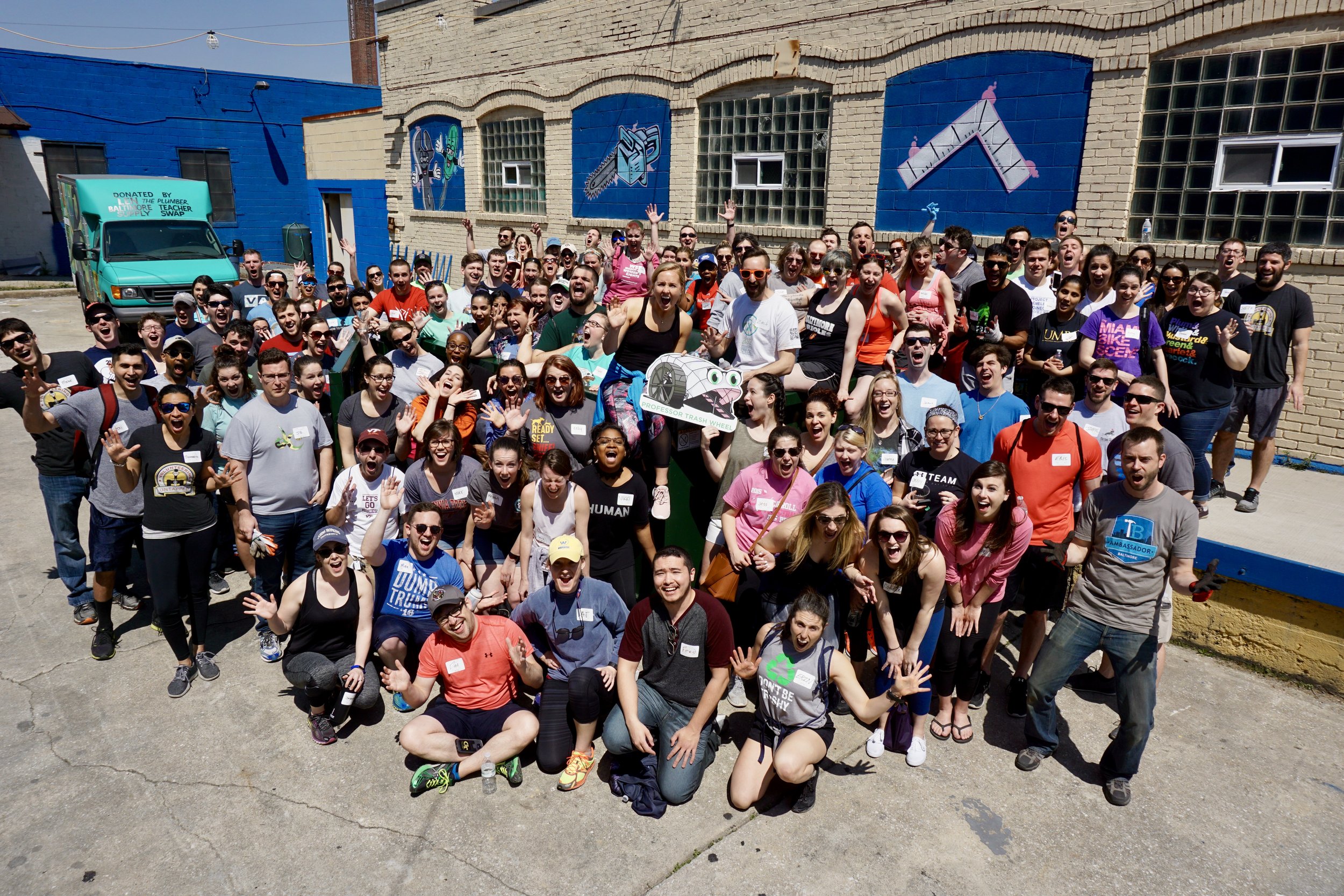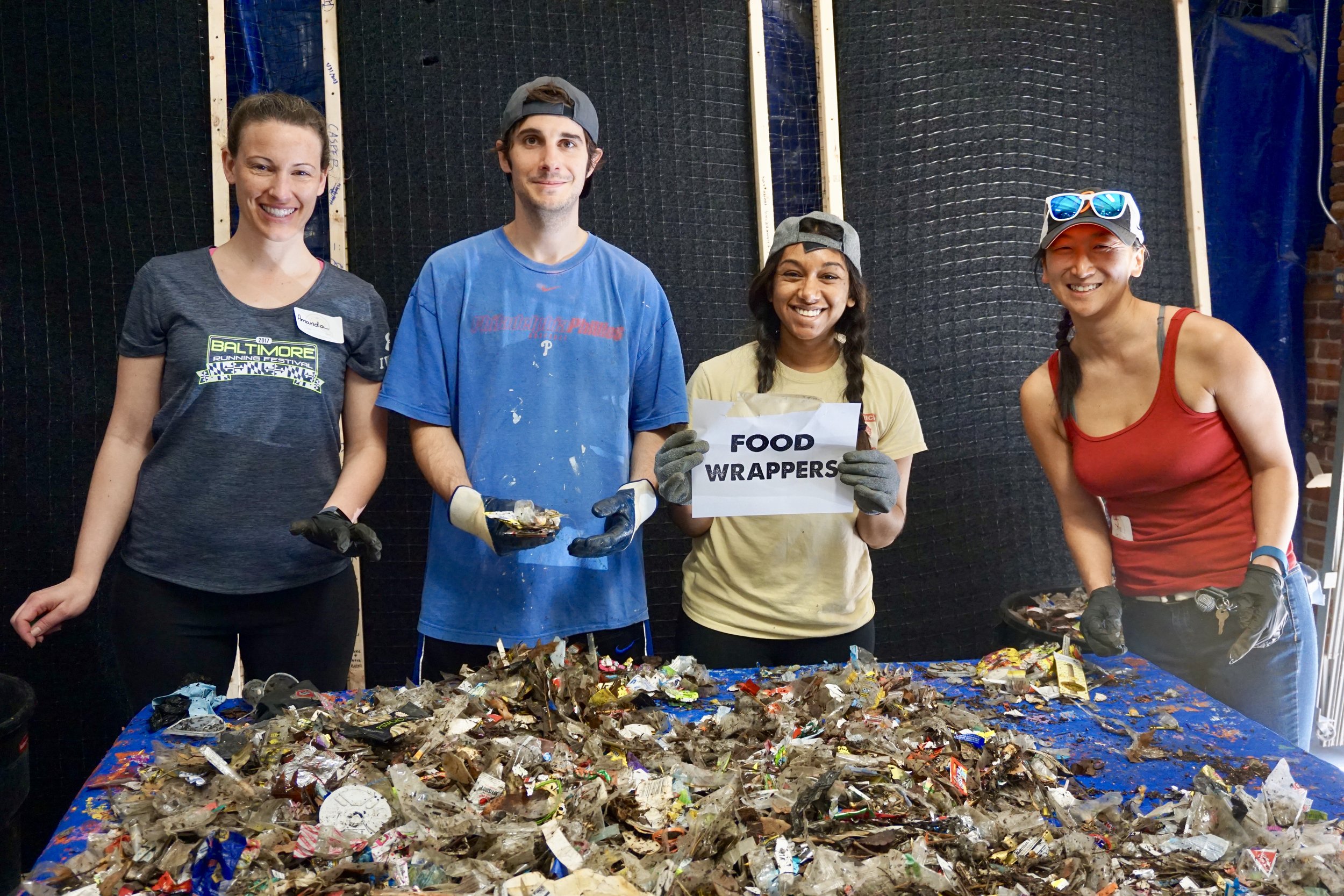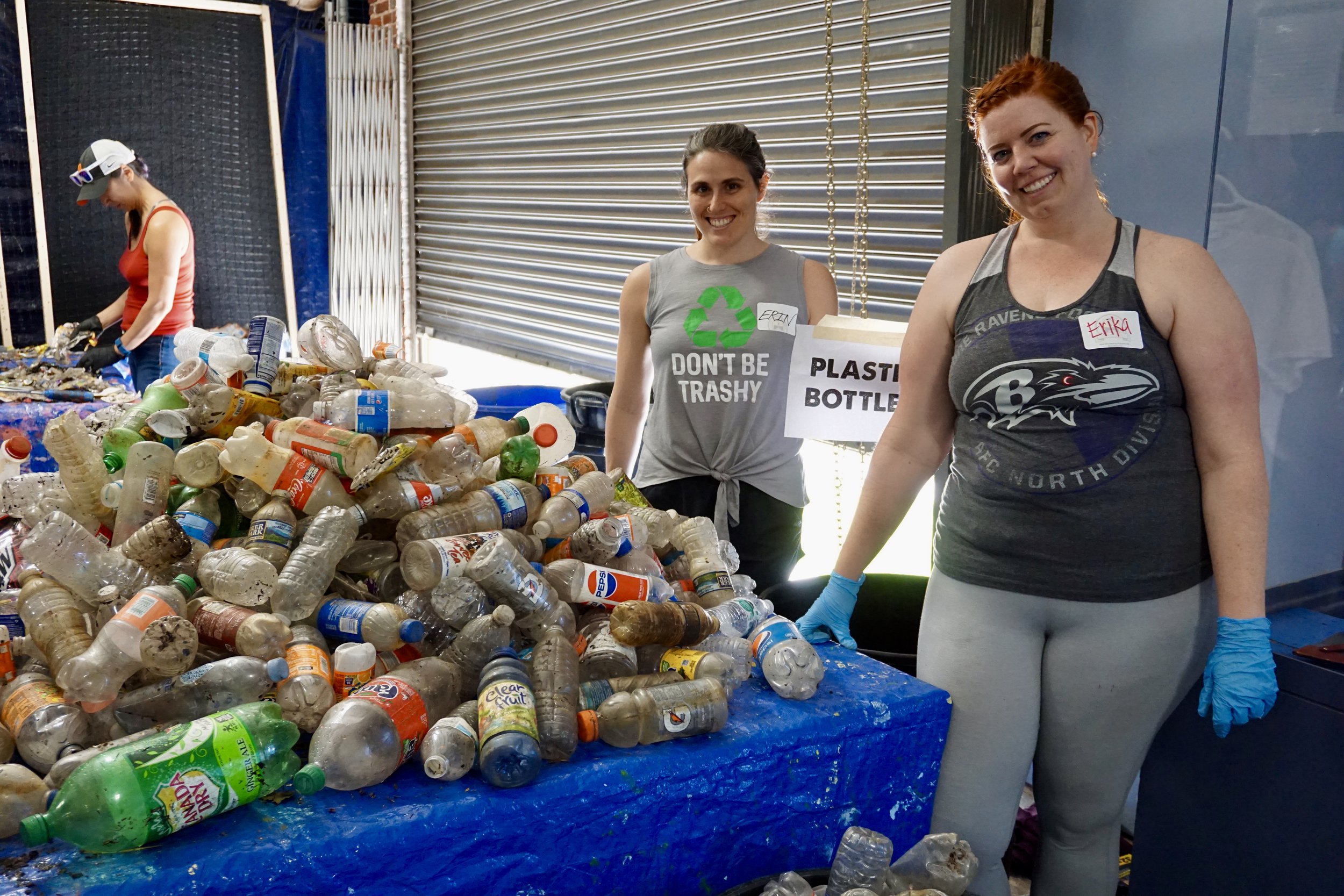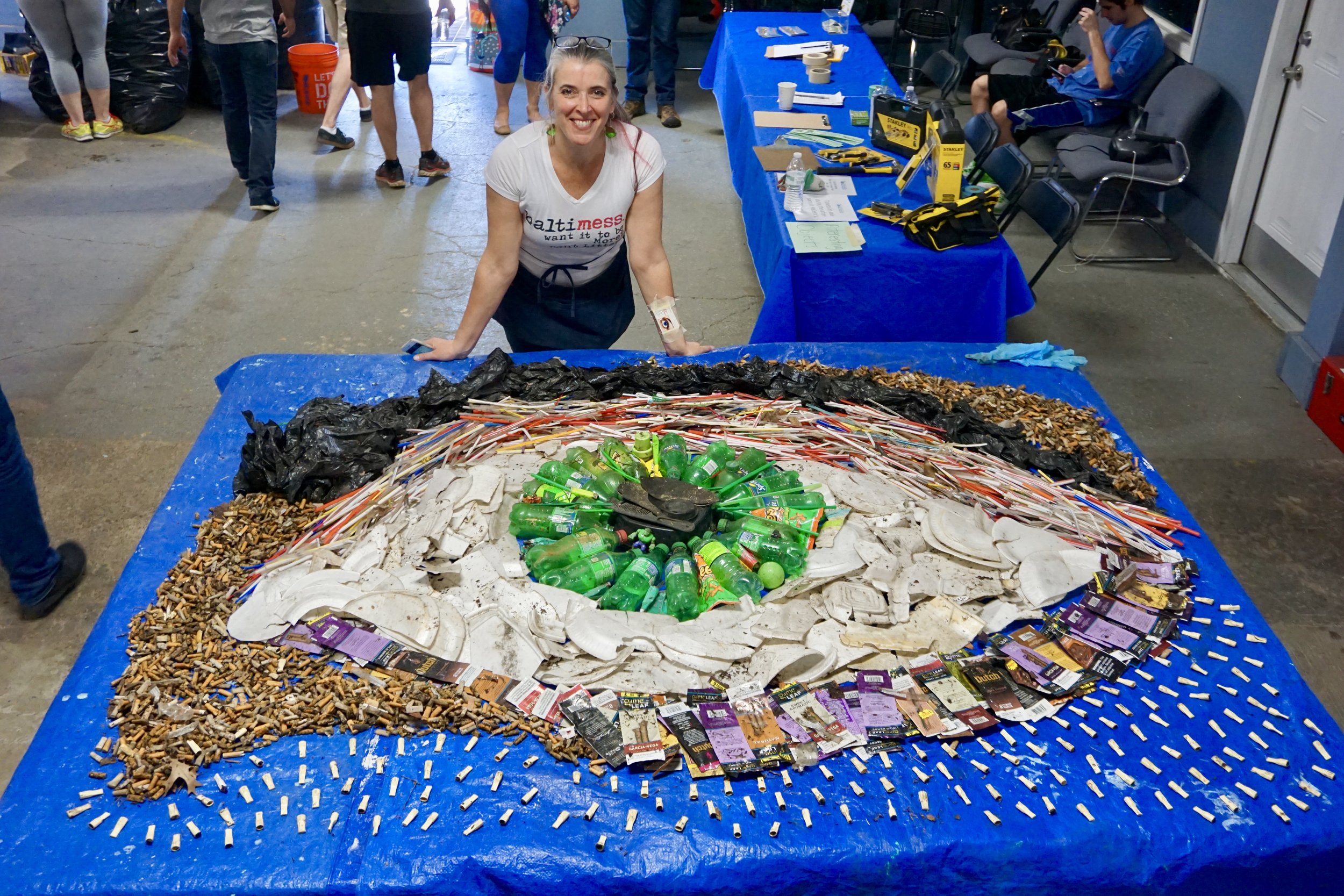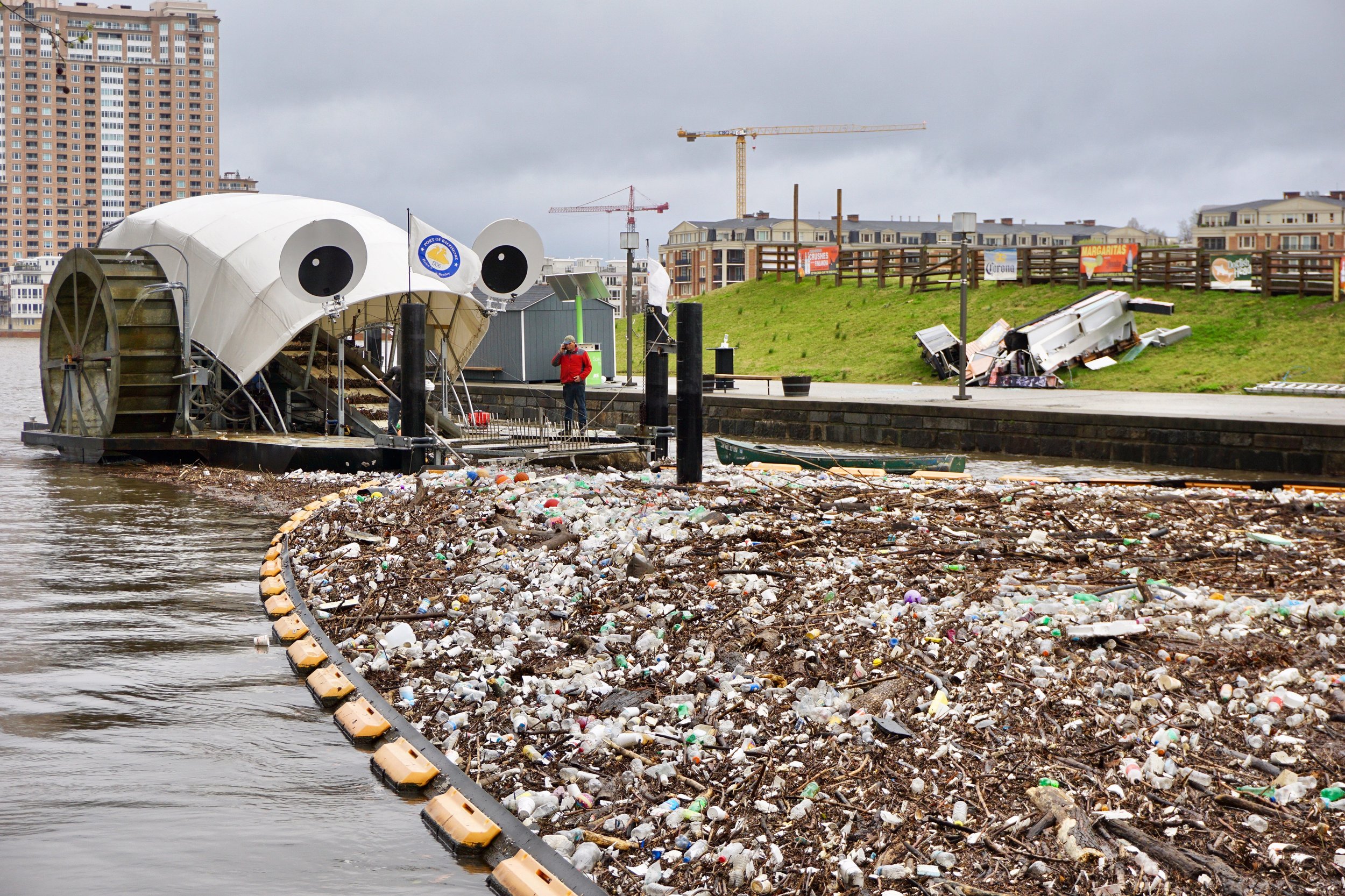
Trash Interception

The Trash Wheel Family collects approximately 500 tons of trash and debris from the Baltimore Harbor each year.
Trash Wheels are permanently located at the mouths of streams and other major outfalls around the Baltimore Harbor. About 90% of the trash collected by the Mr. Trash Wheel family is driven by rain storms. When it rains, litter from throughout Baltimore City and County is carried into storm drains. Our storms then flow, unfiltered, into our streams and Harbor. That means that our streets are our streams and dirty alleys and dirty gutters will result in dirty streams and a dirty Harbor.
During a sunny day, most trash wheels are resting and charging their batteries with solar power. But when it rains, they get to work. A single trash wheel has collected as many as 20 full dumpsters of litter and debris after a single large rain event.

Clearwater Mills Keeps Our Trash Wheel Churning
Clearwater Mills is a Maryland-based company that invented the technology that became Mr. Trash Wheel. They also operate and maintain all of Baltimore's trash wheels on behalf of the Waterfront Partnership and the Maryland Port Administration (which owns Captain Trash Wheel). While the Trash Wheel family is semi-autonomous, they do require human assistance to change out full dumpsters and keep their paint fresh, wheels greased, and eyes googling.
Unfortunately, waste collected by the Mr. Trash Wheel family is too contaminated to be routinely sorted for recycling or composting. We do, however, have volunteer events where we are able to sort of recycle (and sometimes make artwork) out of trash collected by Mr. Trash Wheel. Generally speaking, Mr. Trash Wheel waste is turned over to Baltimore City for proper disposal.

Join The Dumpster Dive
We’re Counting On You… To Count!
Data is power! With help from the Baltimore Community Toolbank and Volunteering Untapped, we hand count at least one trash wheel dumpster each year. It can take 100+ volunteers over 4 hours to sort and count a single dumpster. Our intrepid volunteers walk away with an intimate understanding of the impacts that litter has on our natural environment and we get data and photos that we use to help inform legislation that will keep litter from ending up in our waterways in the first place.



